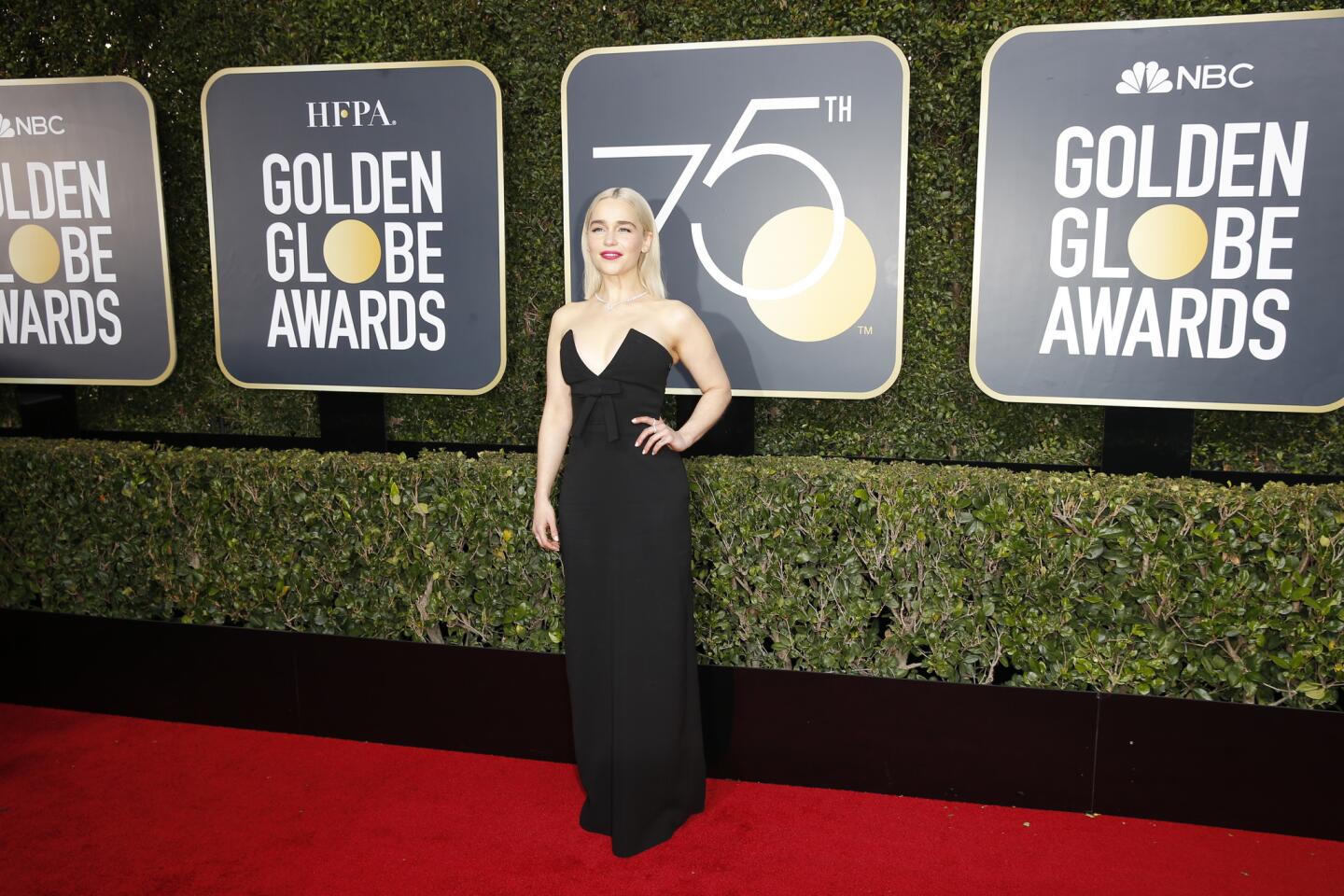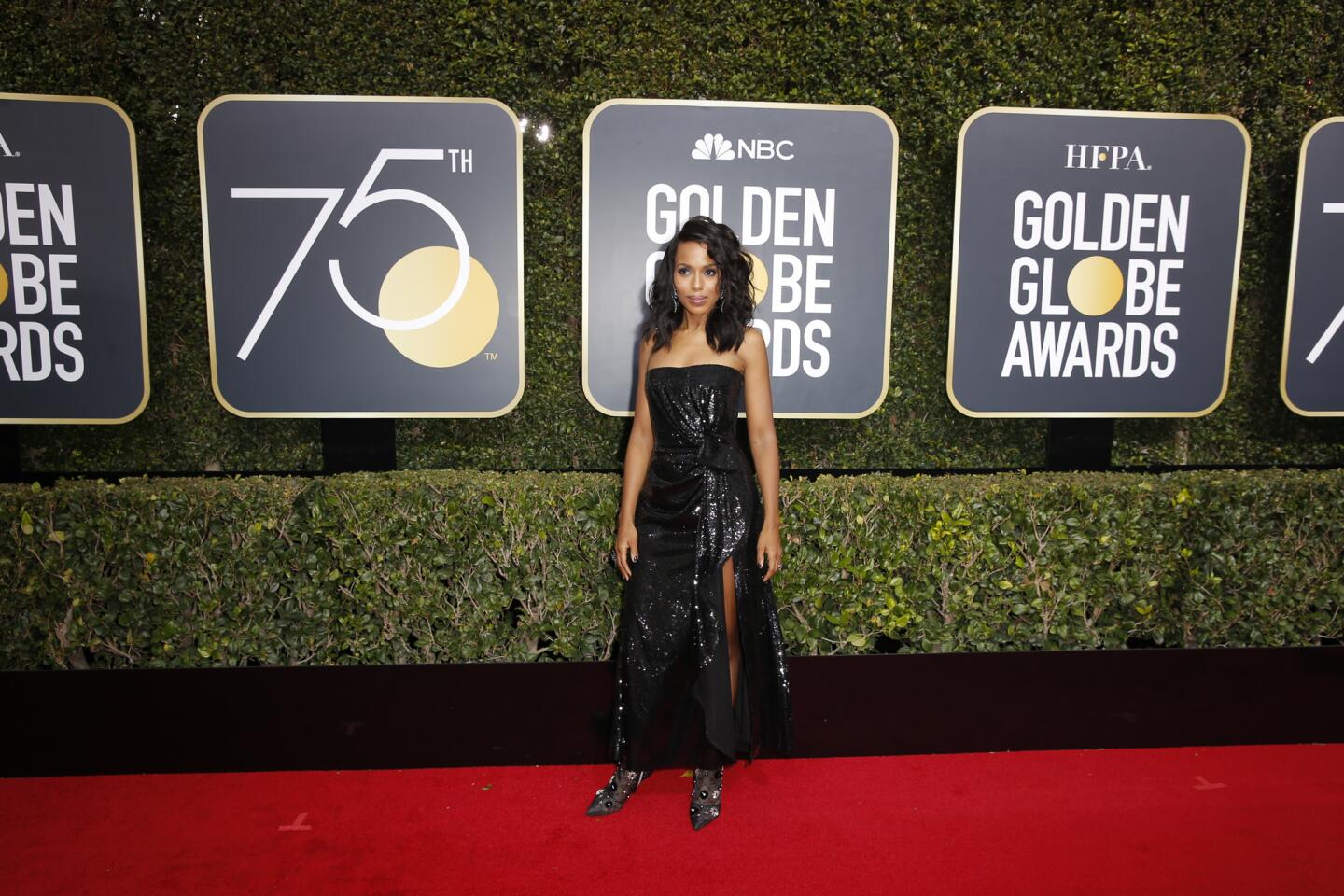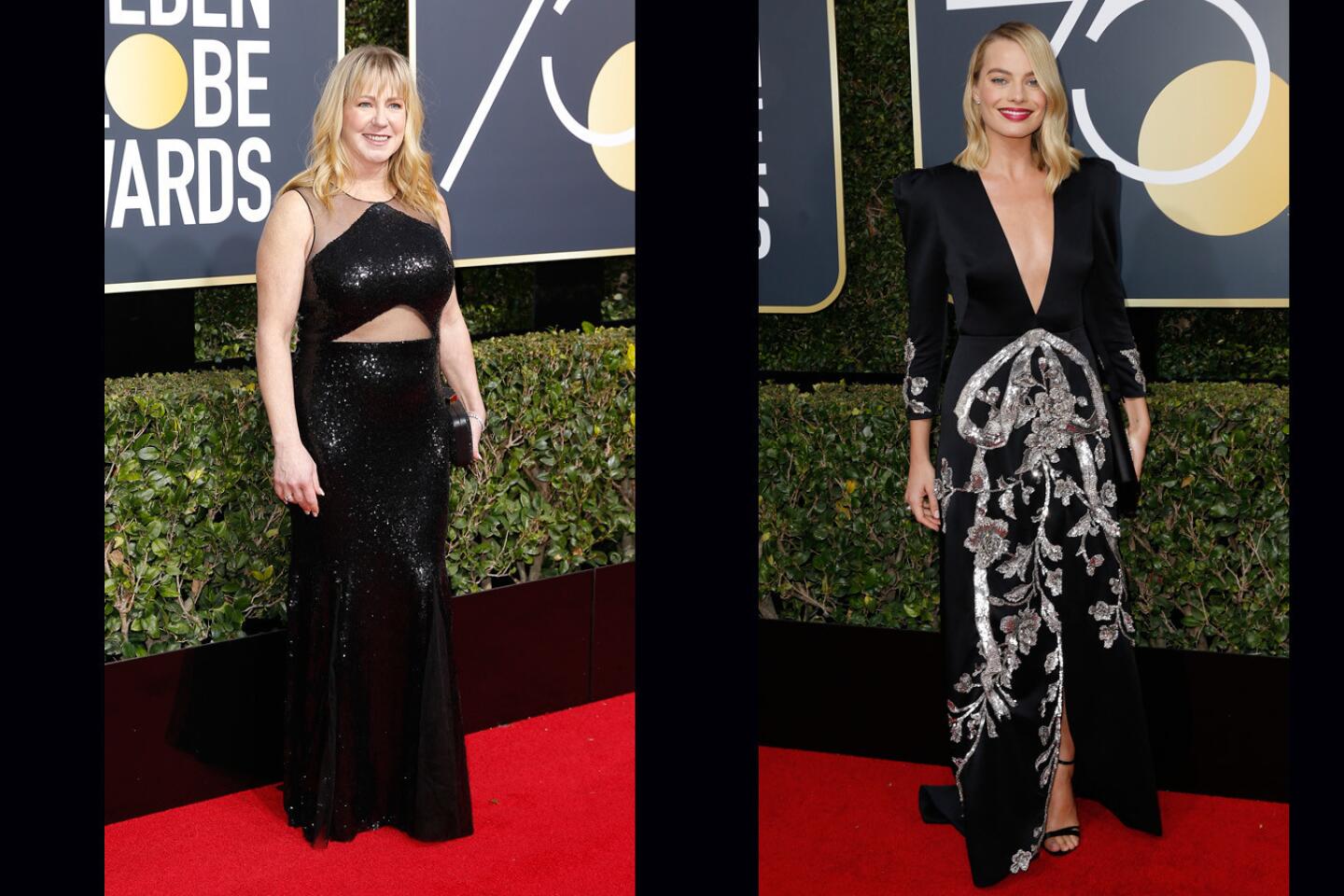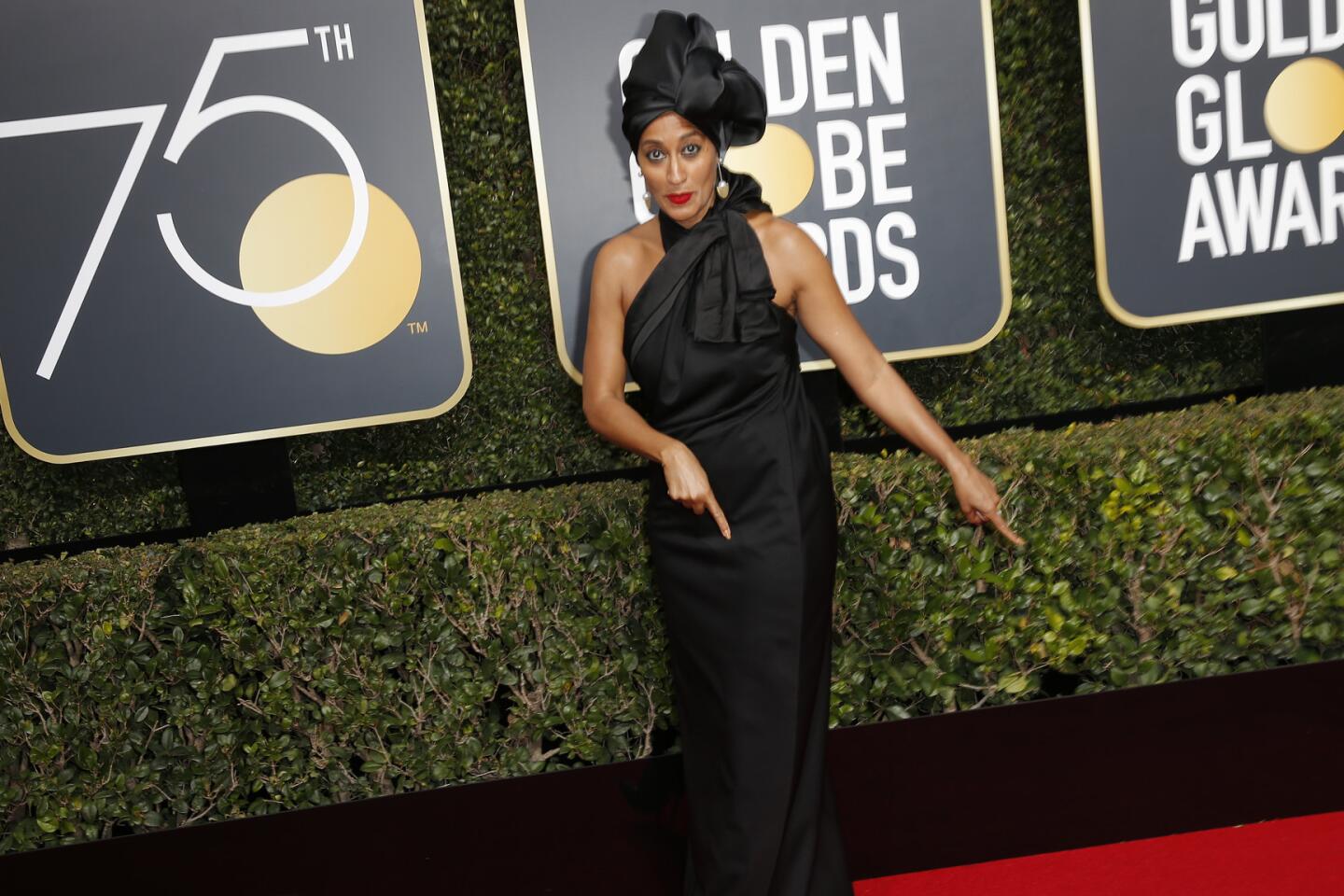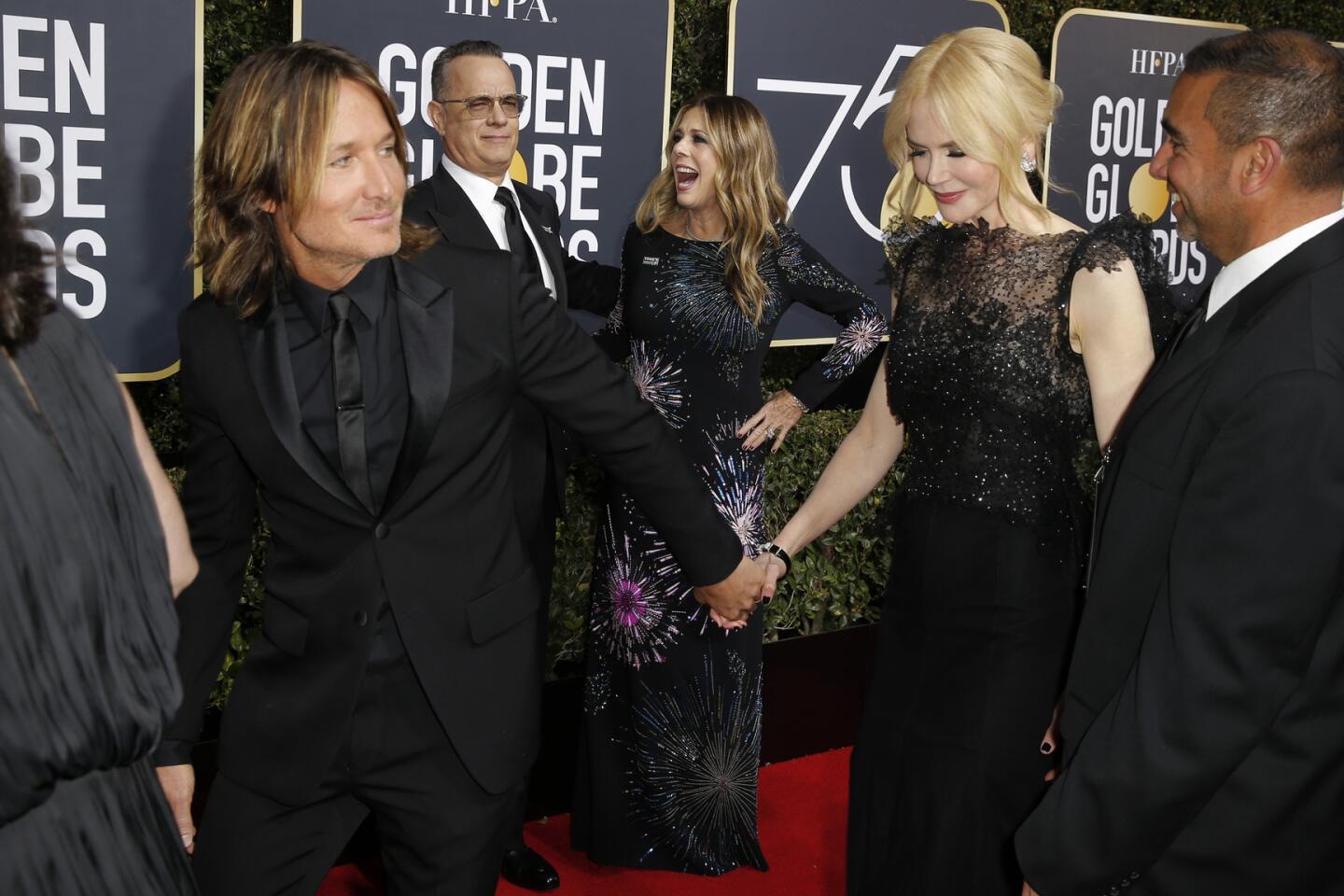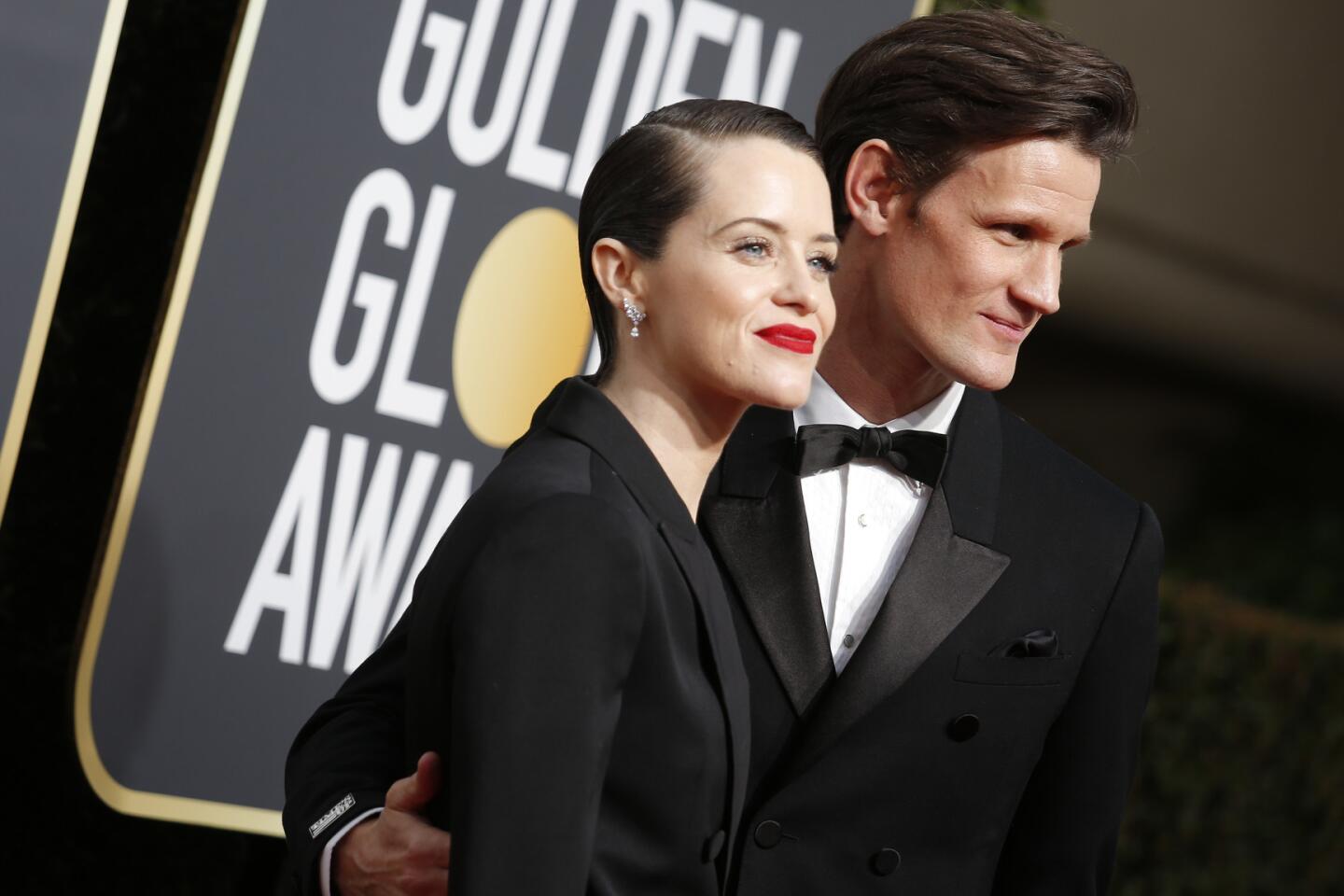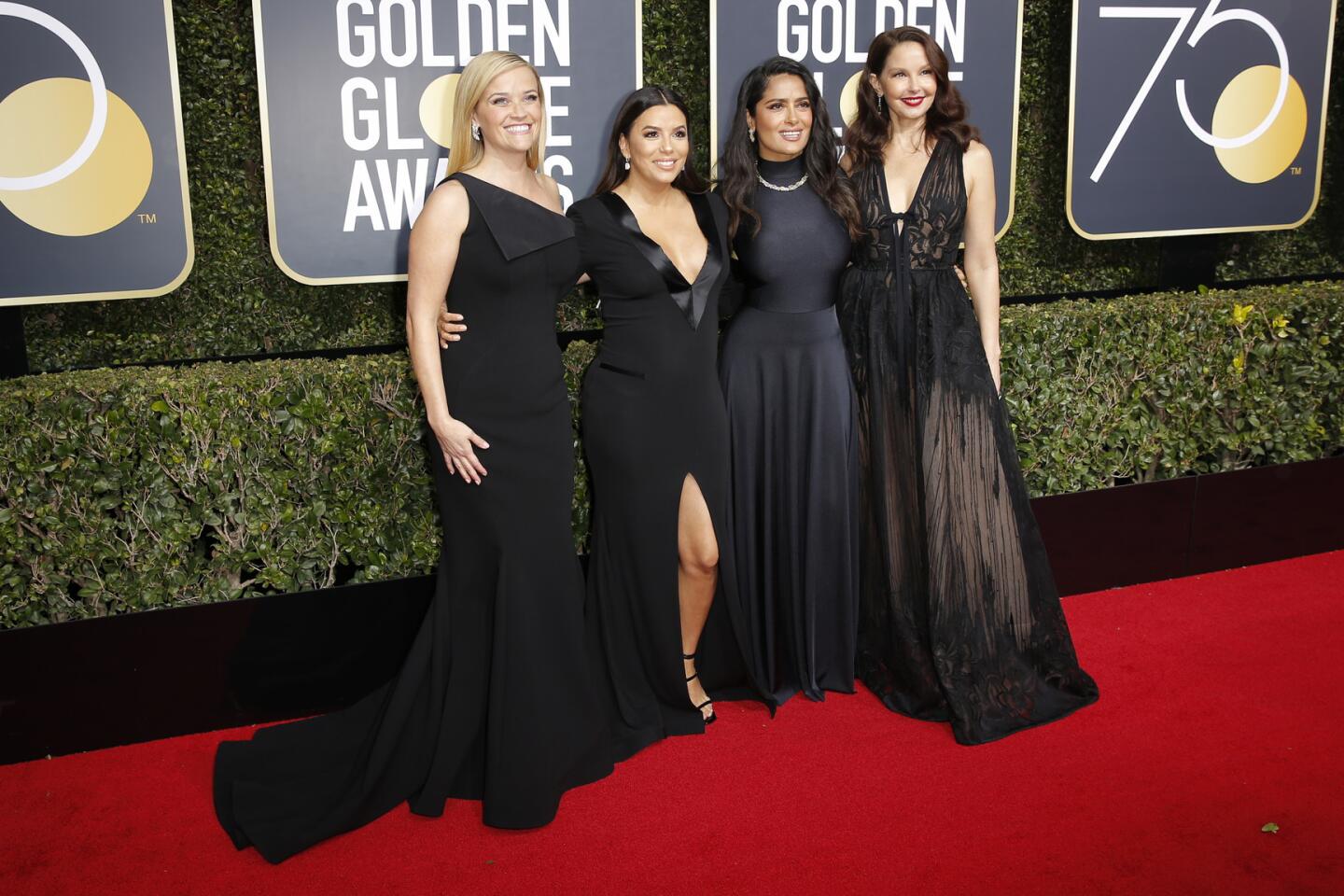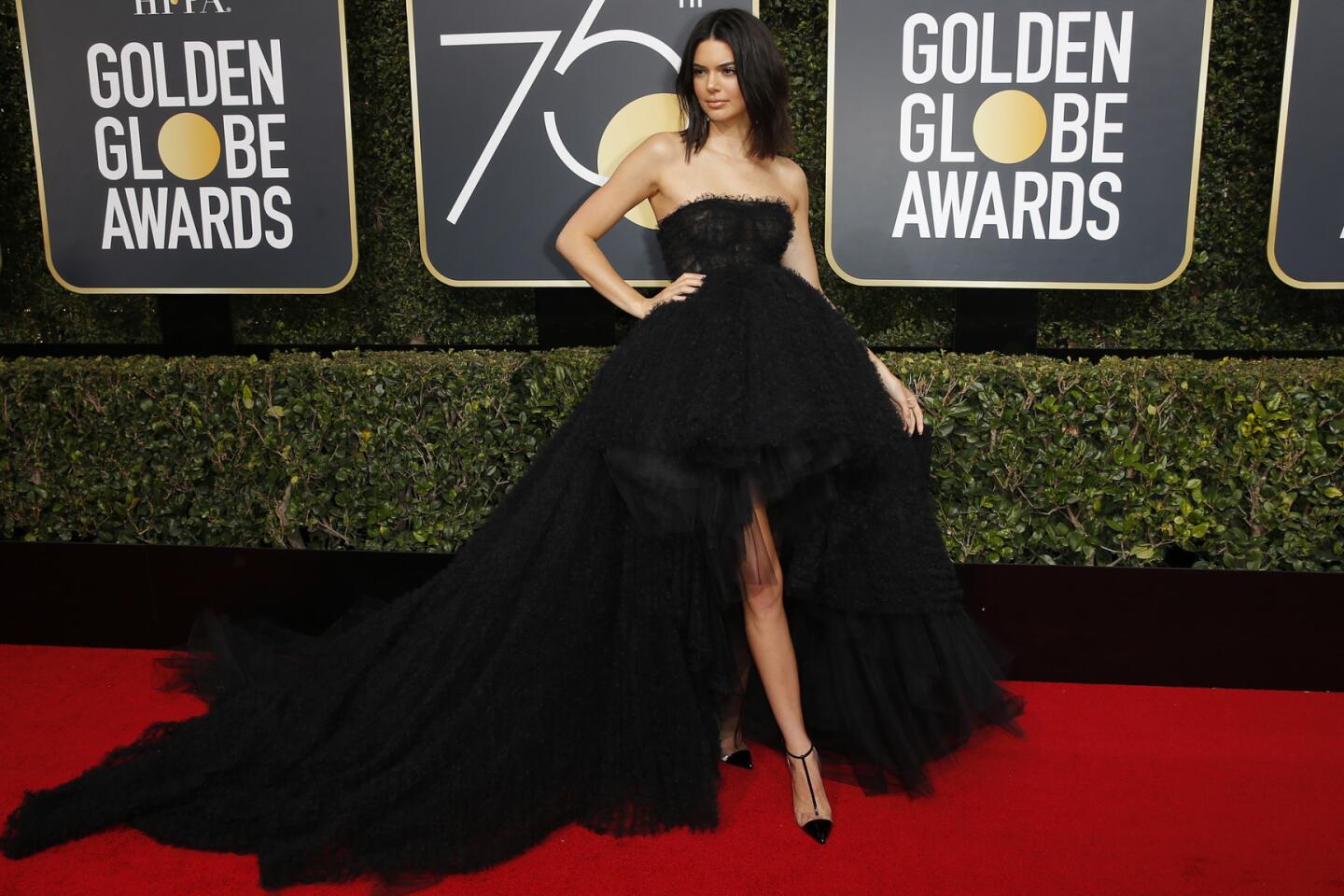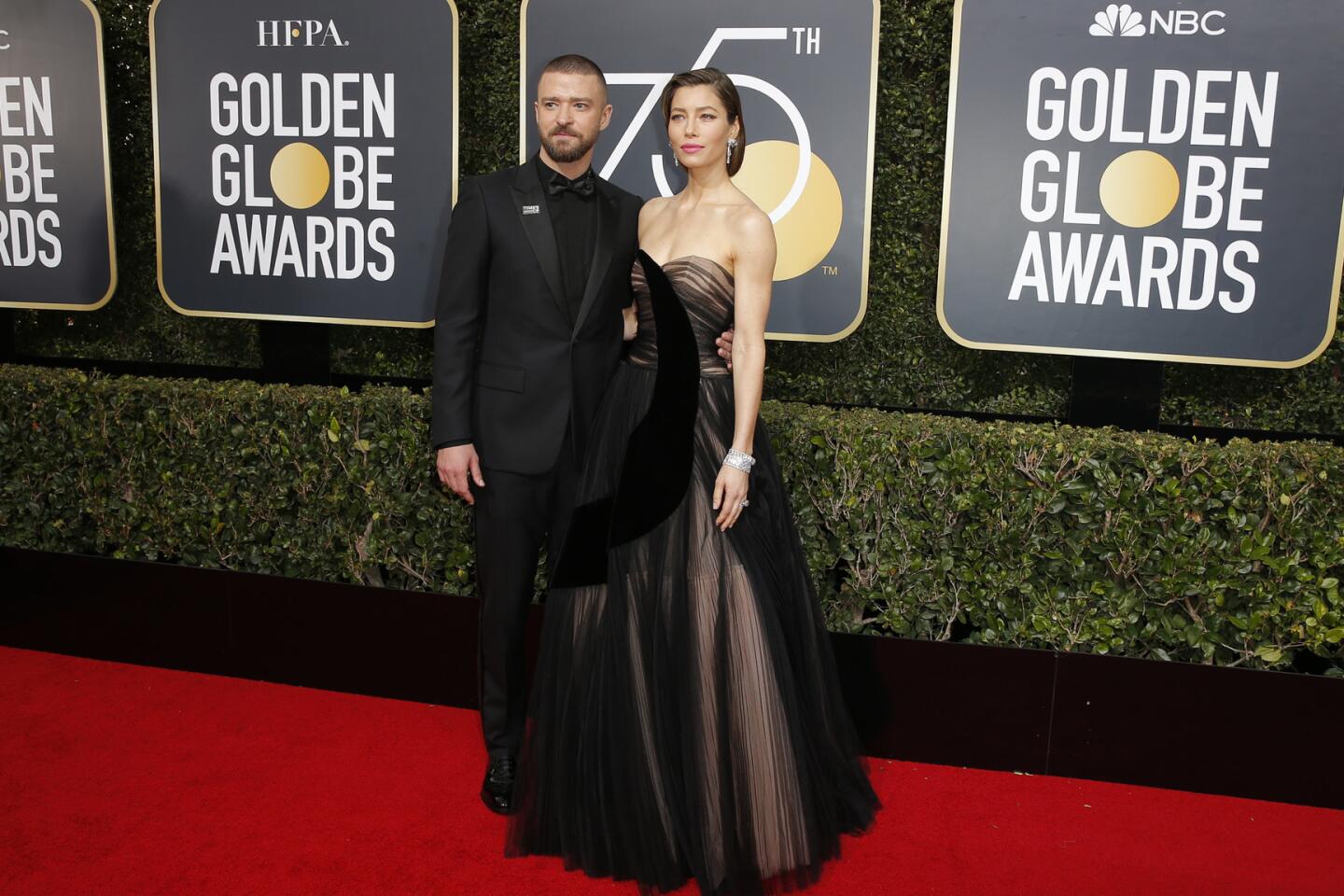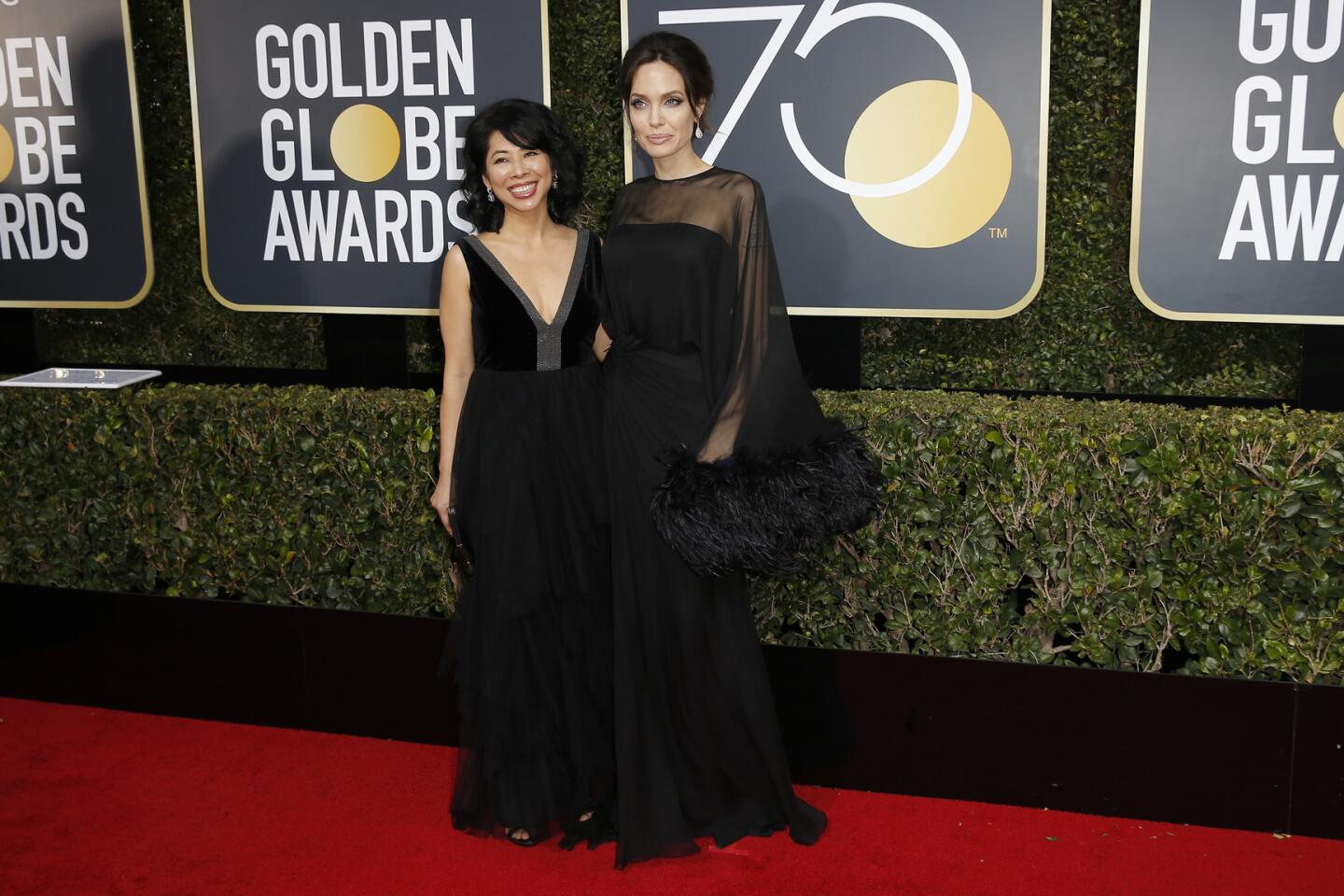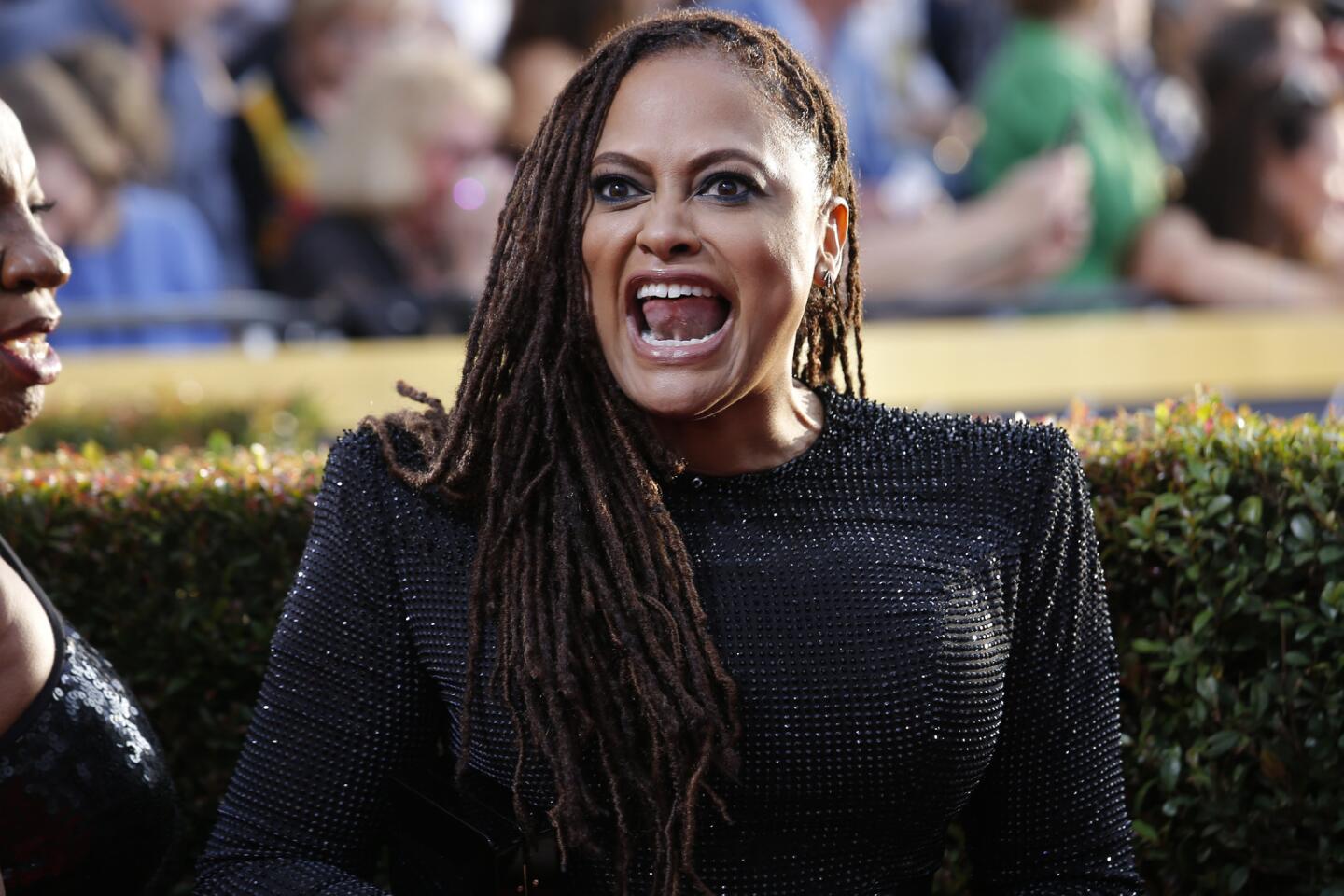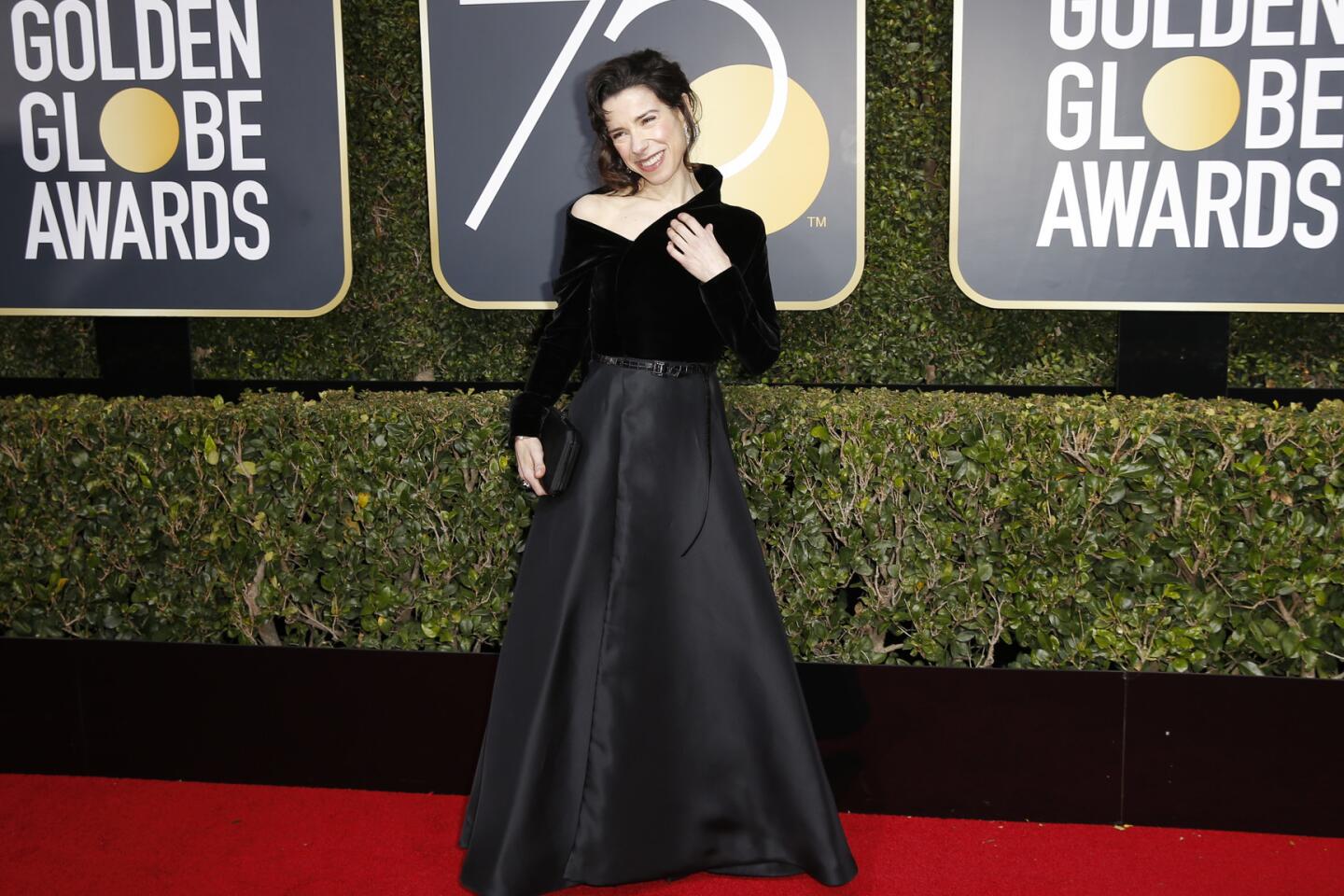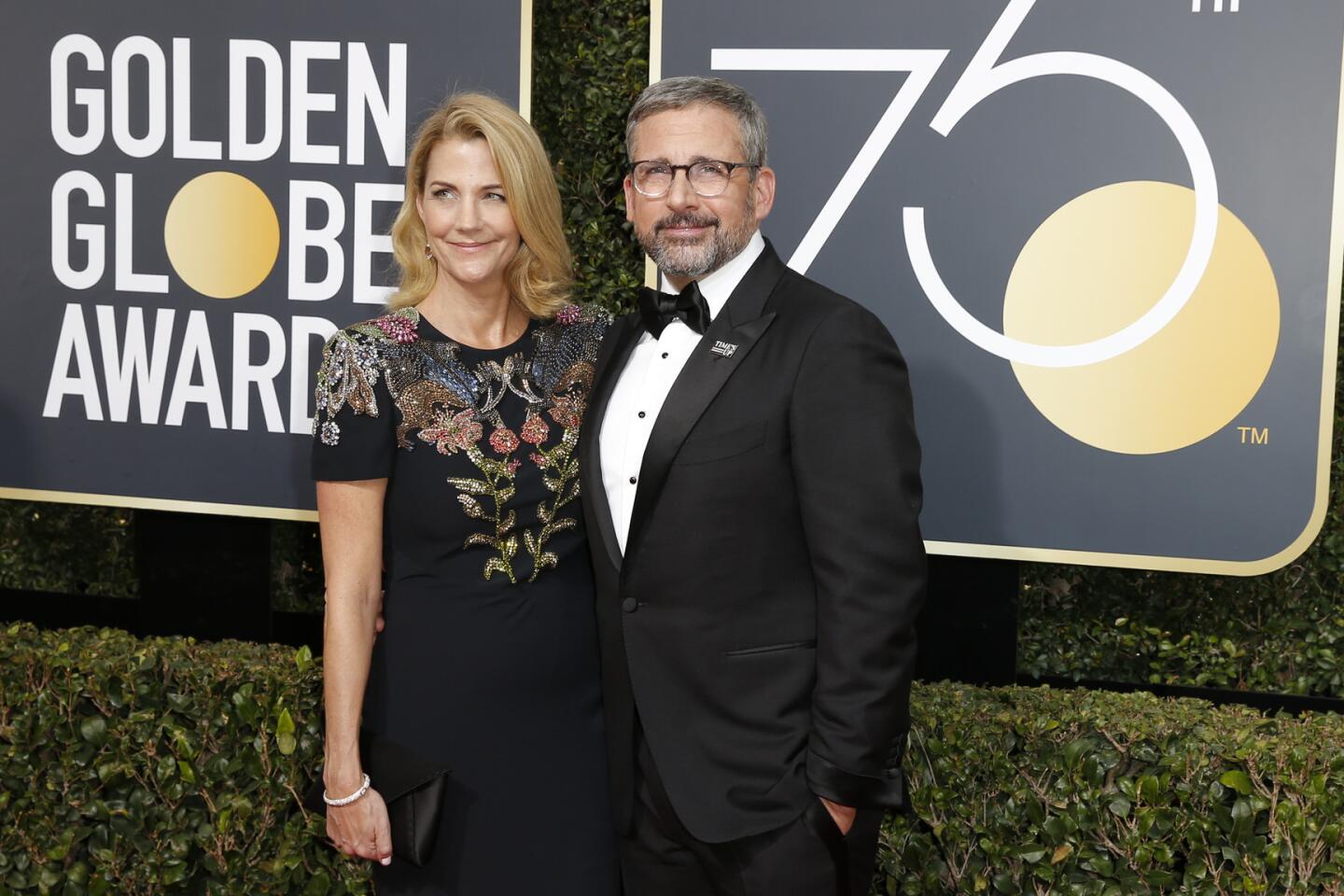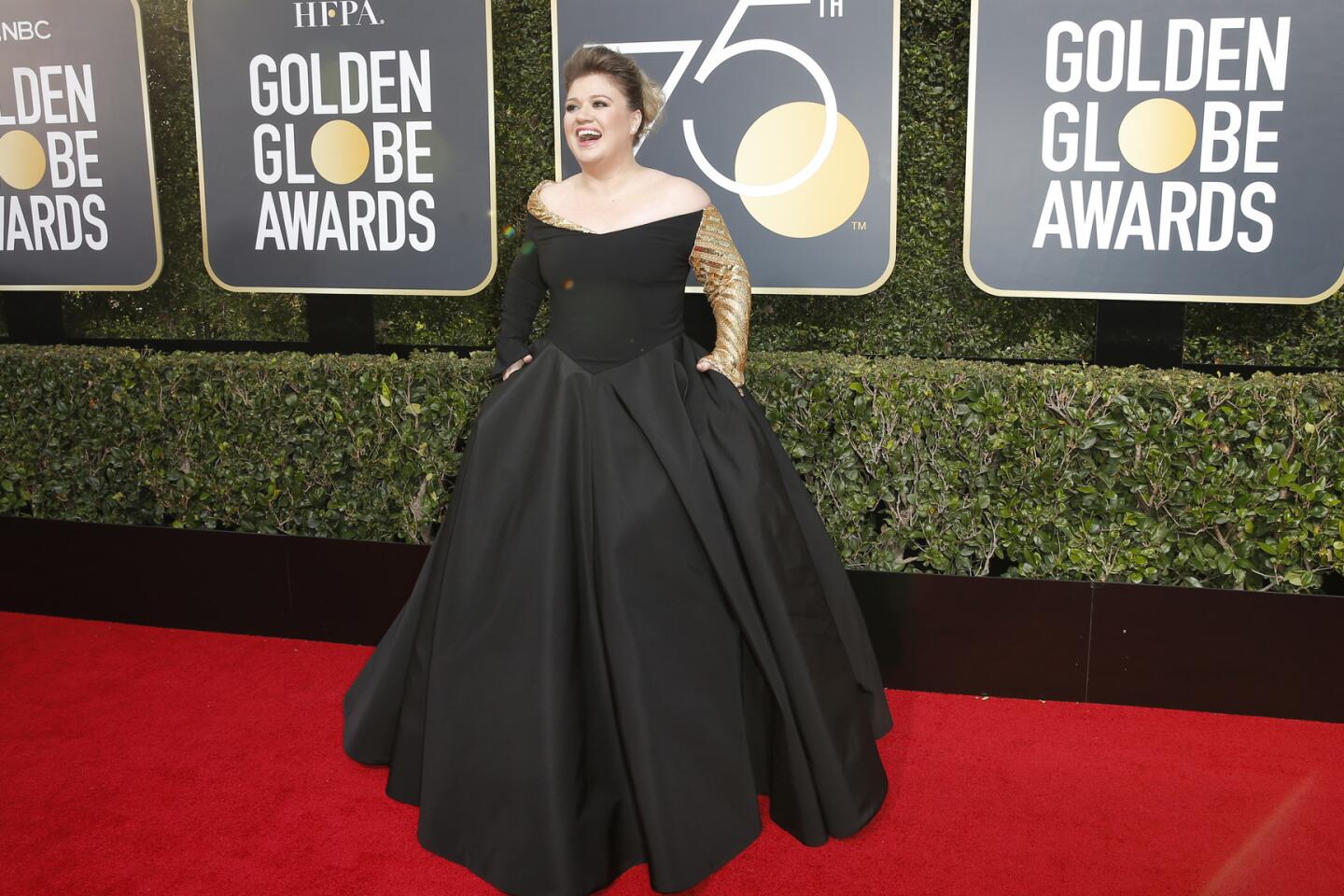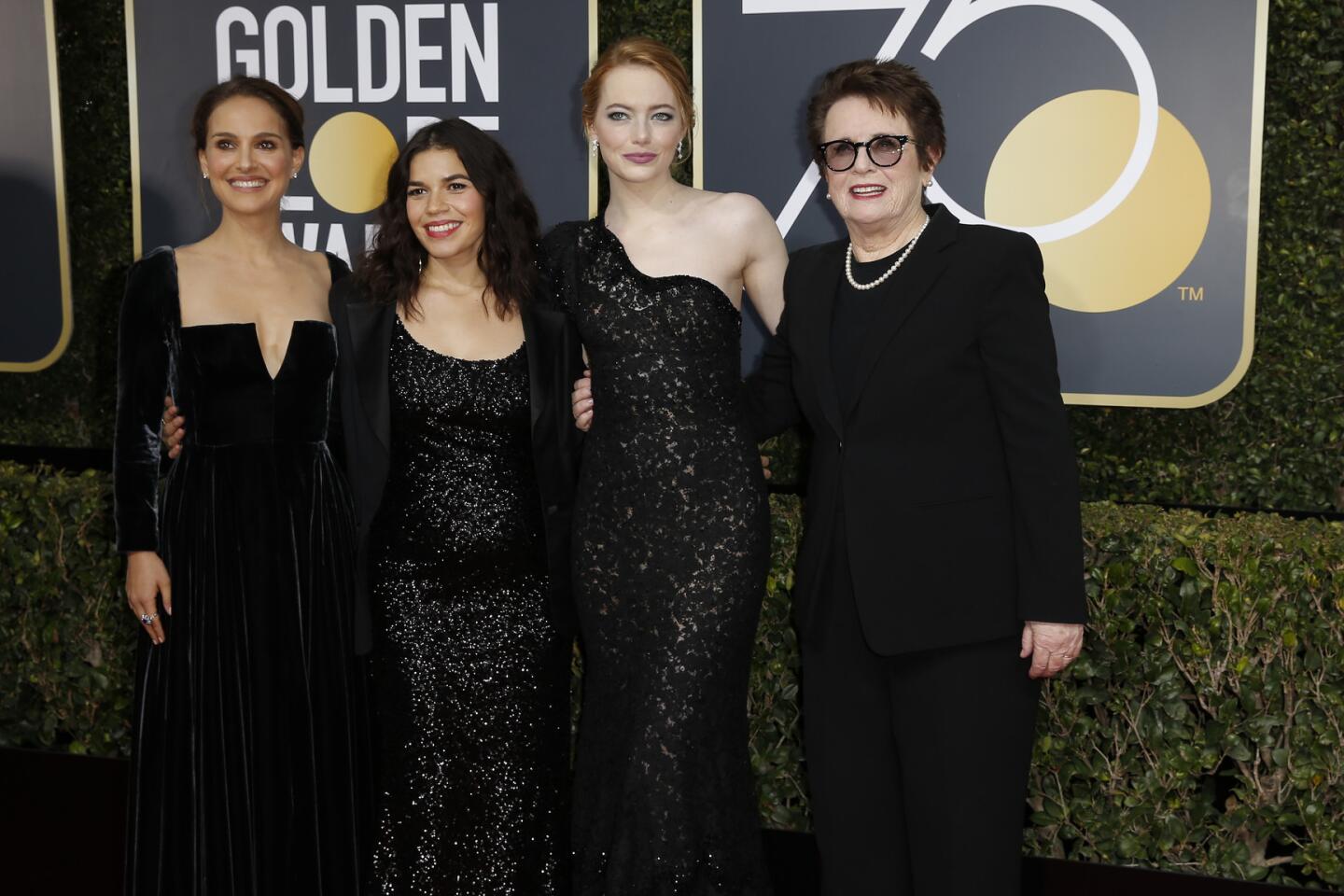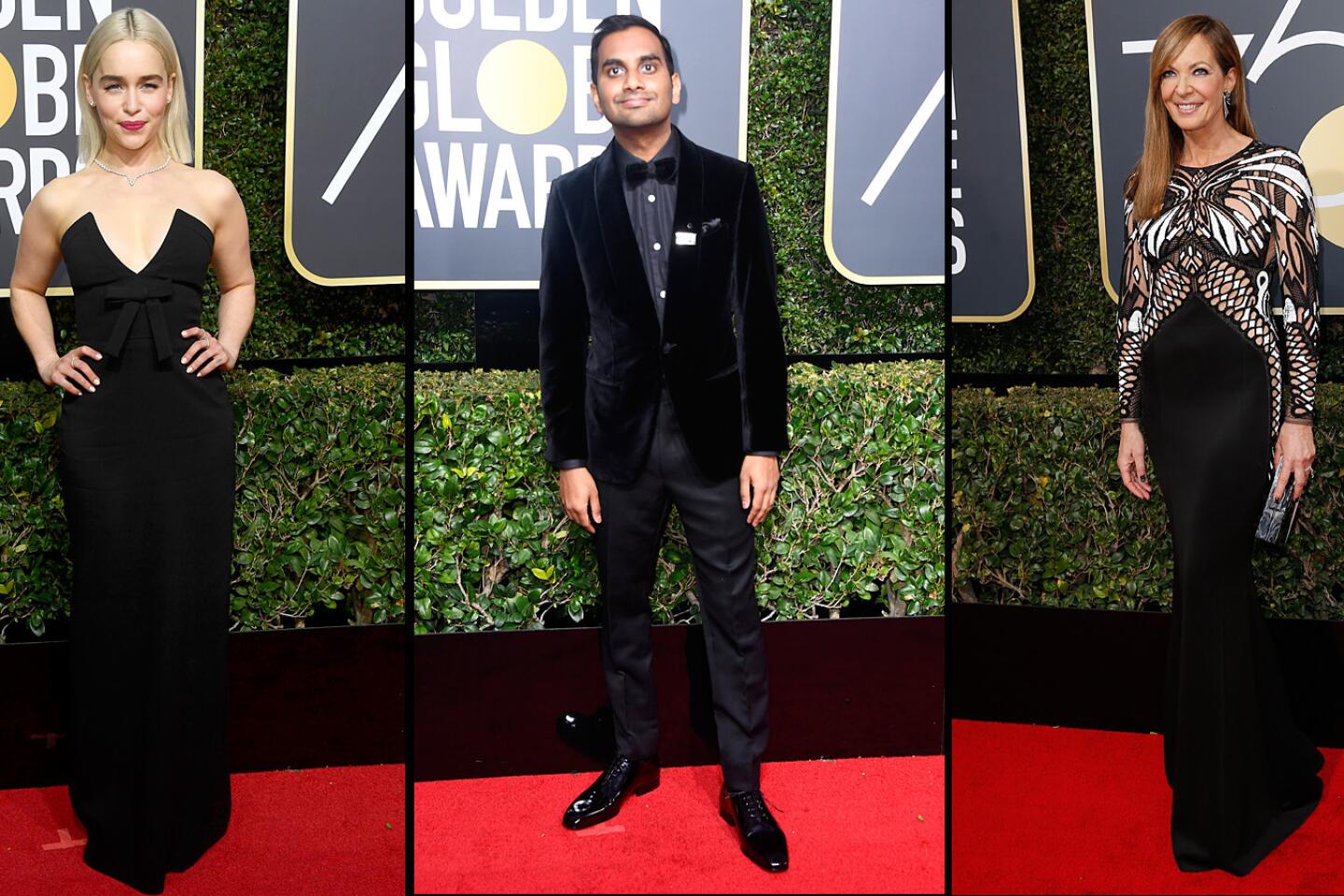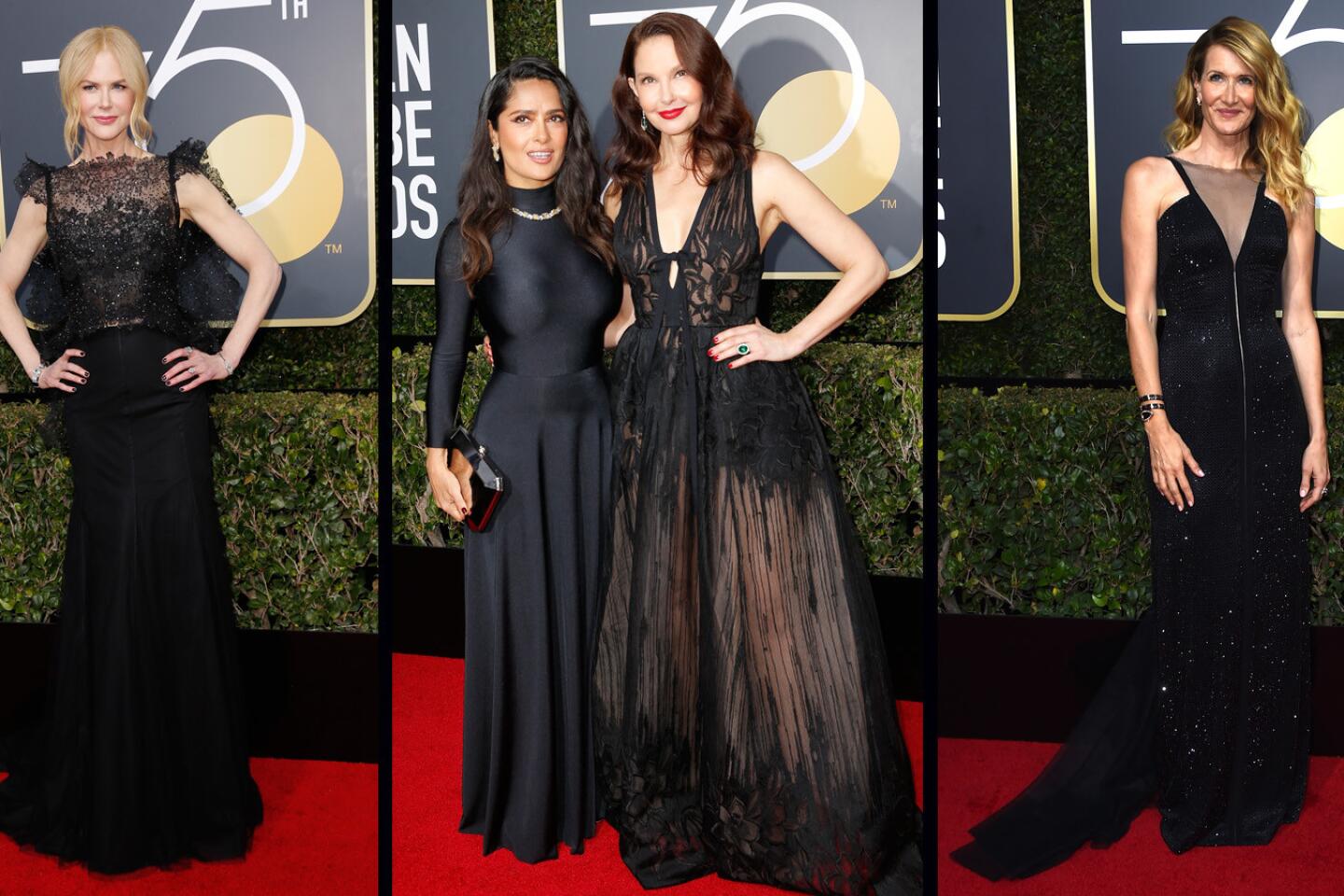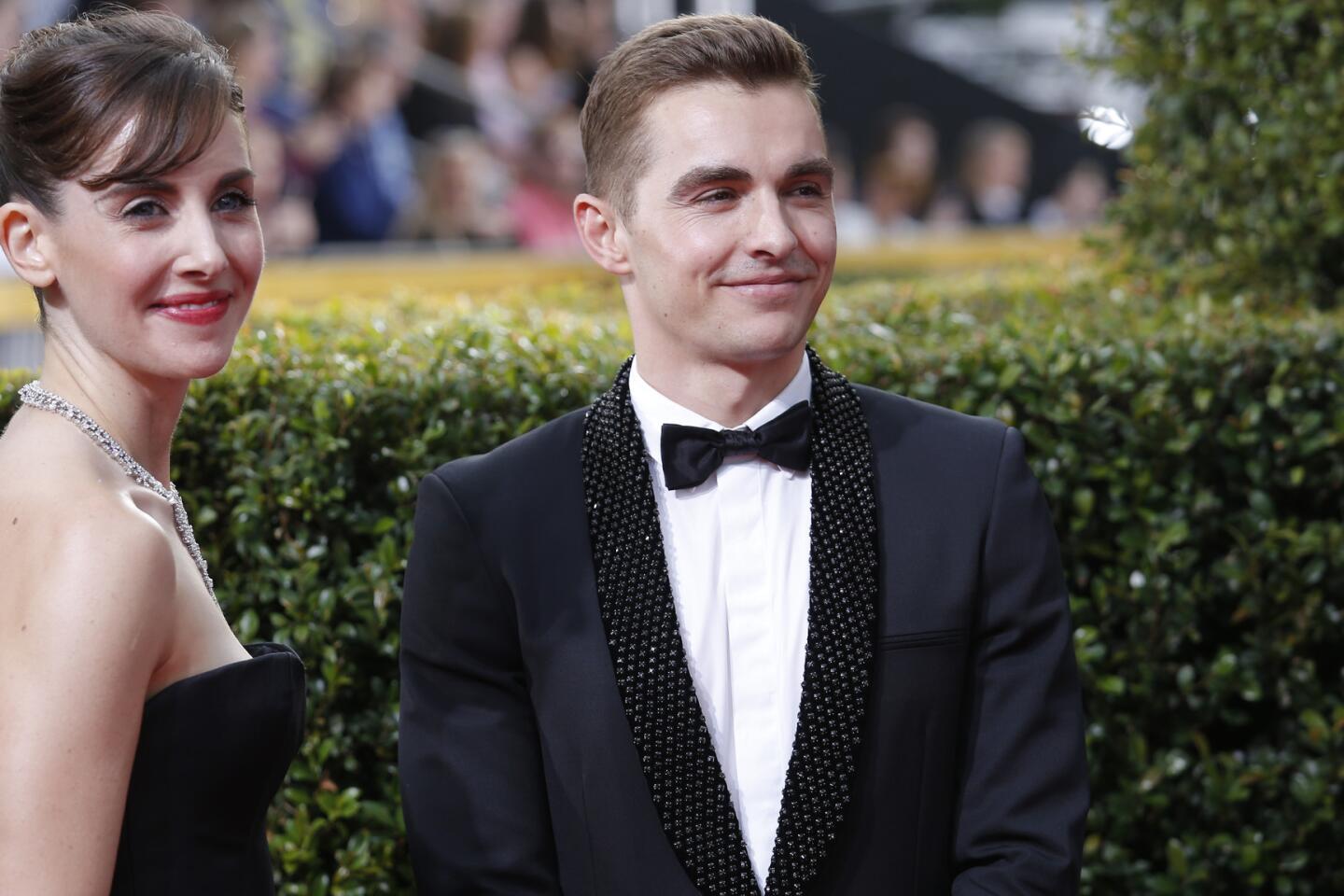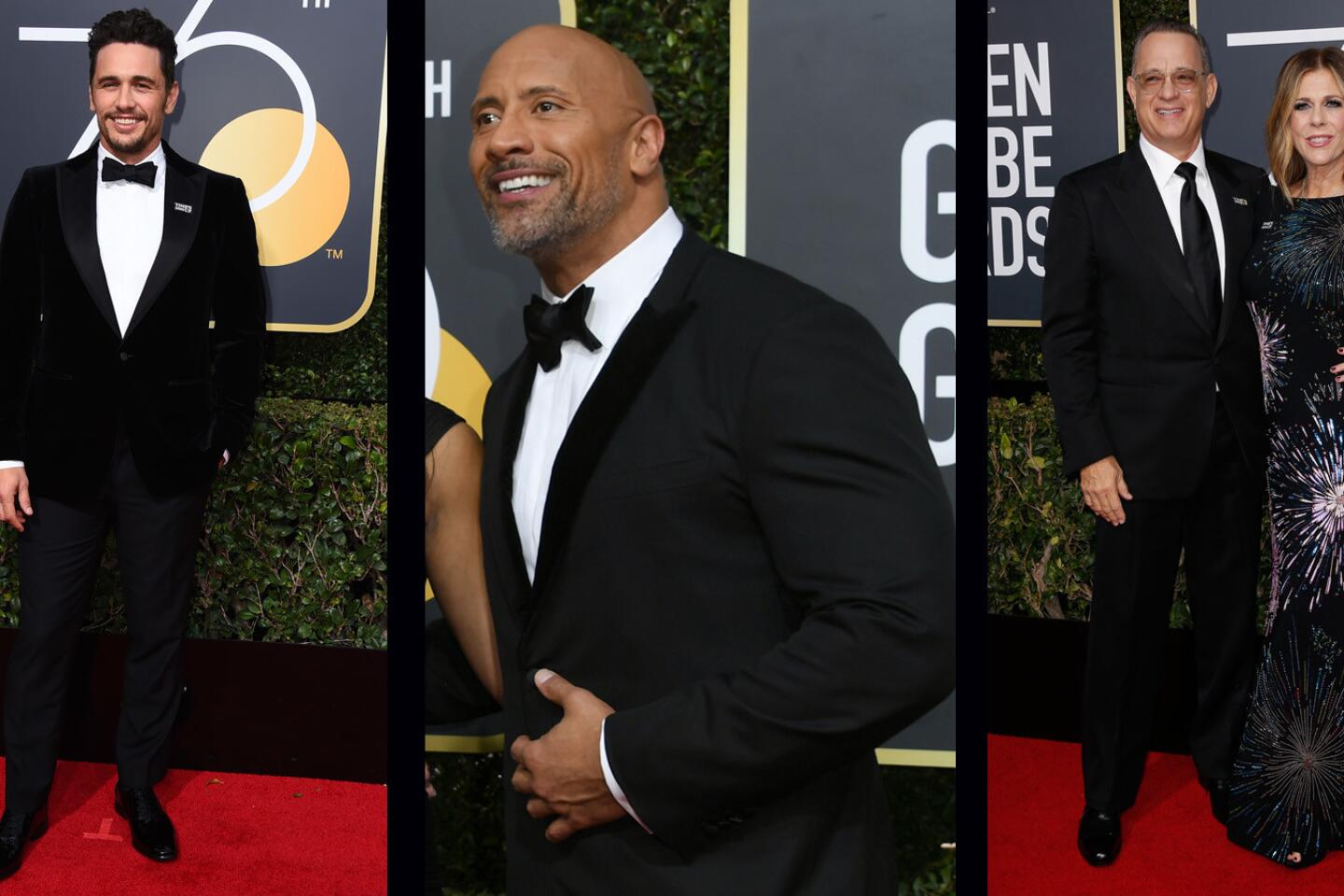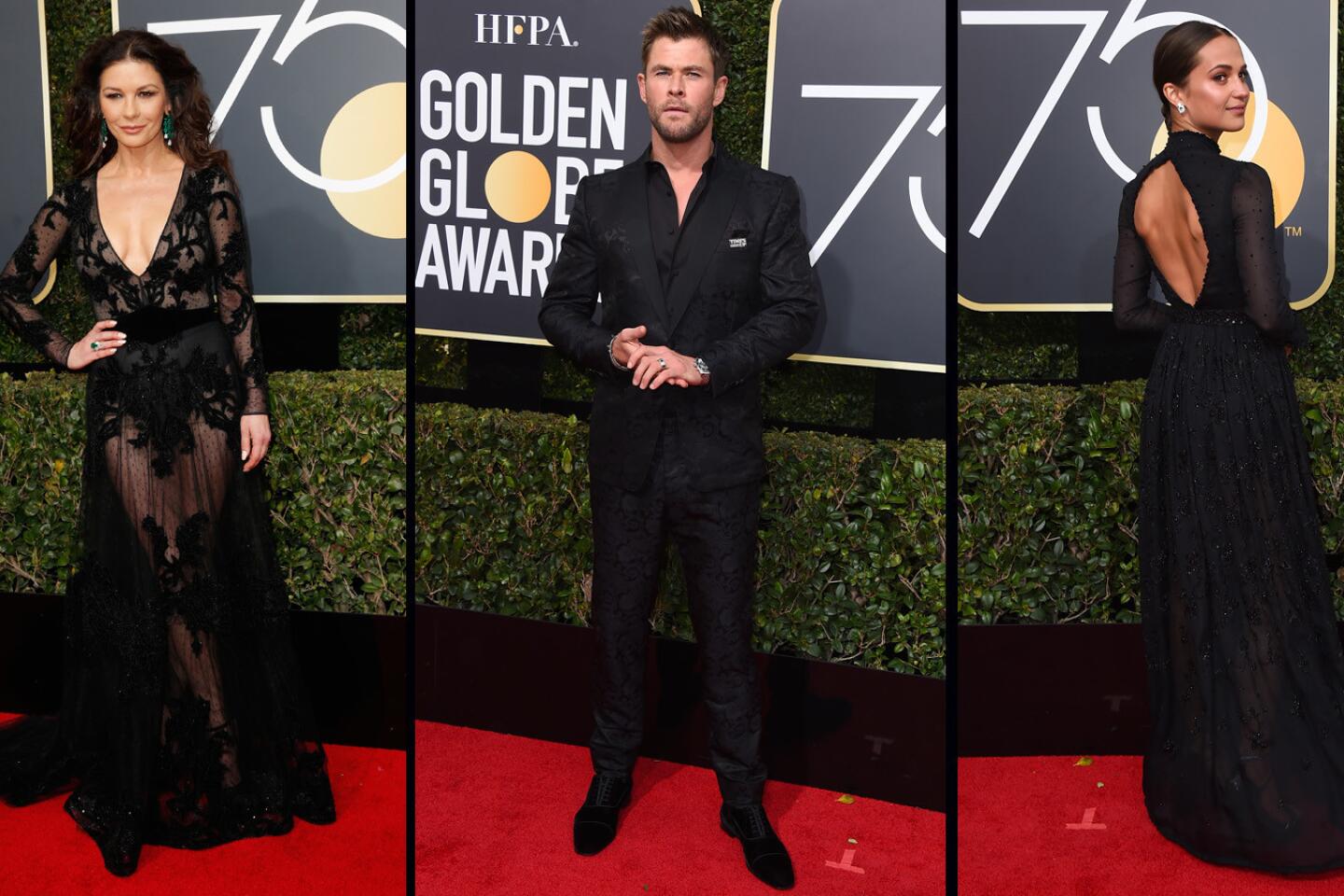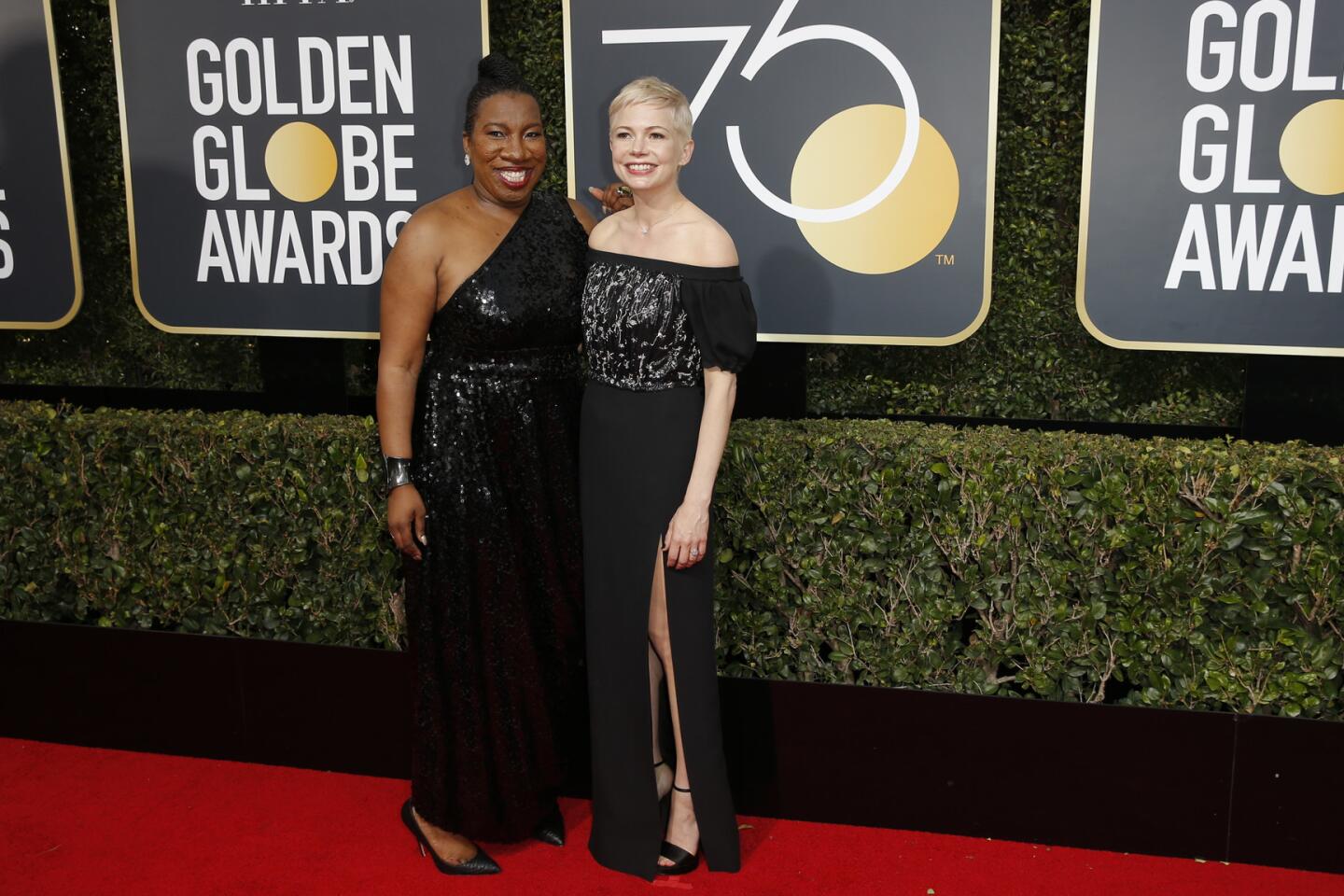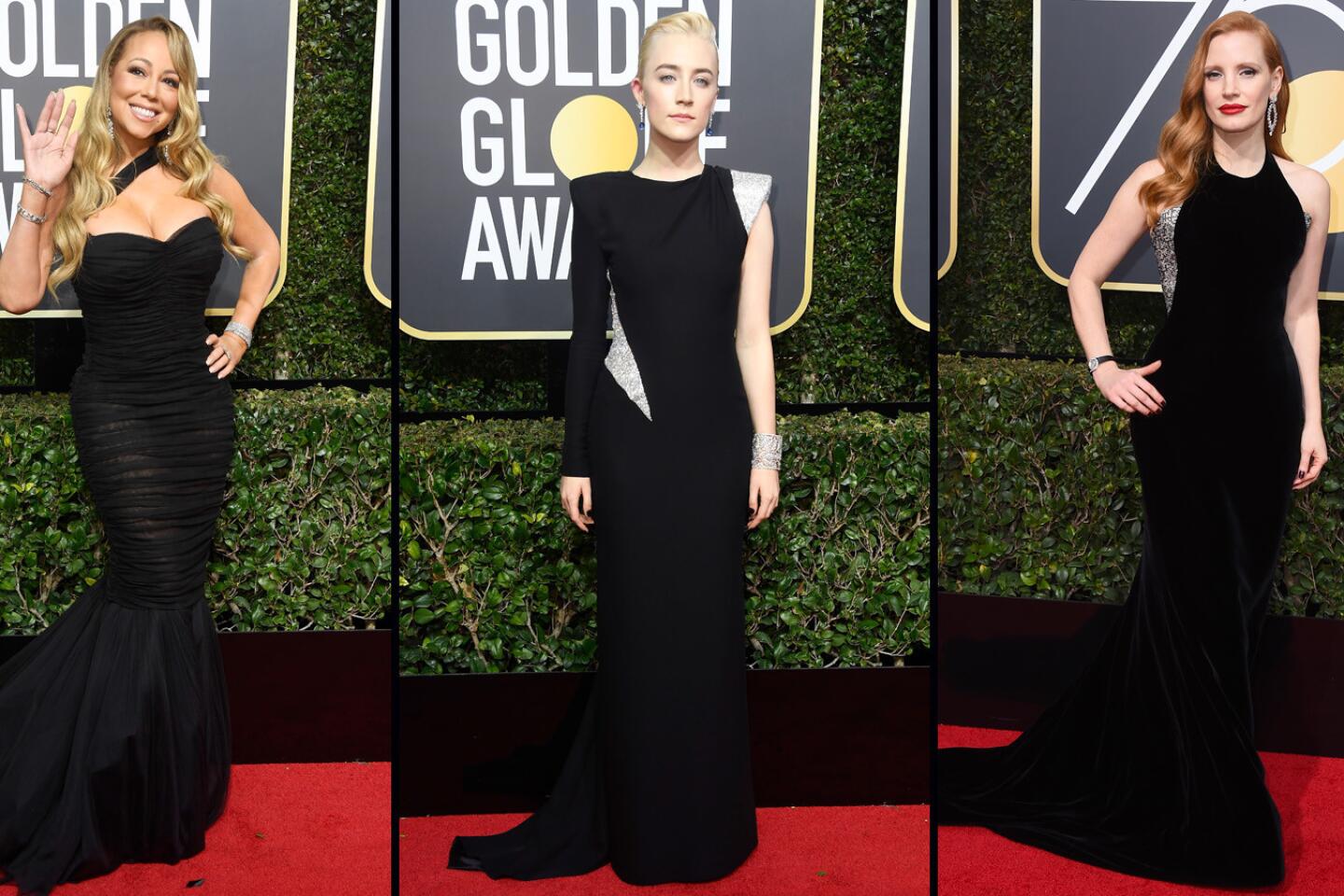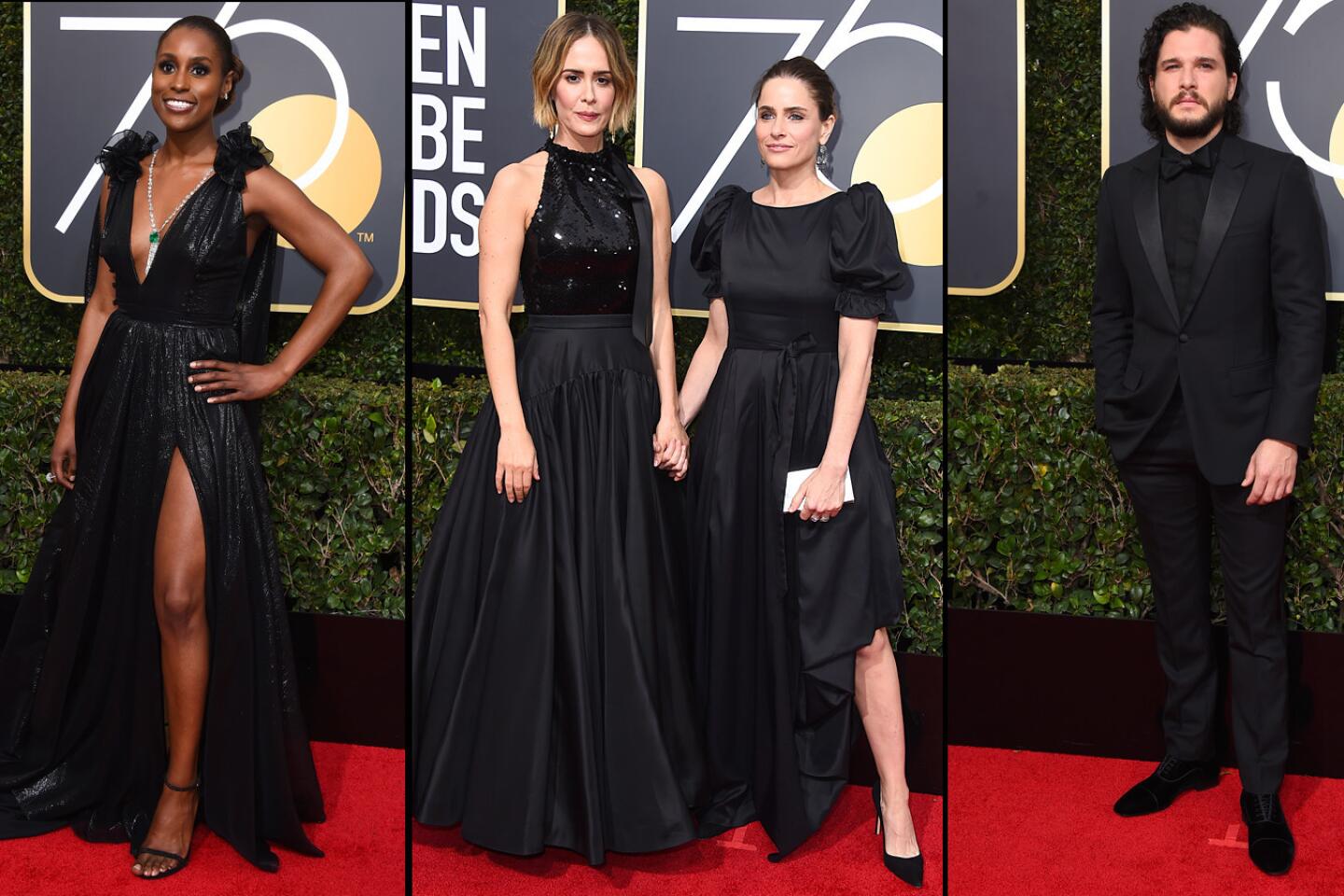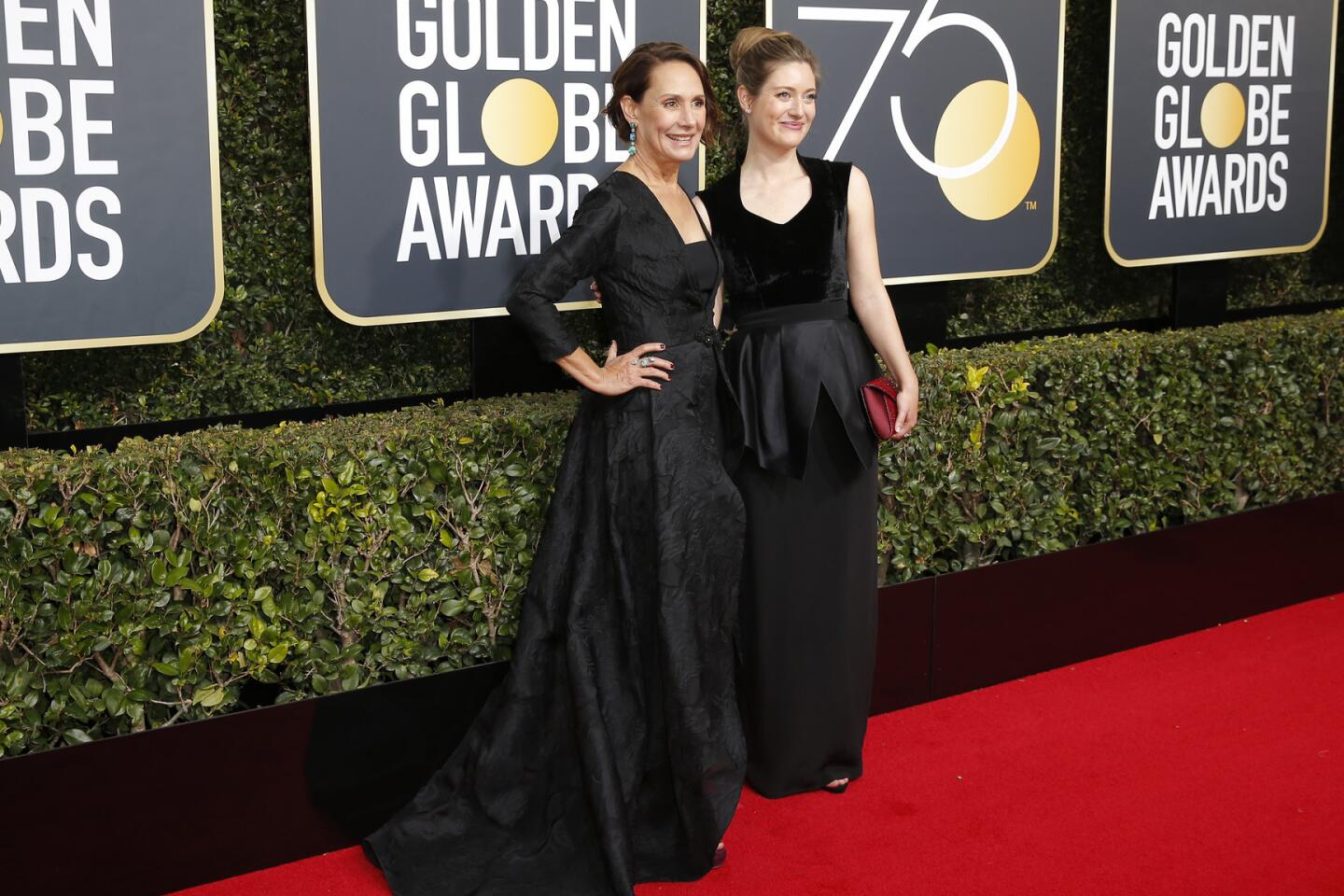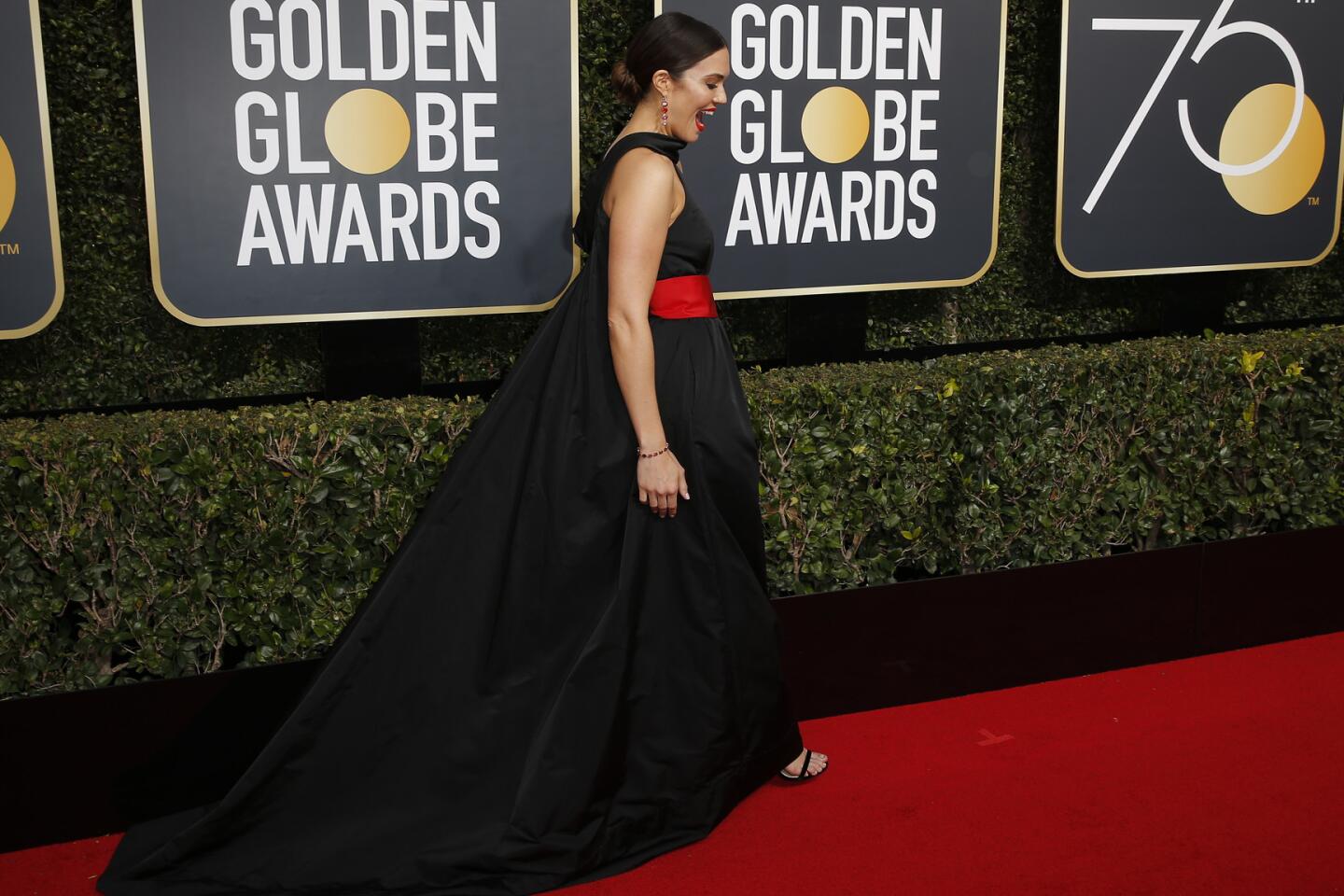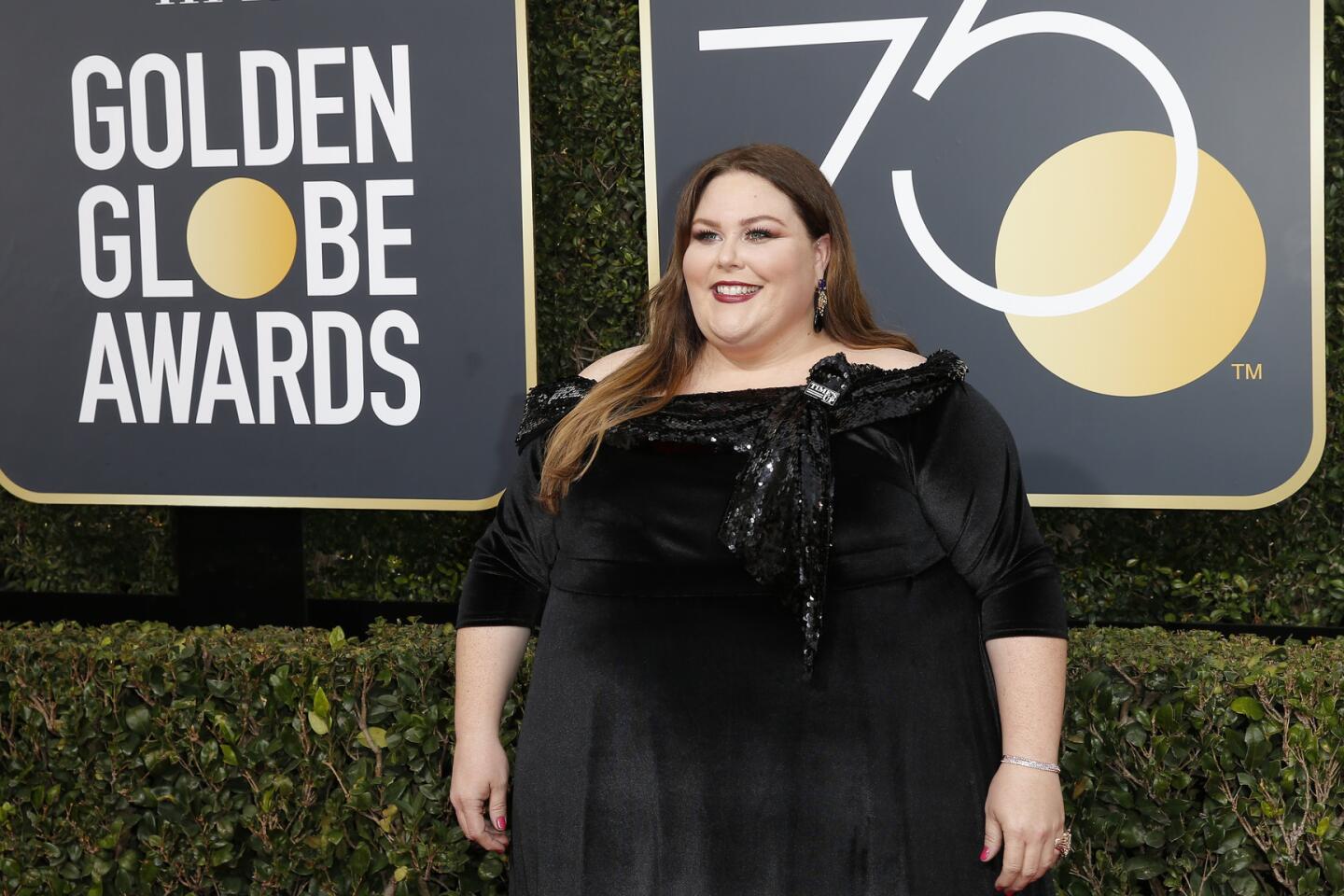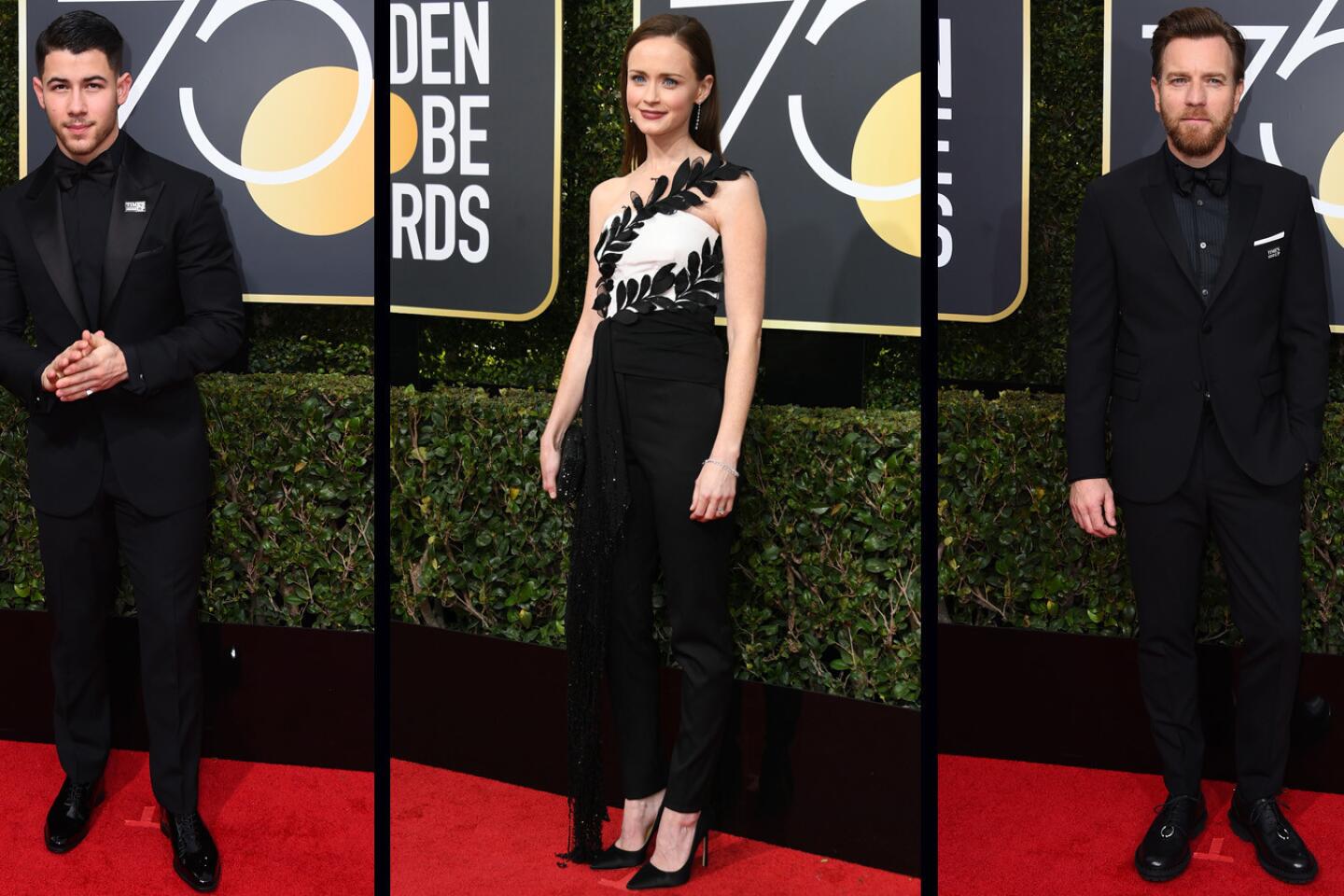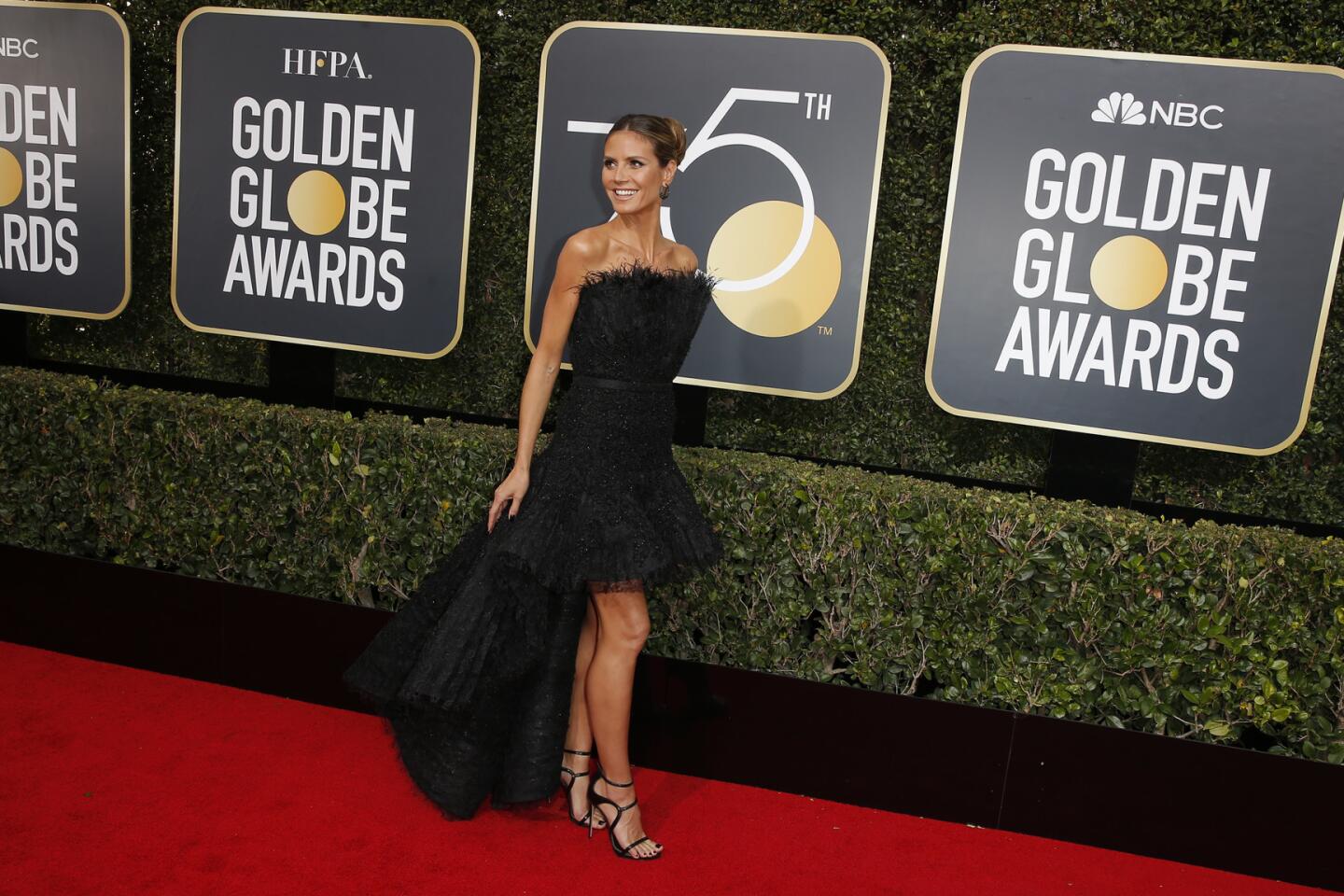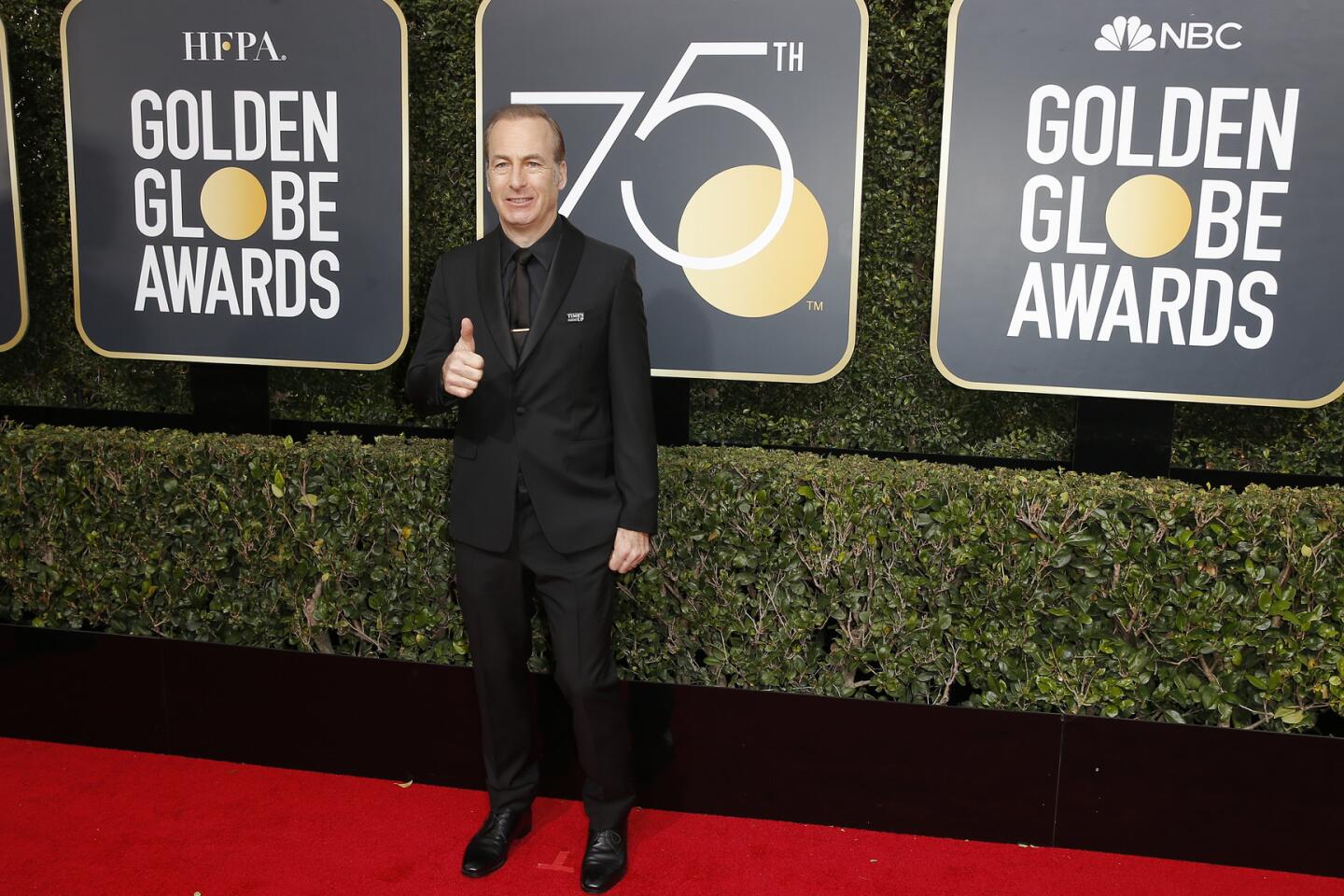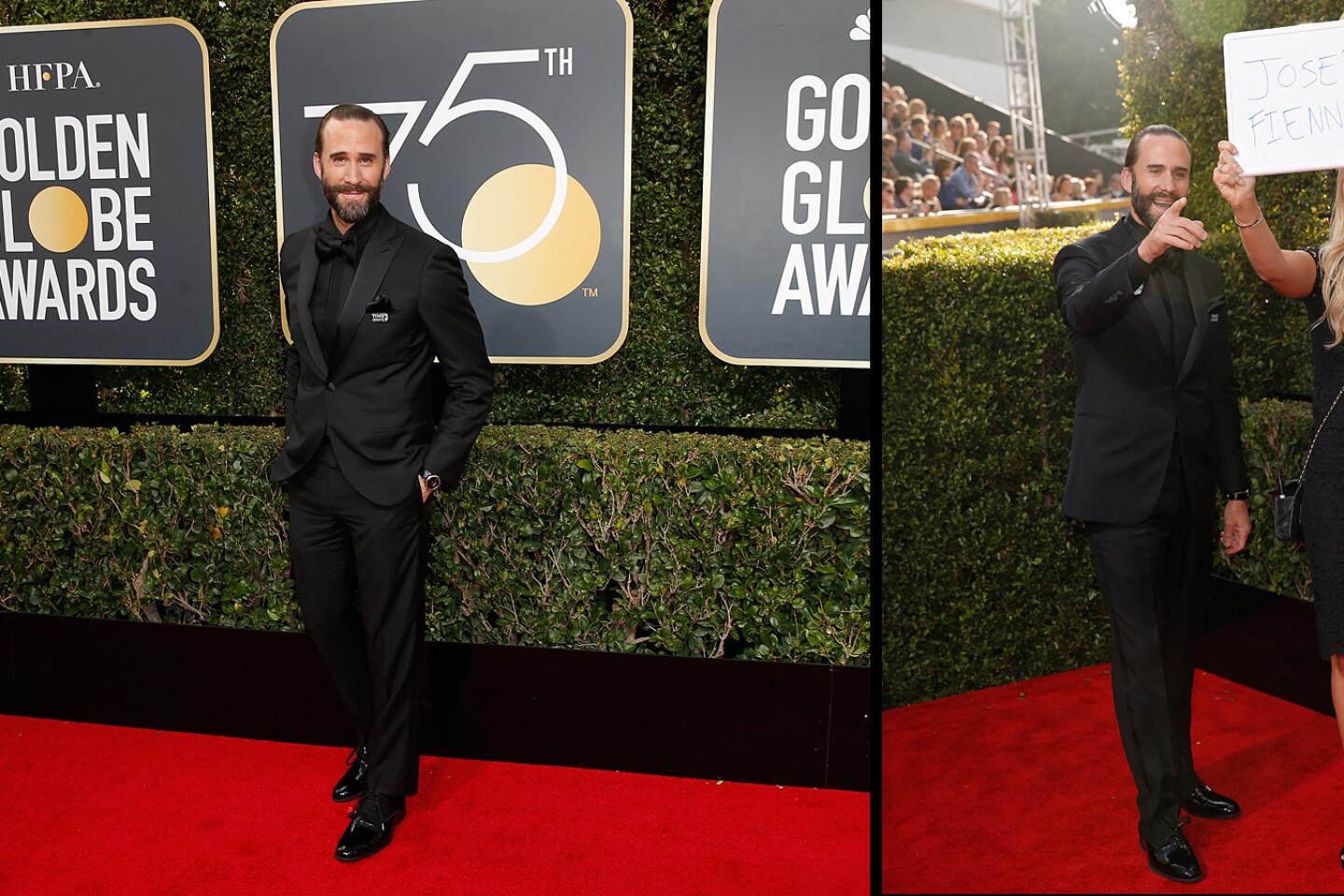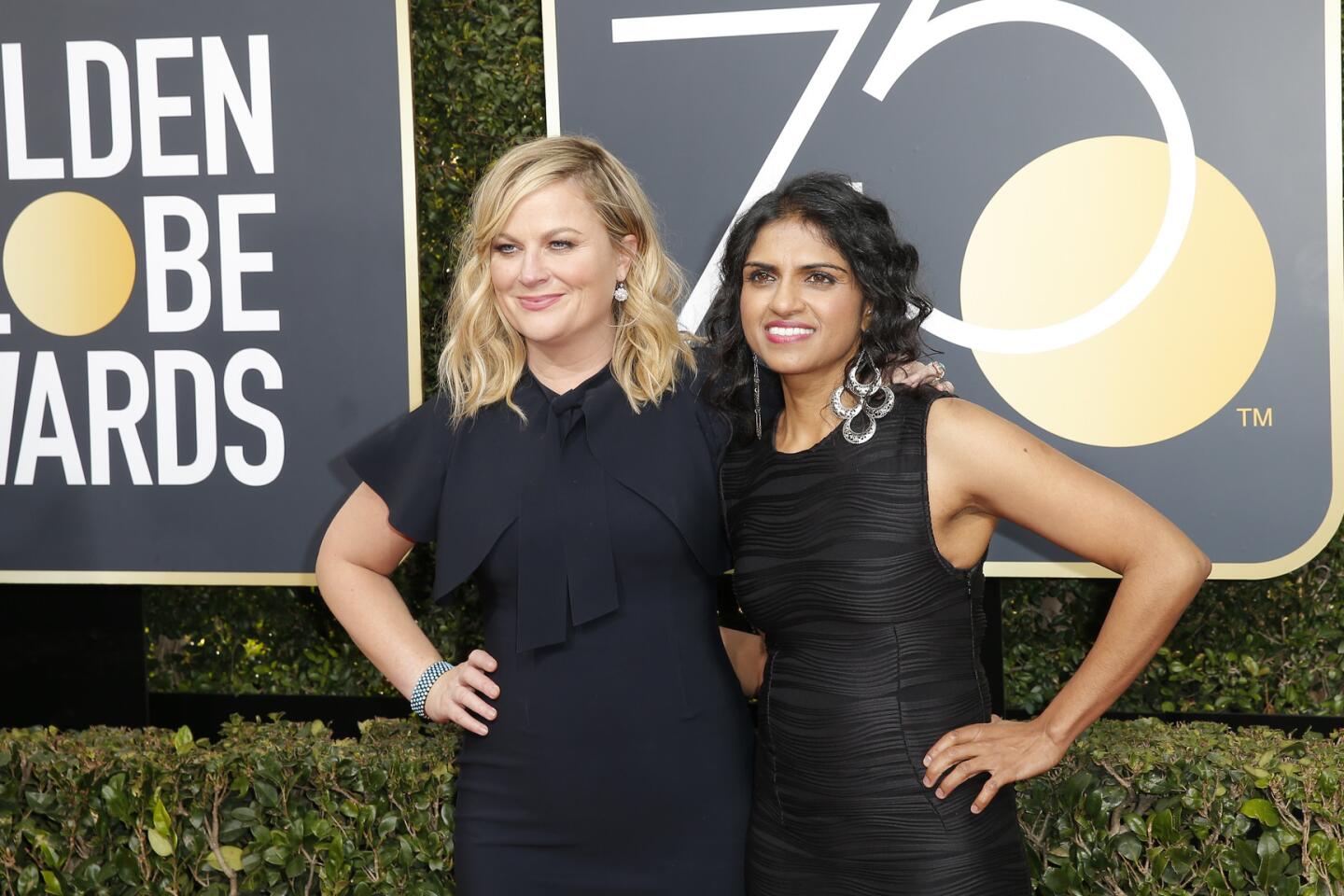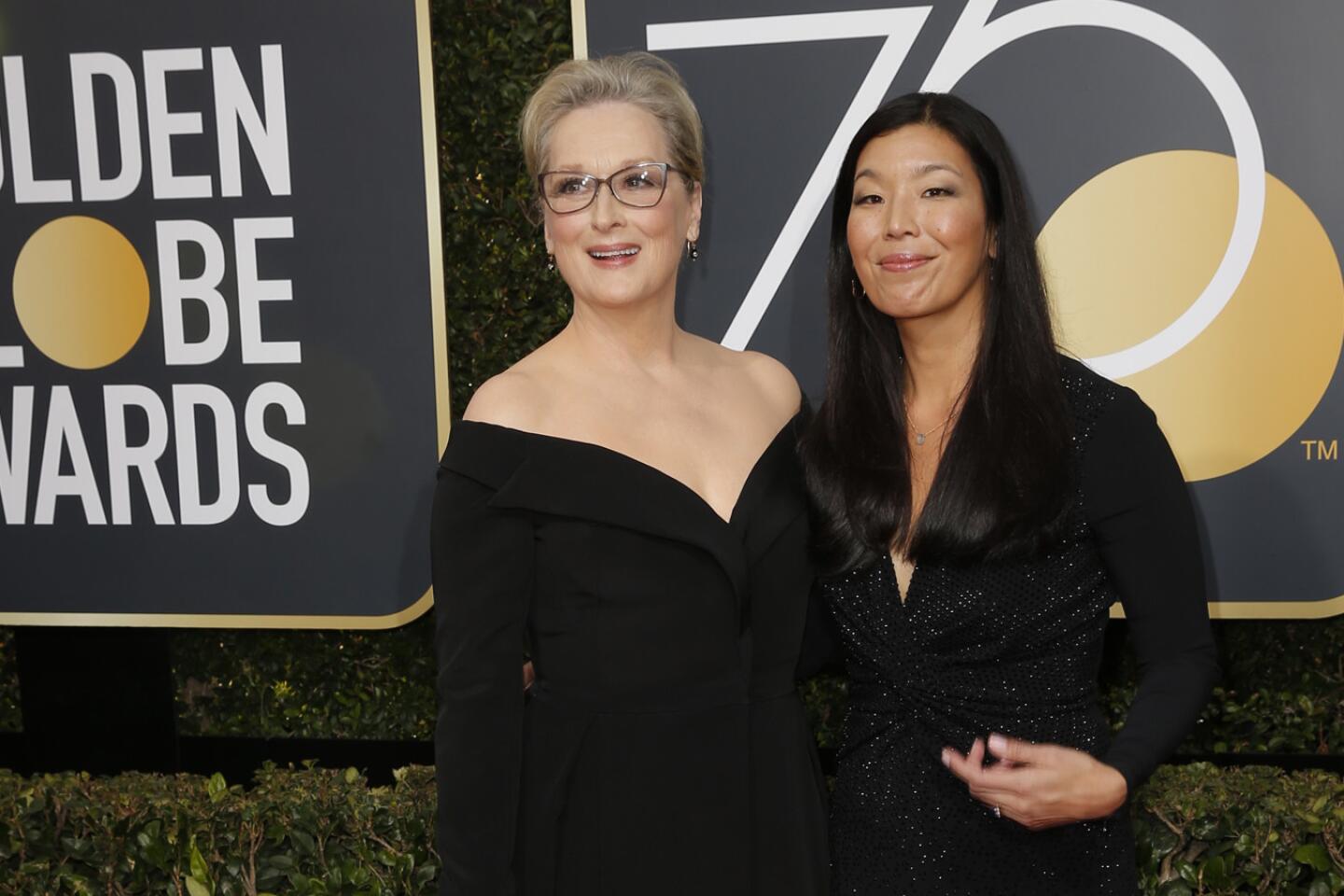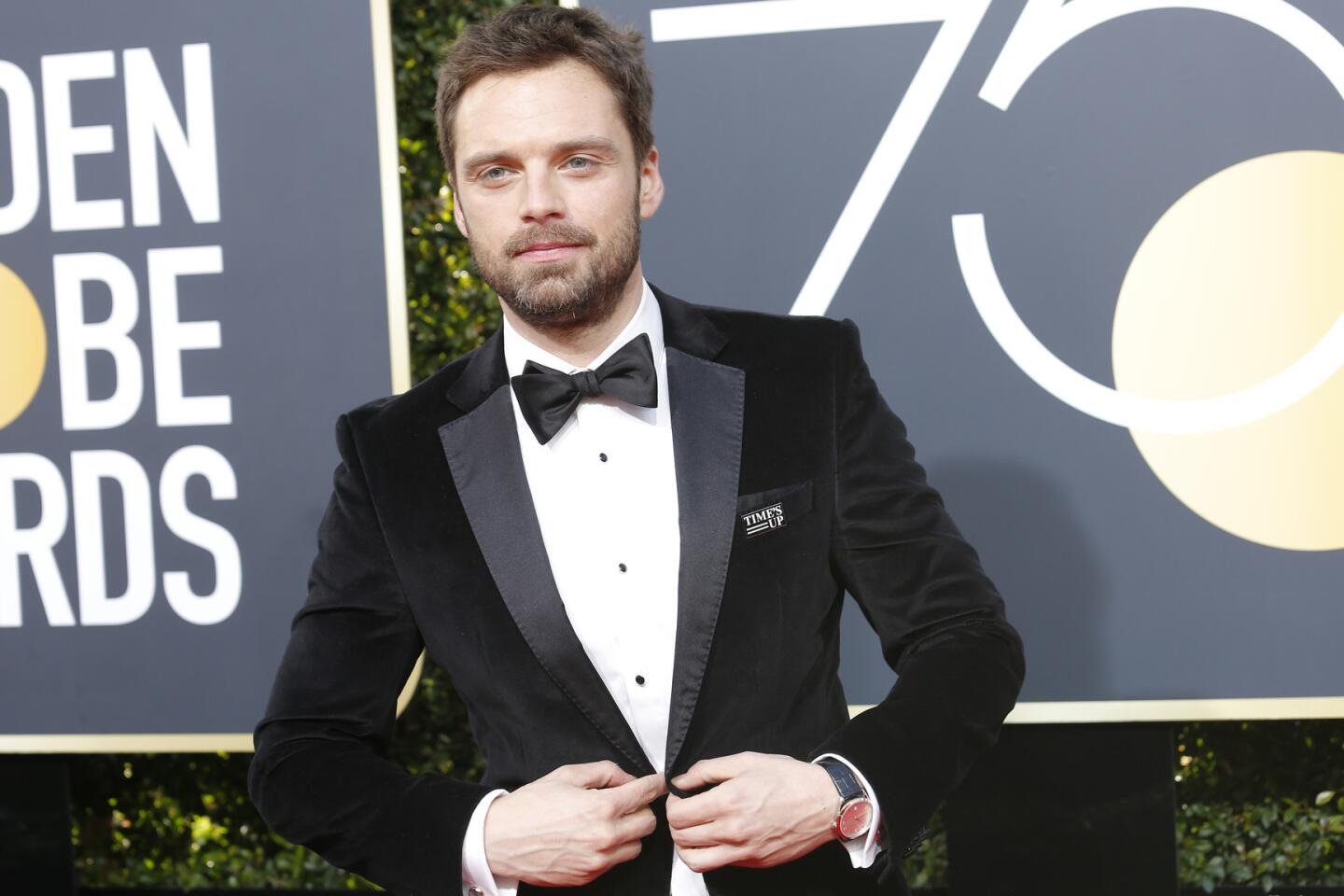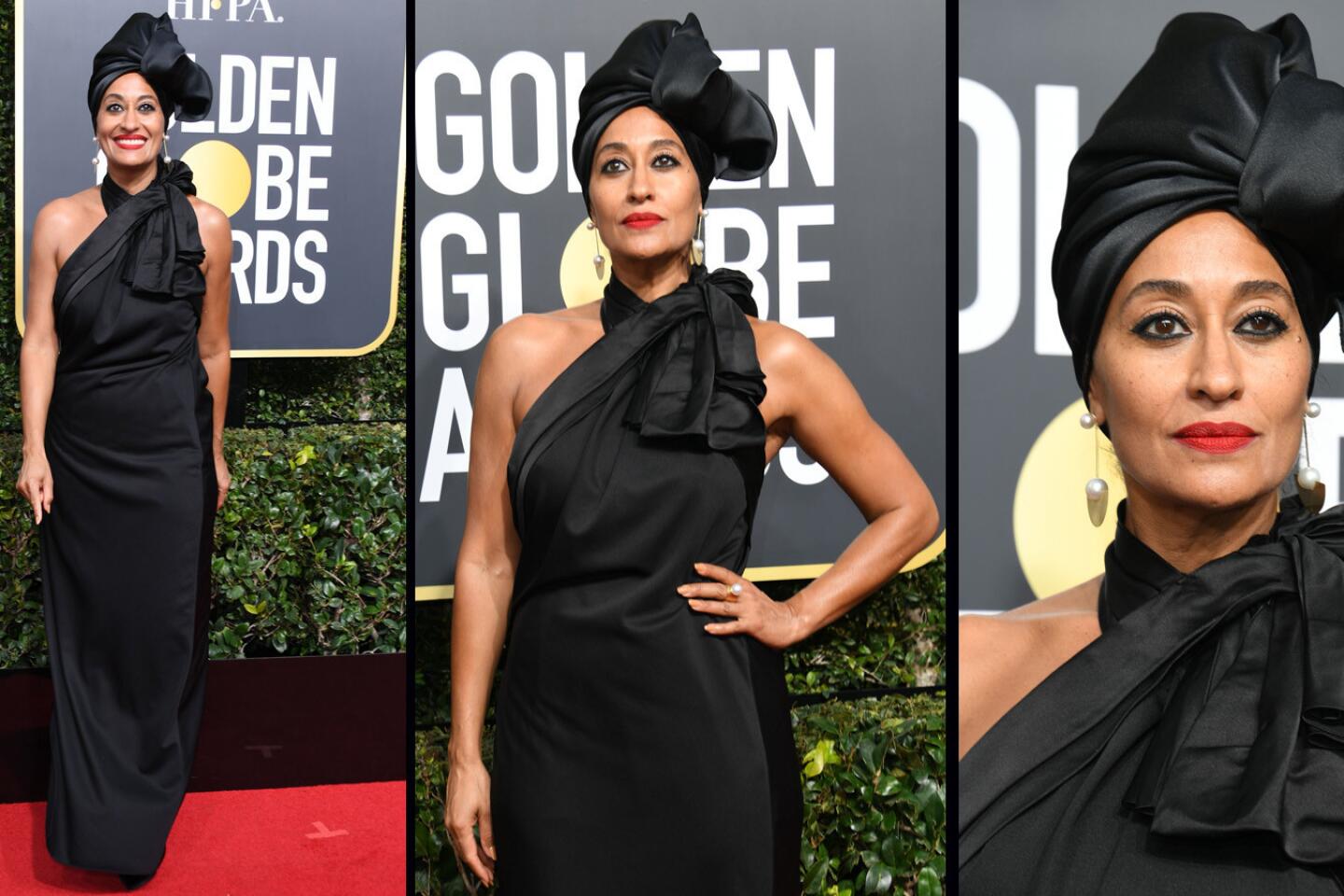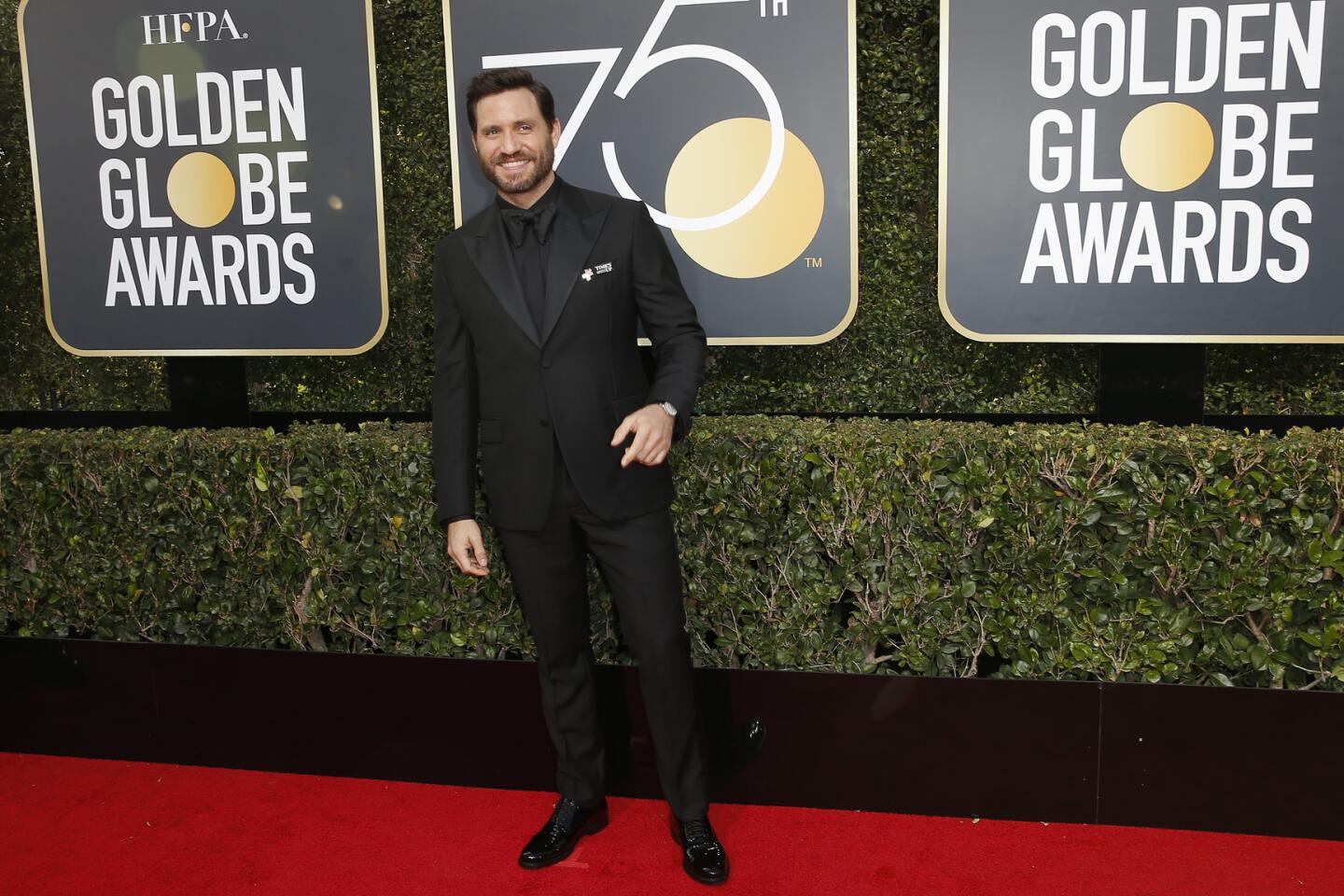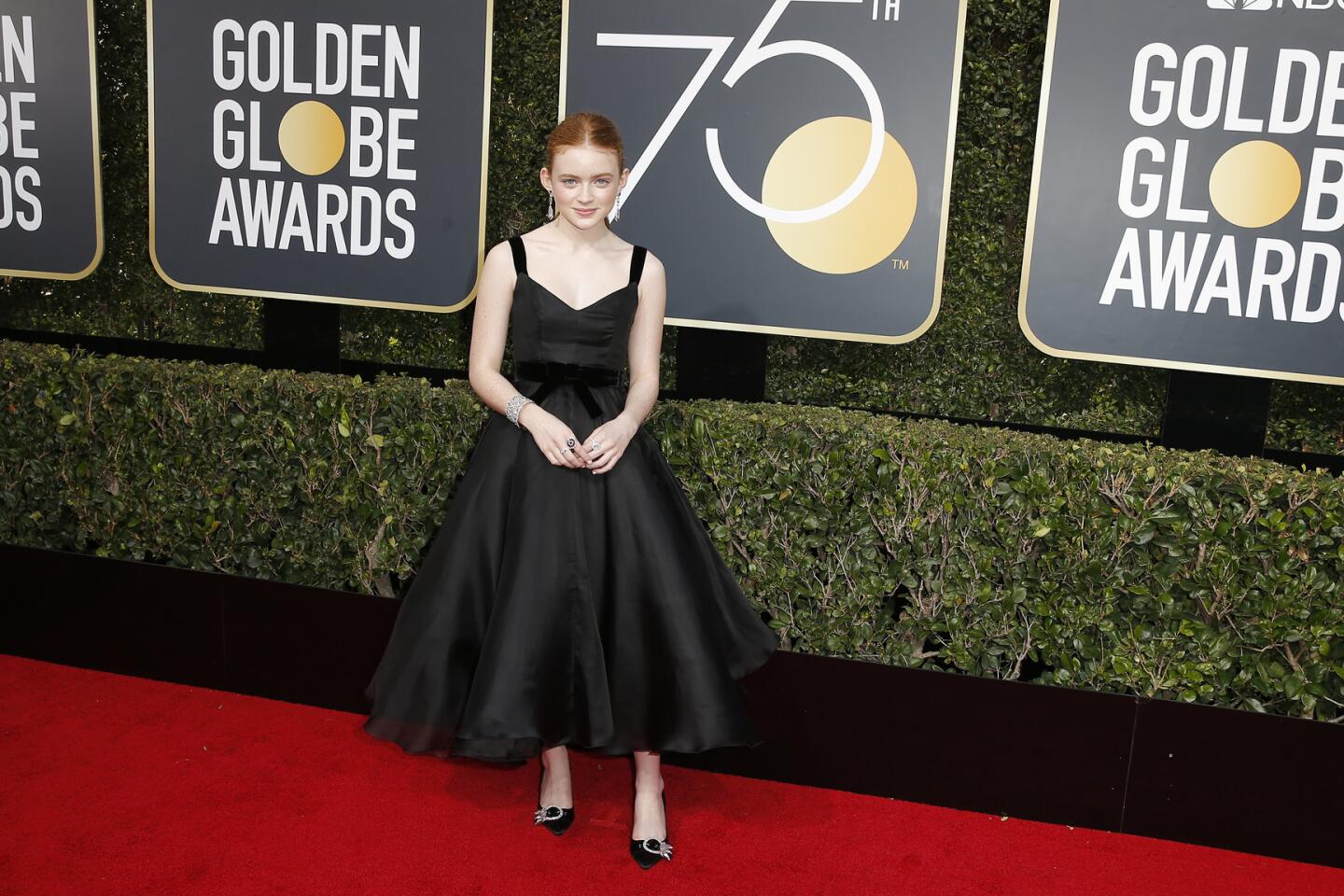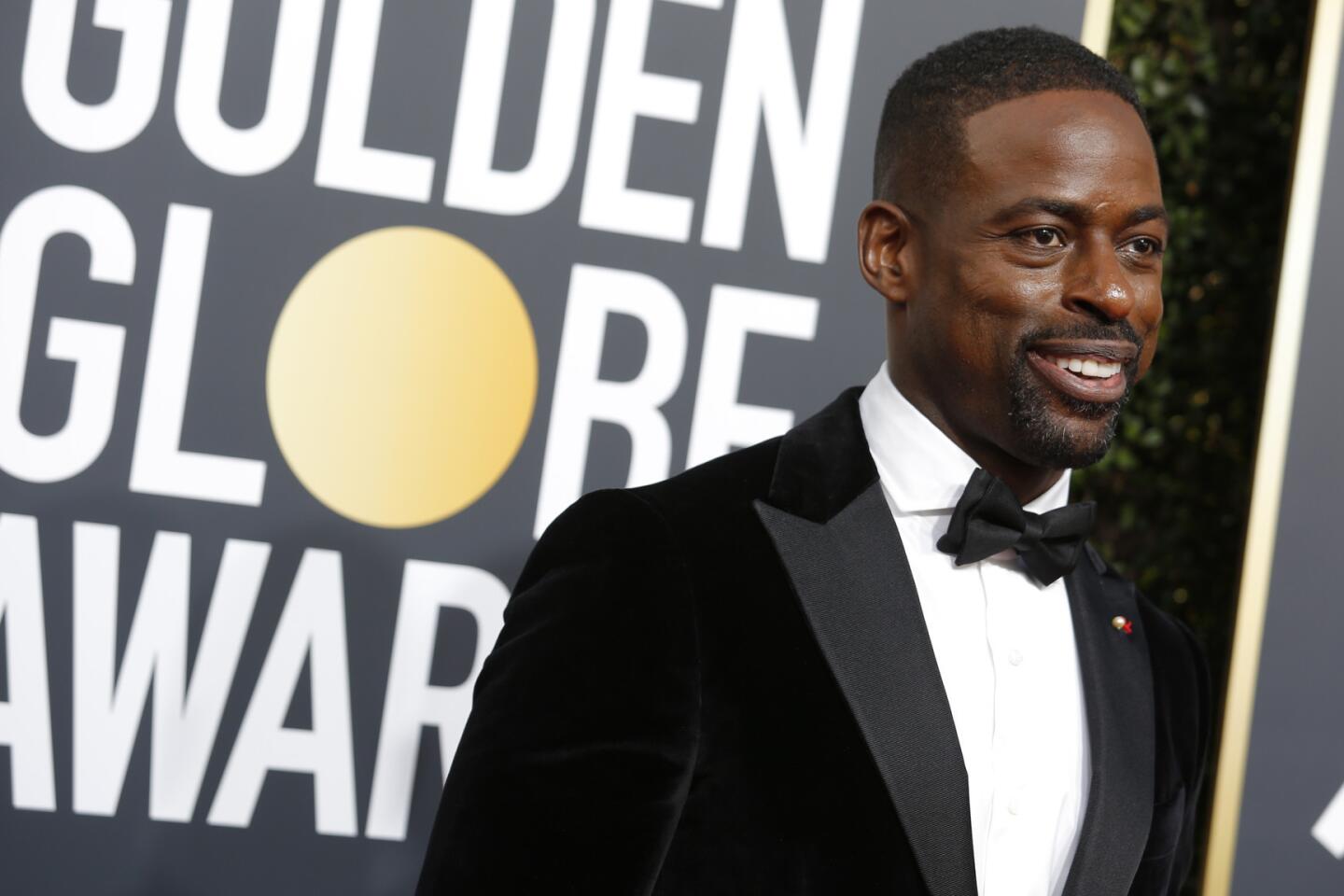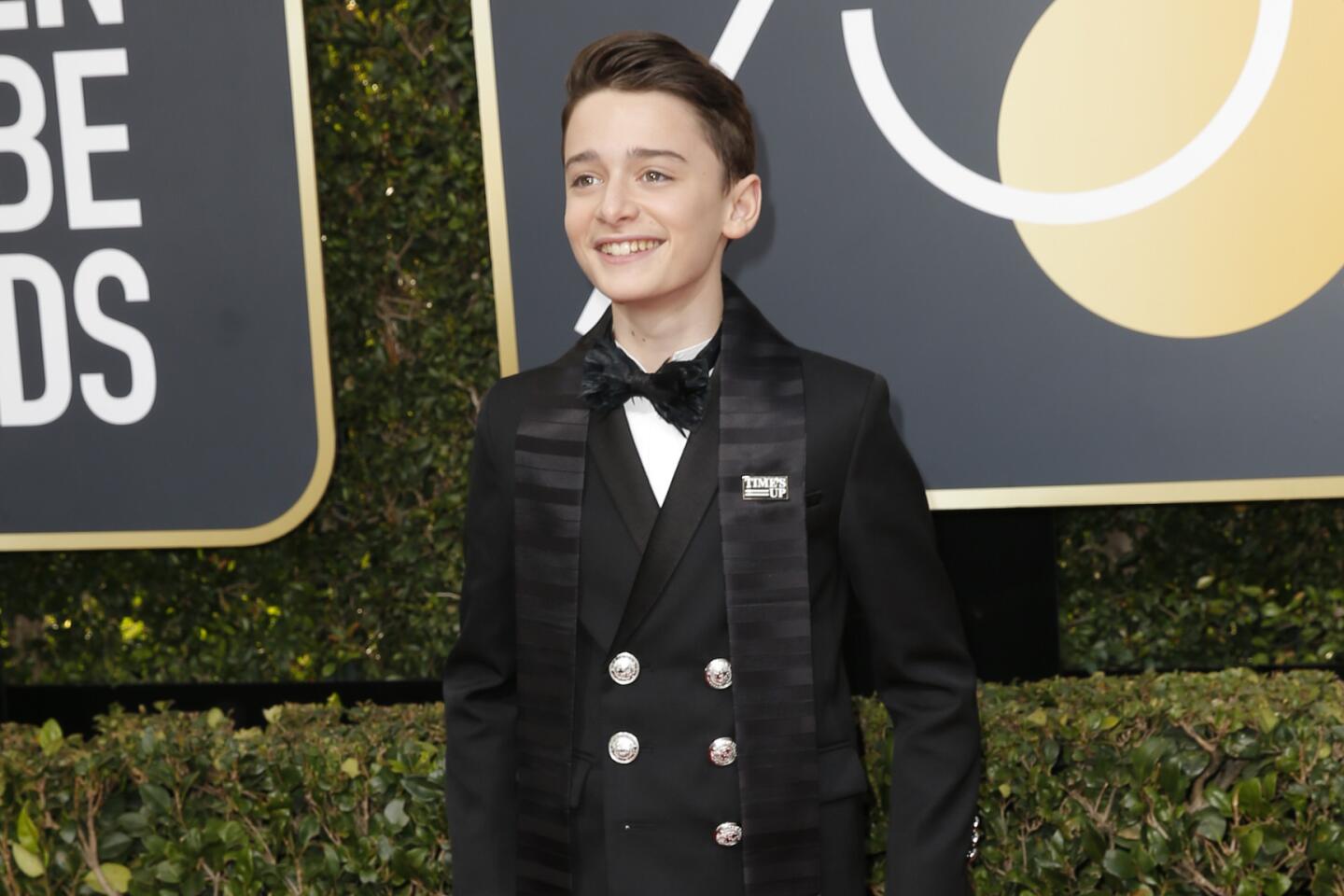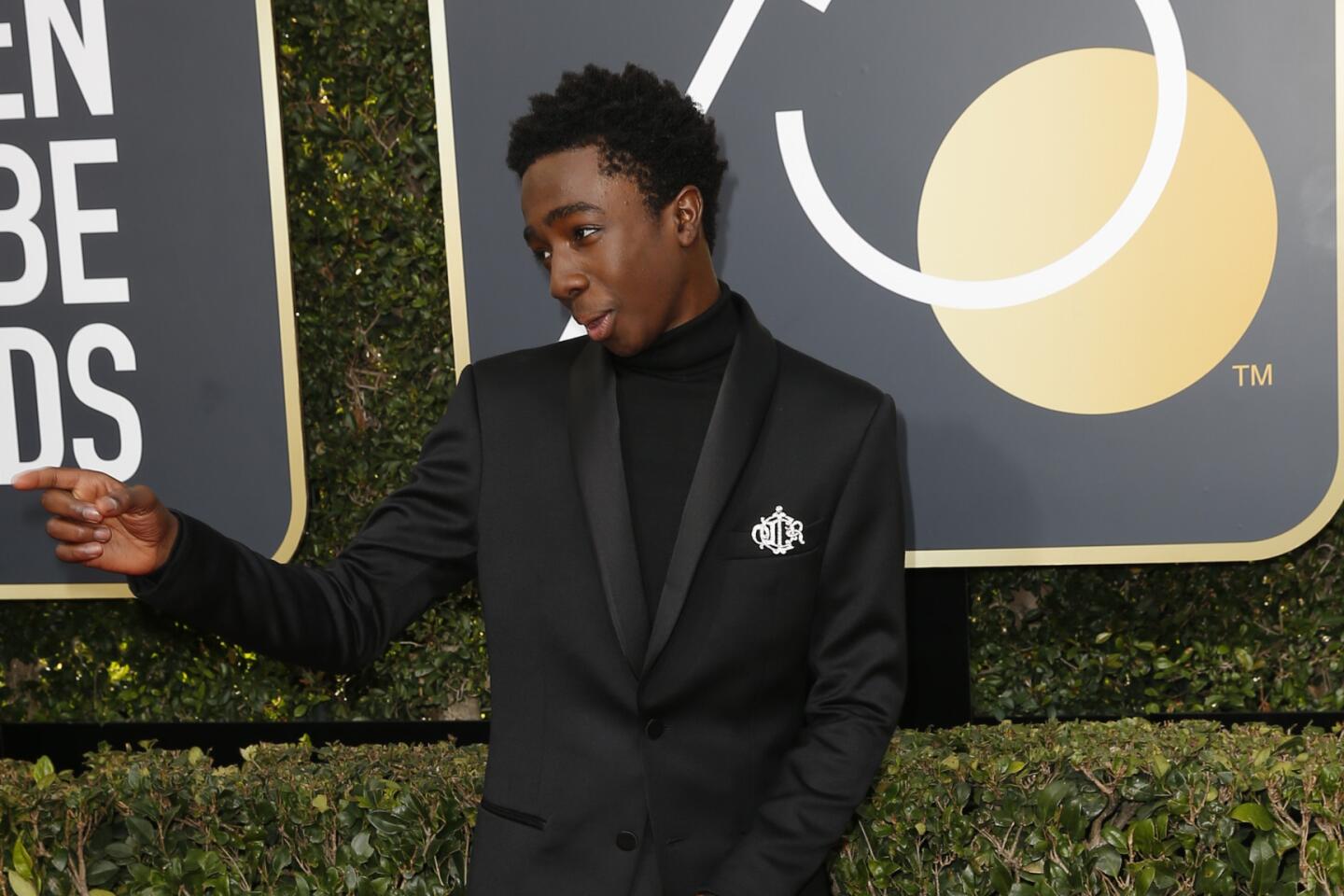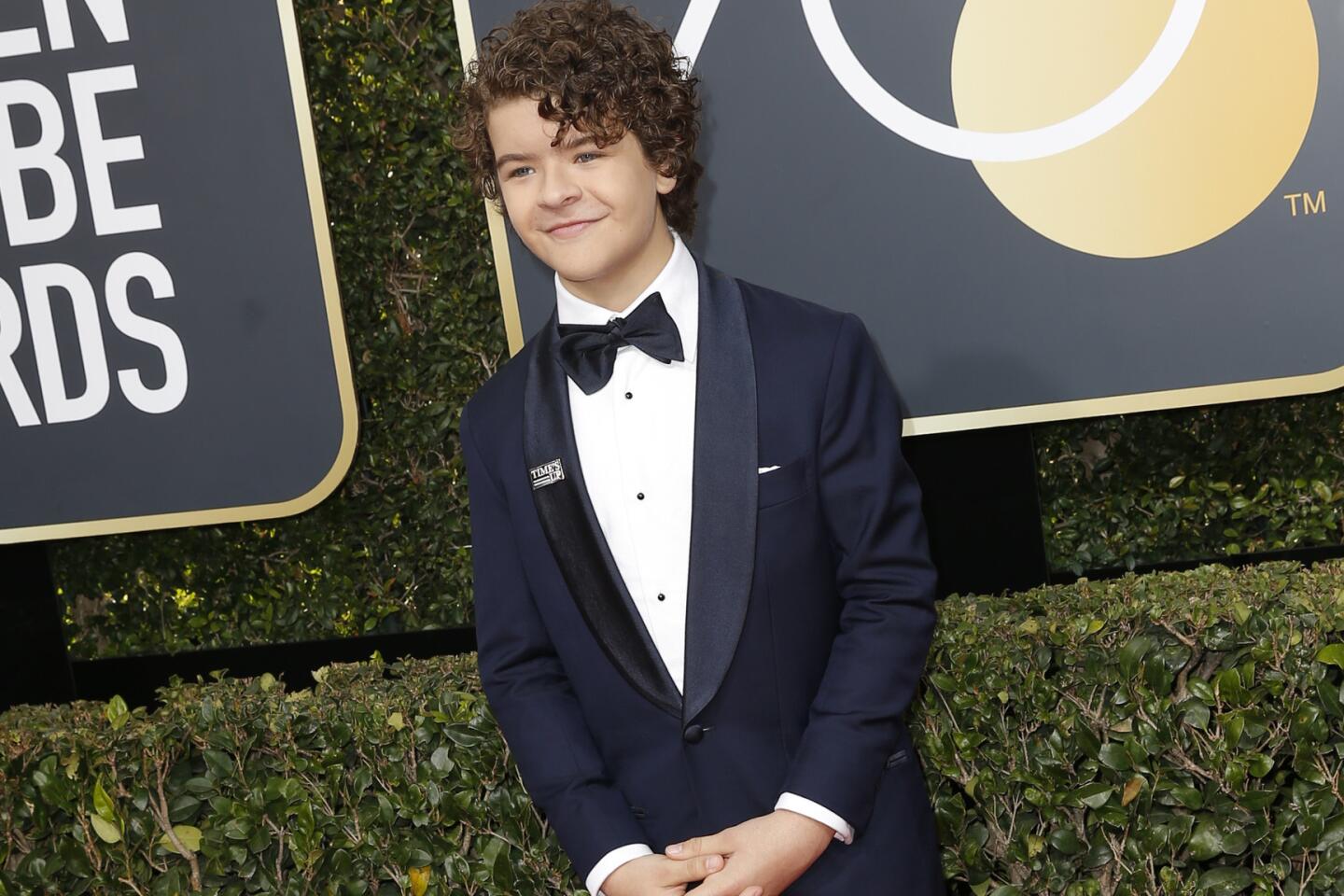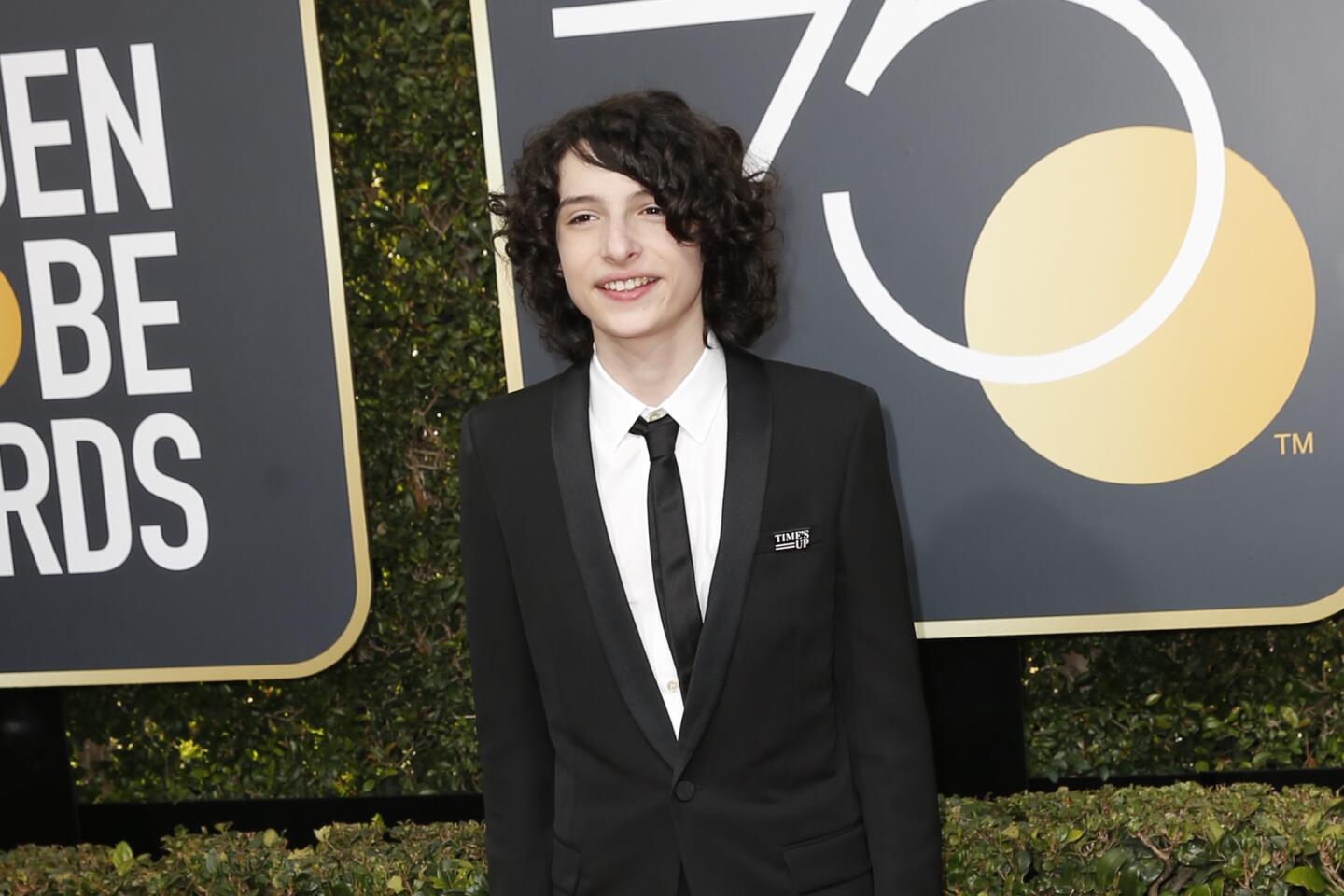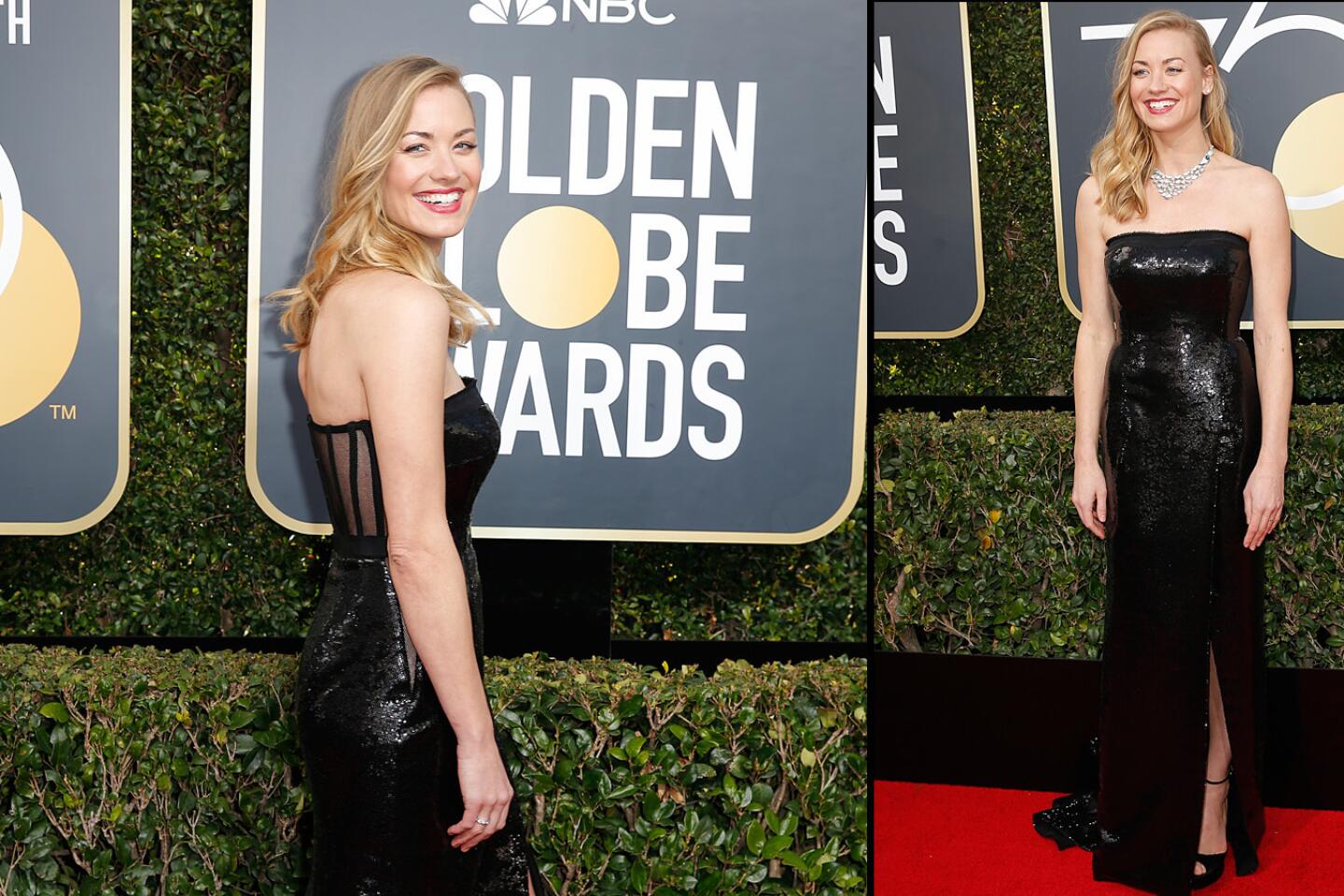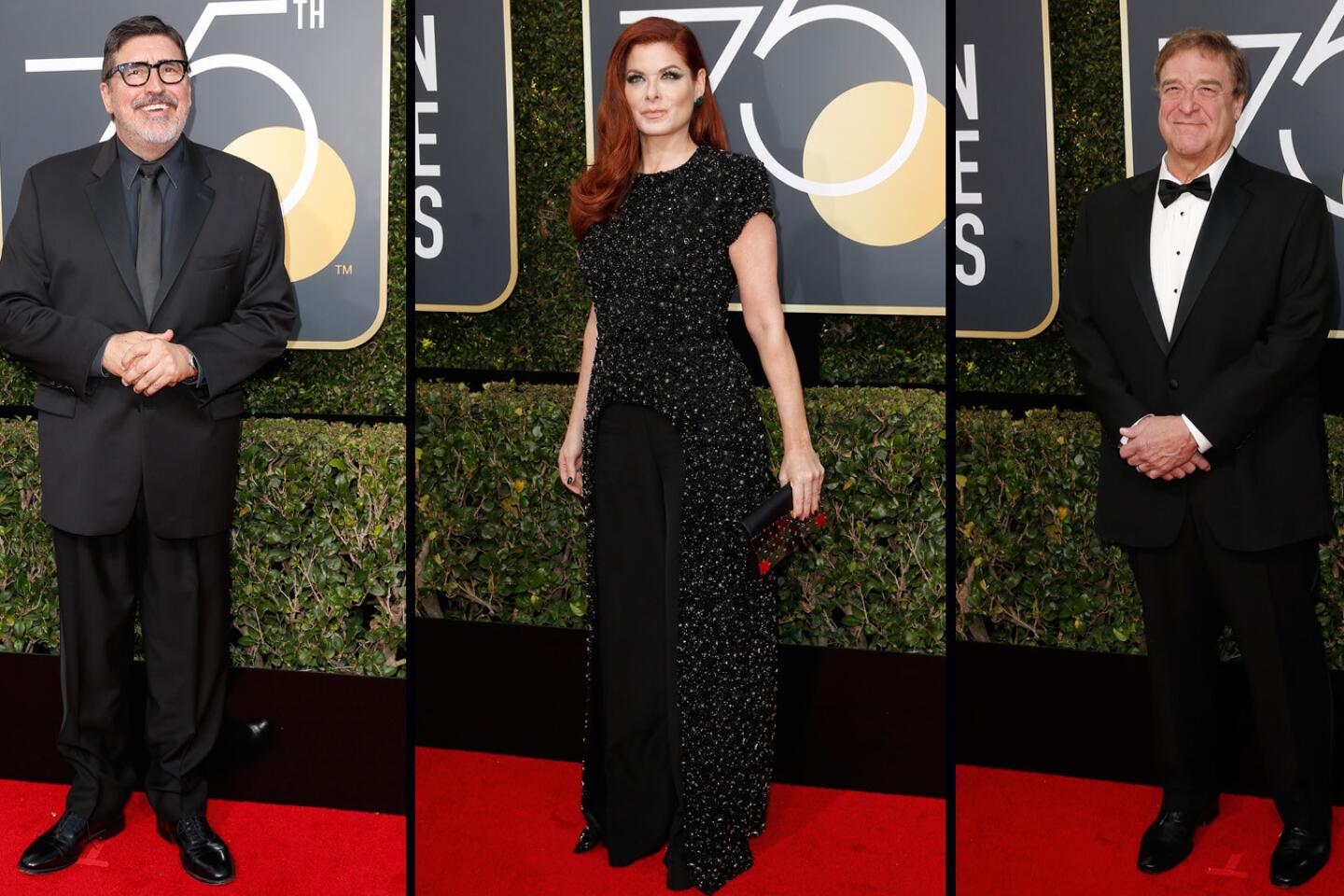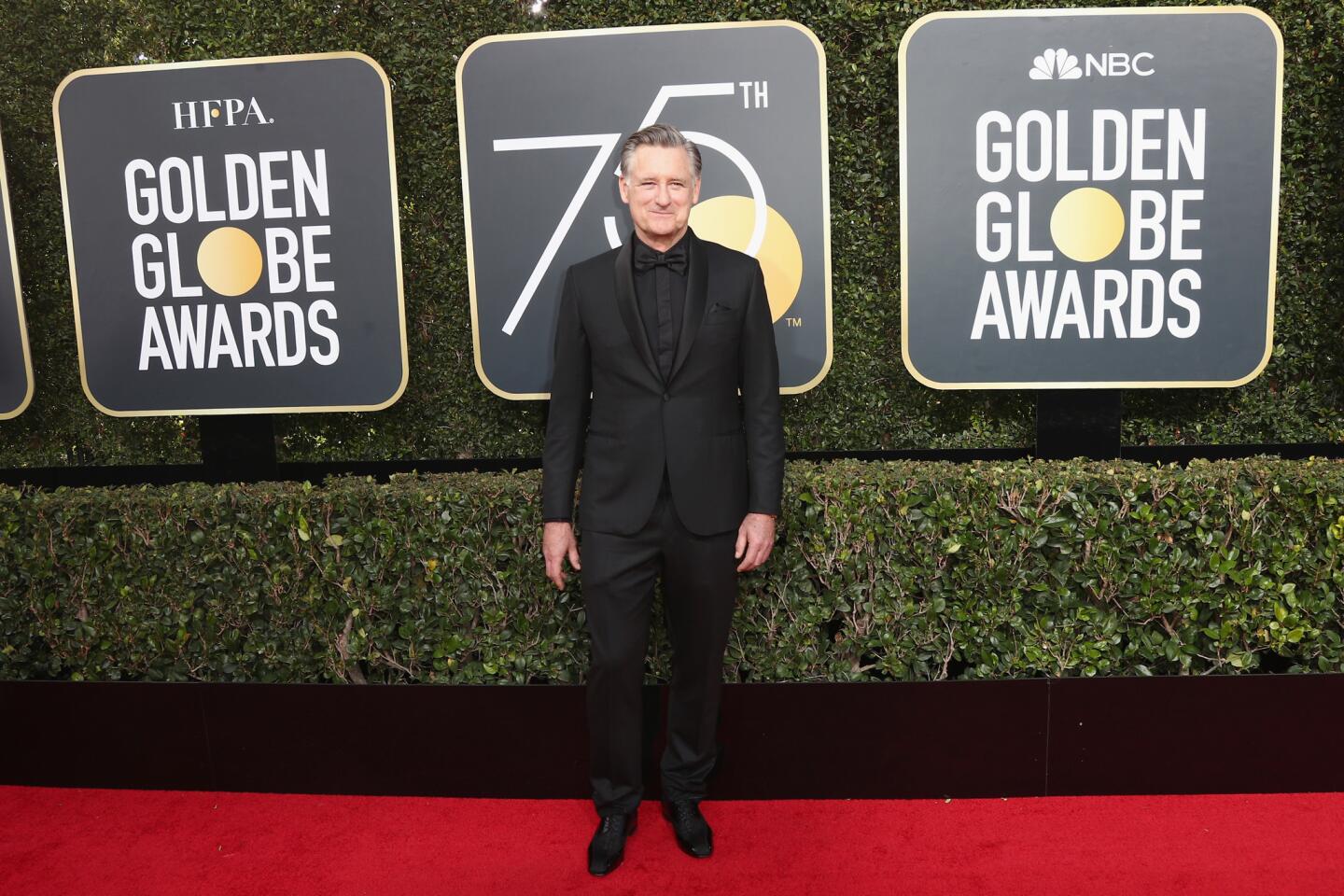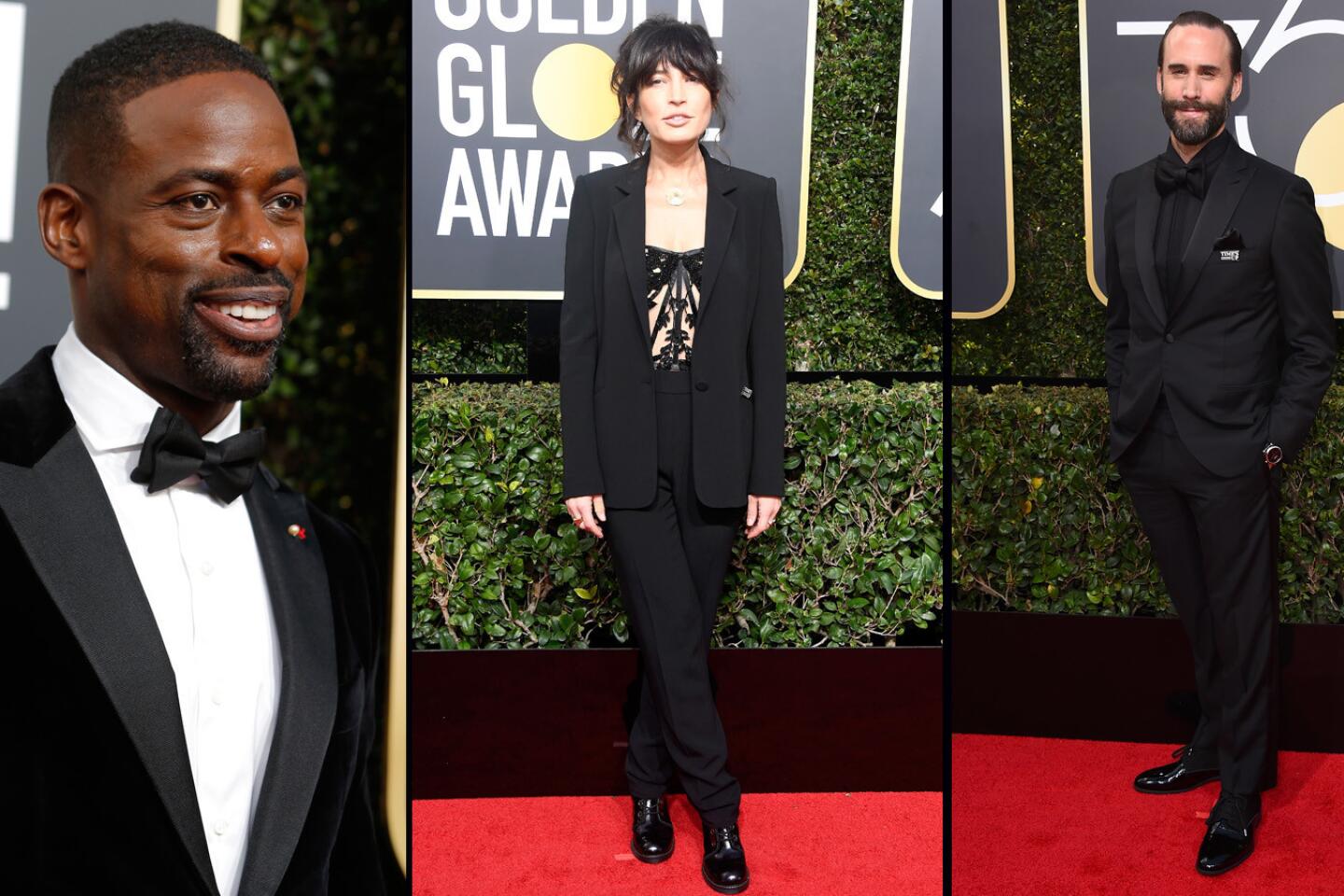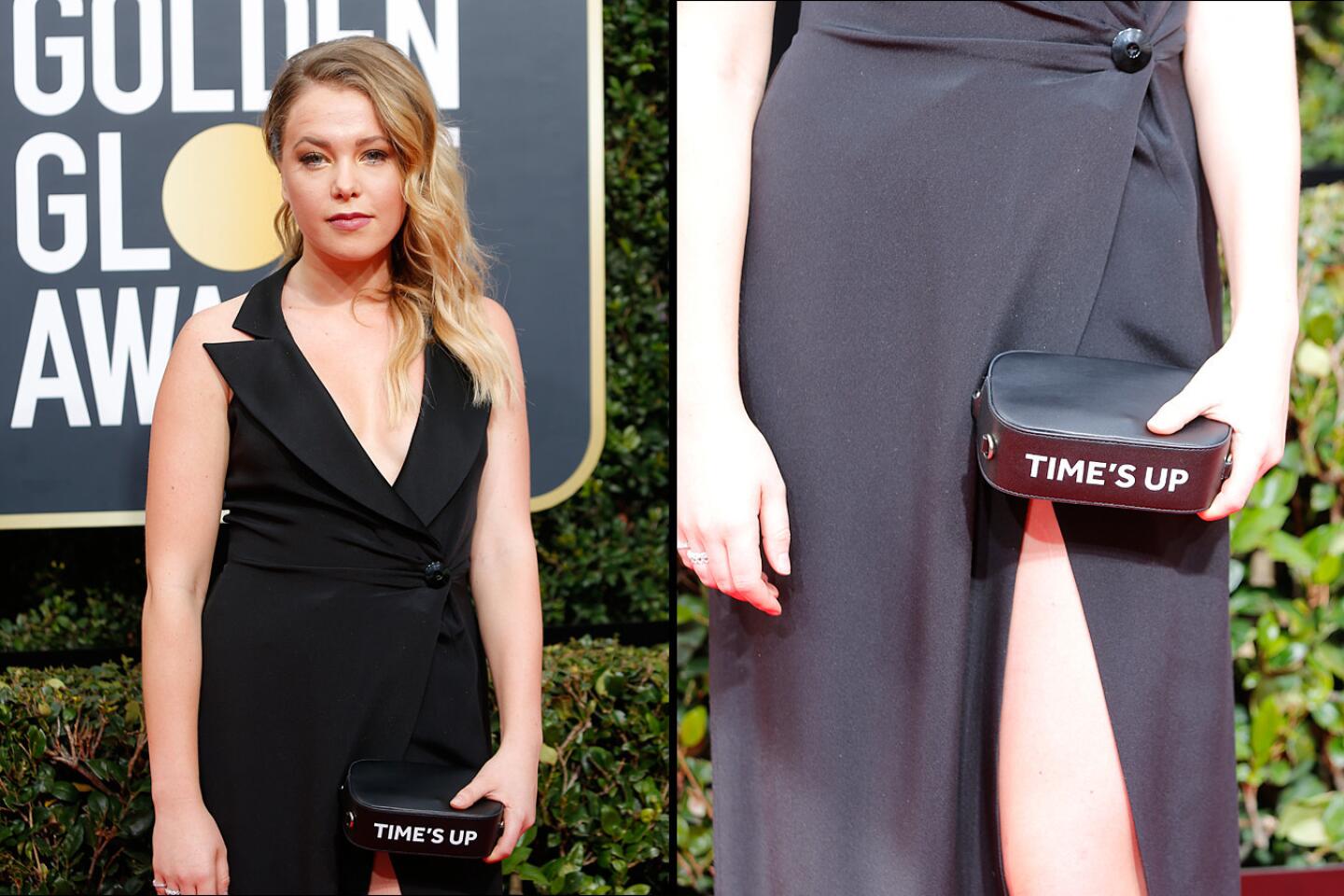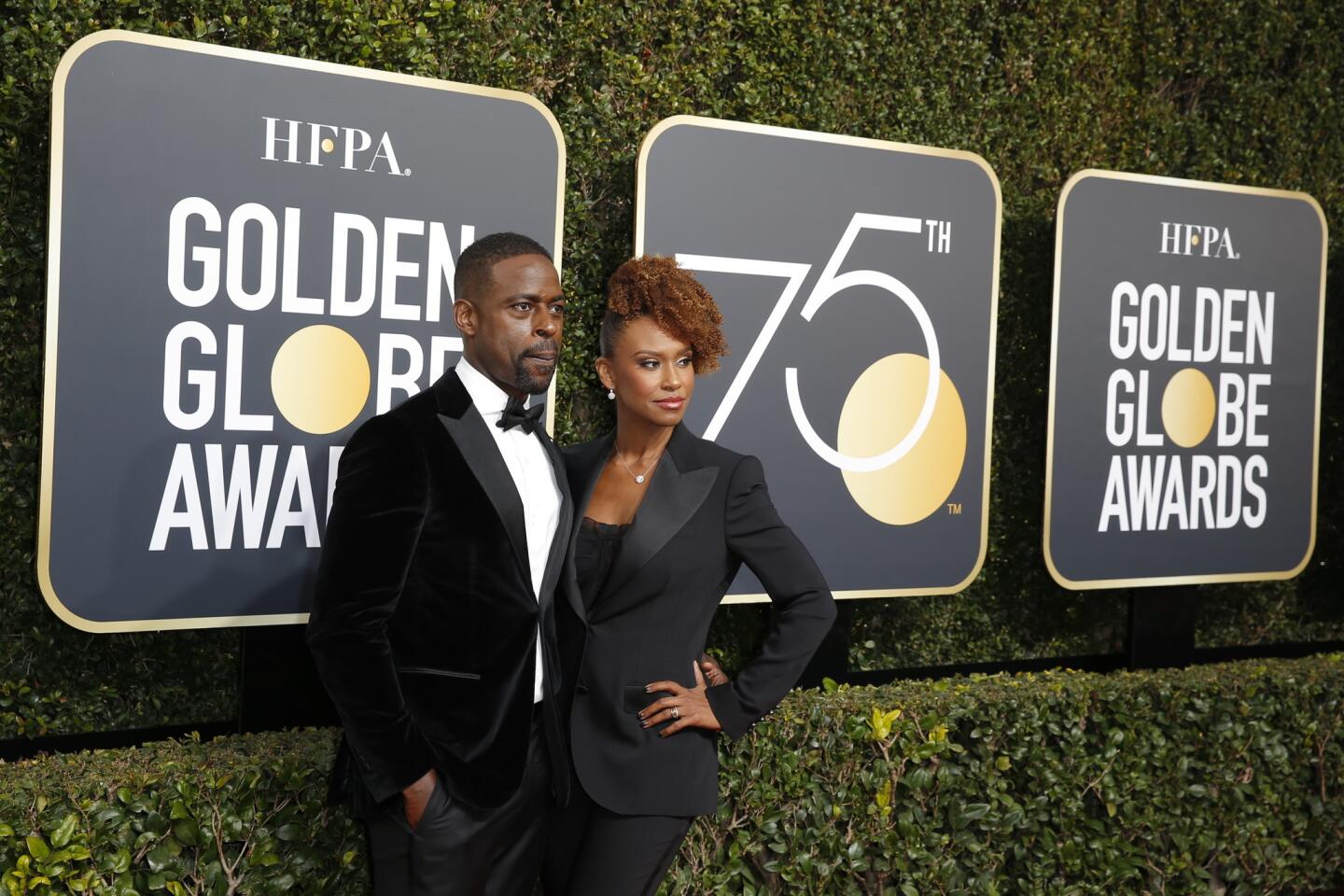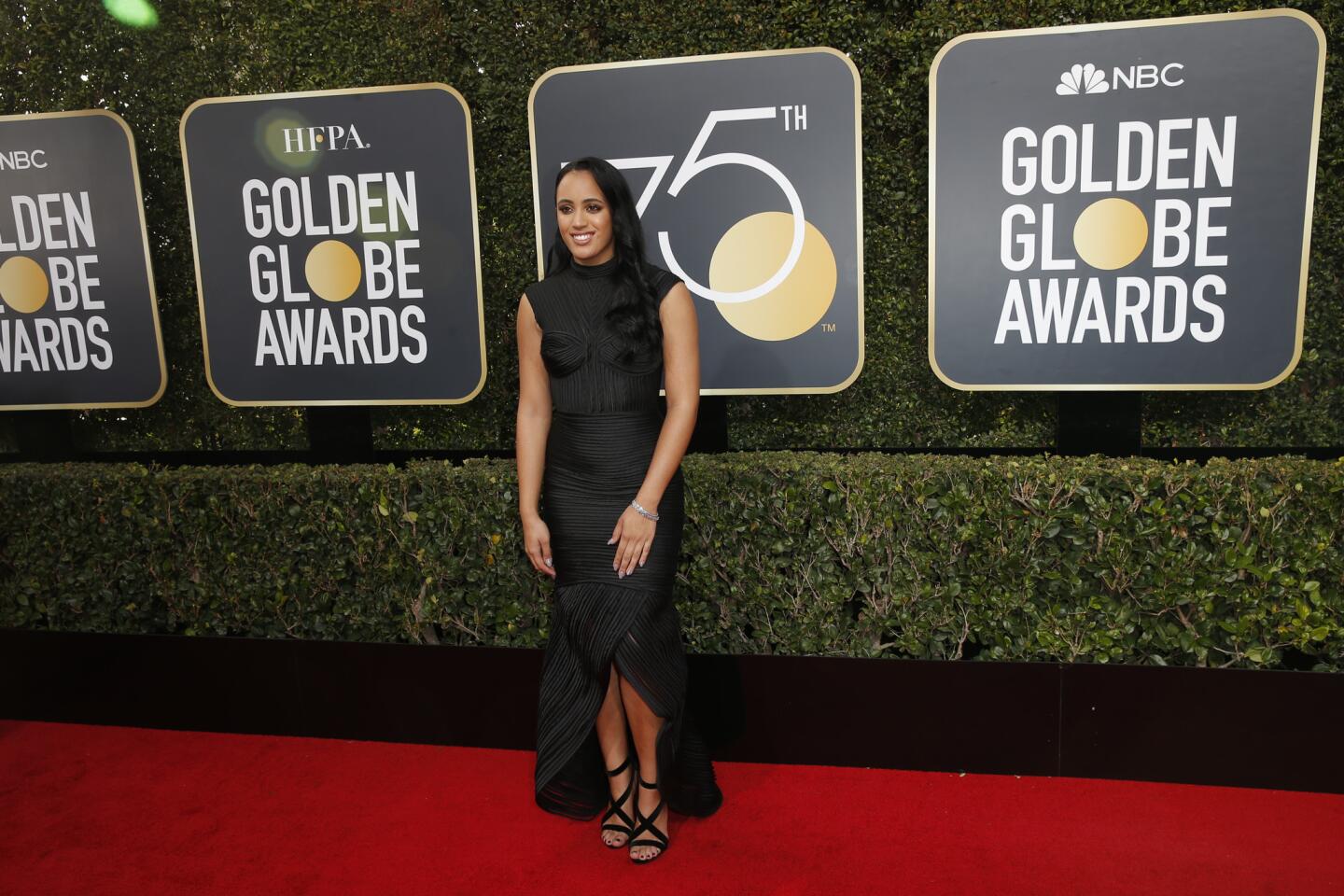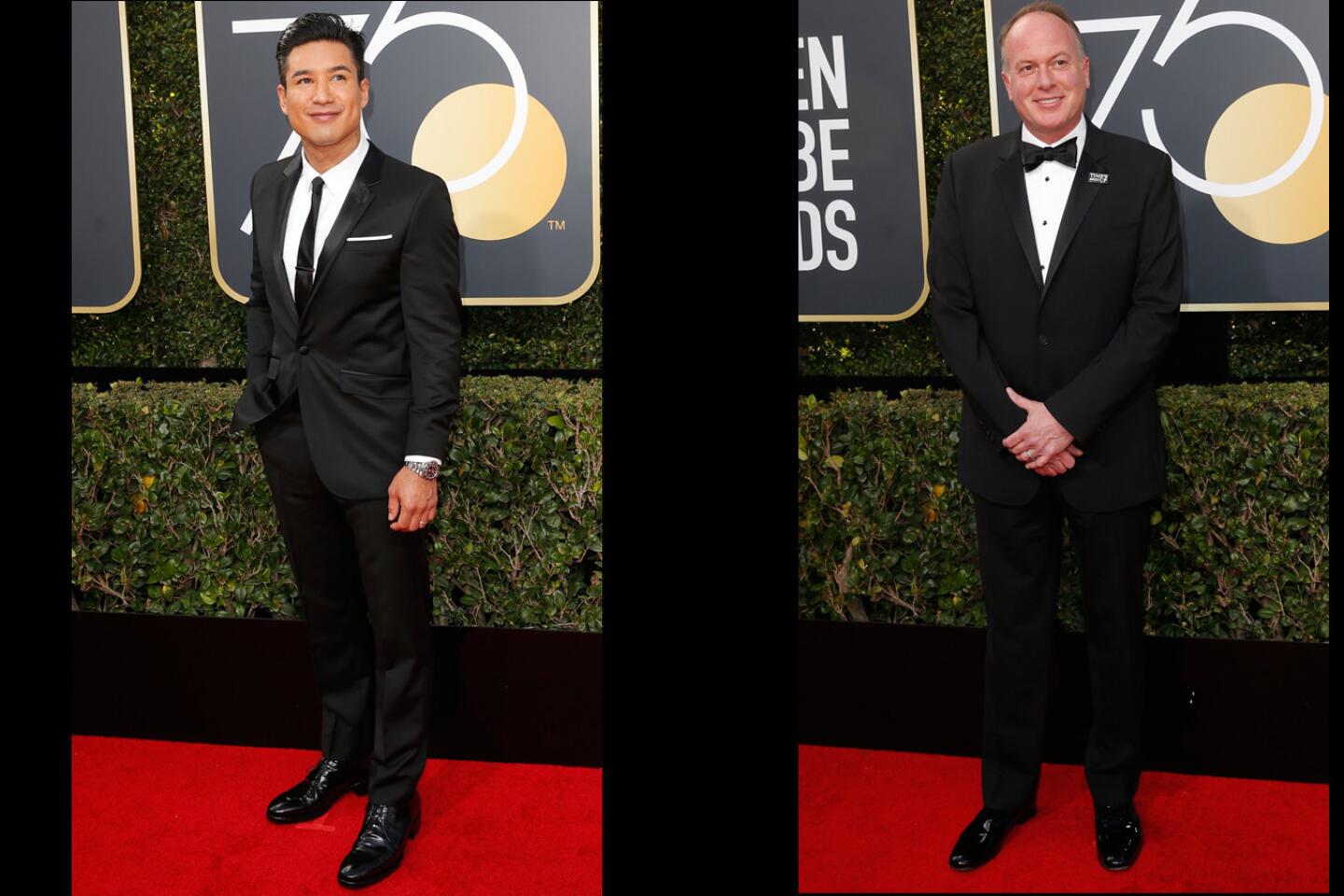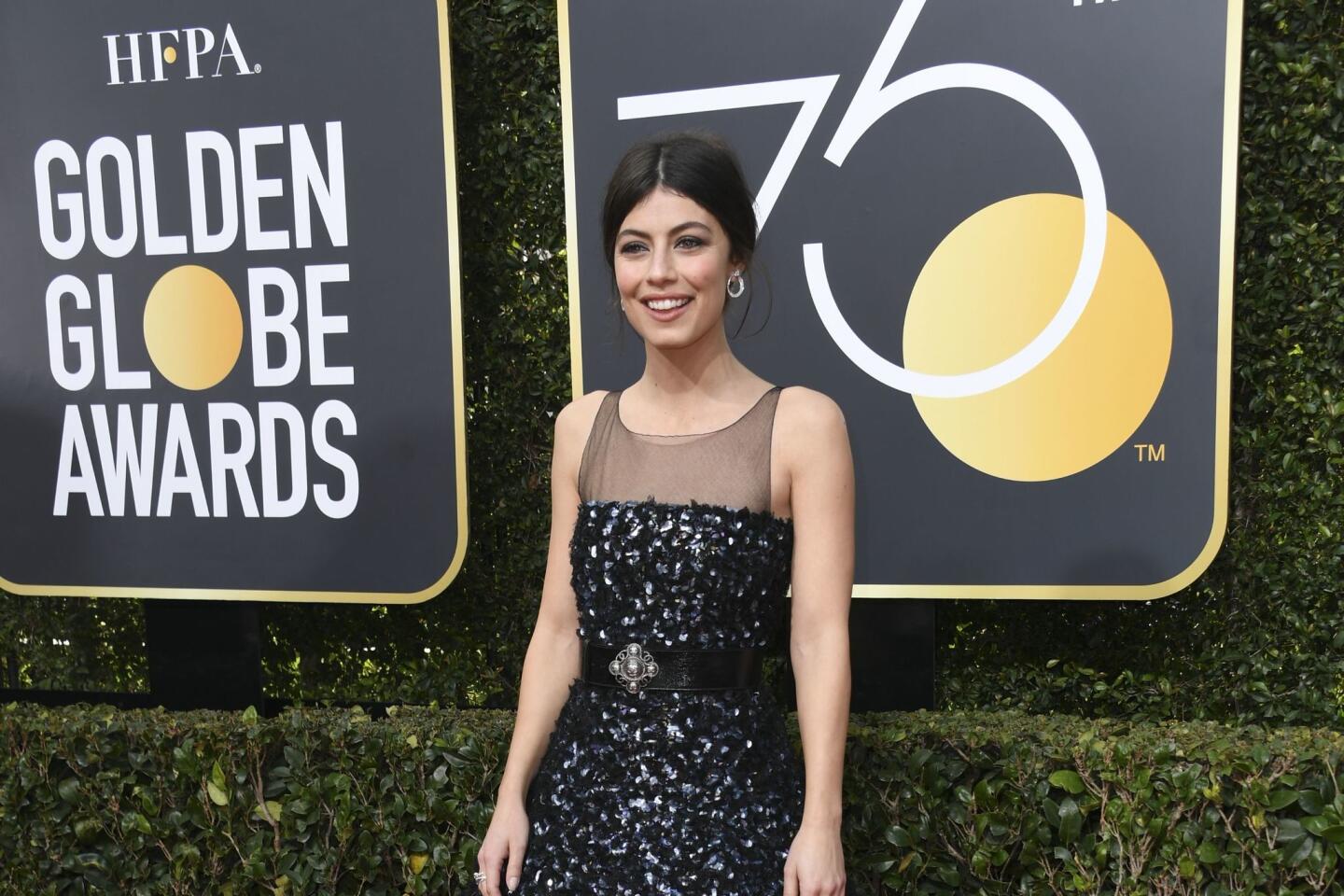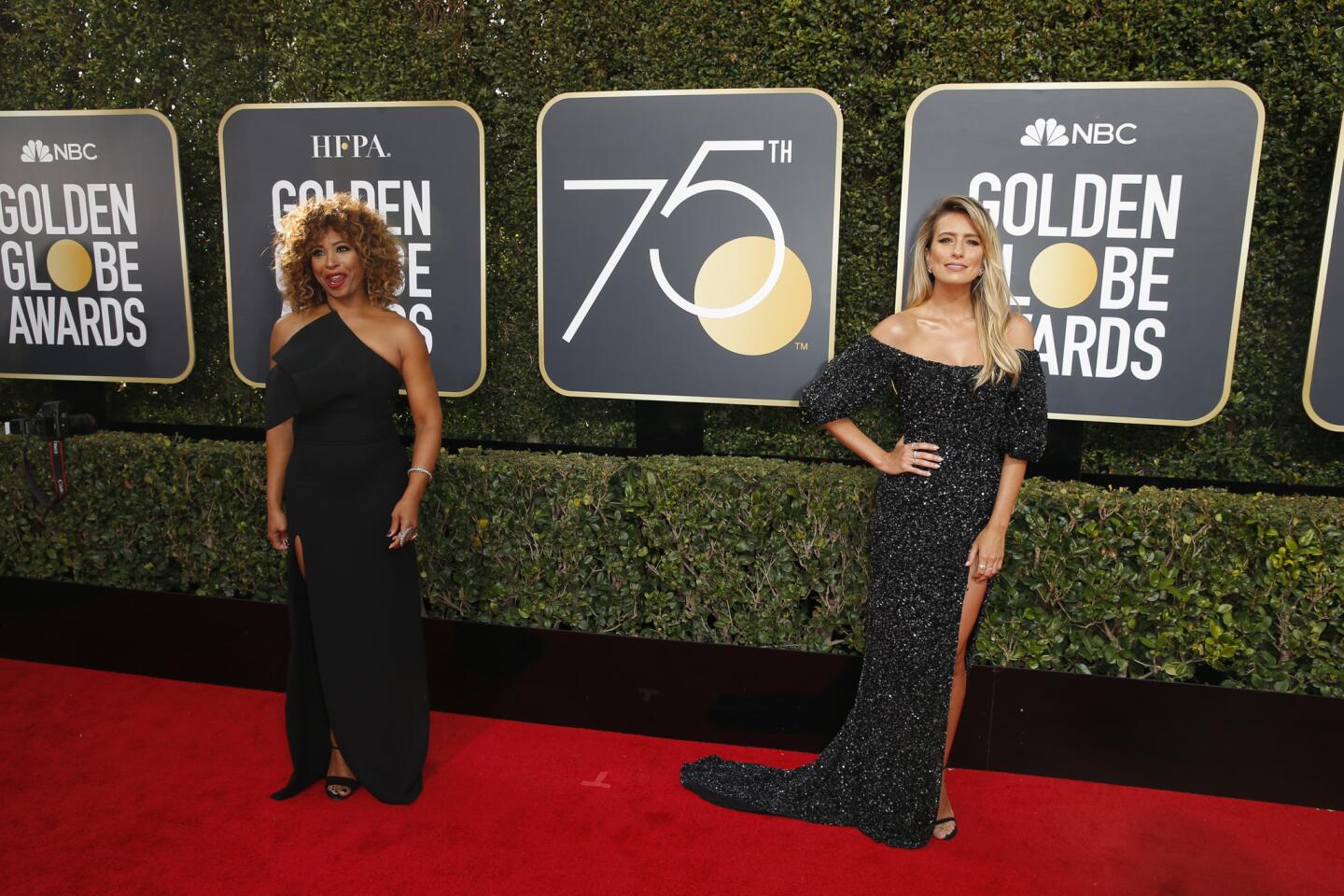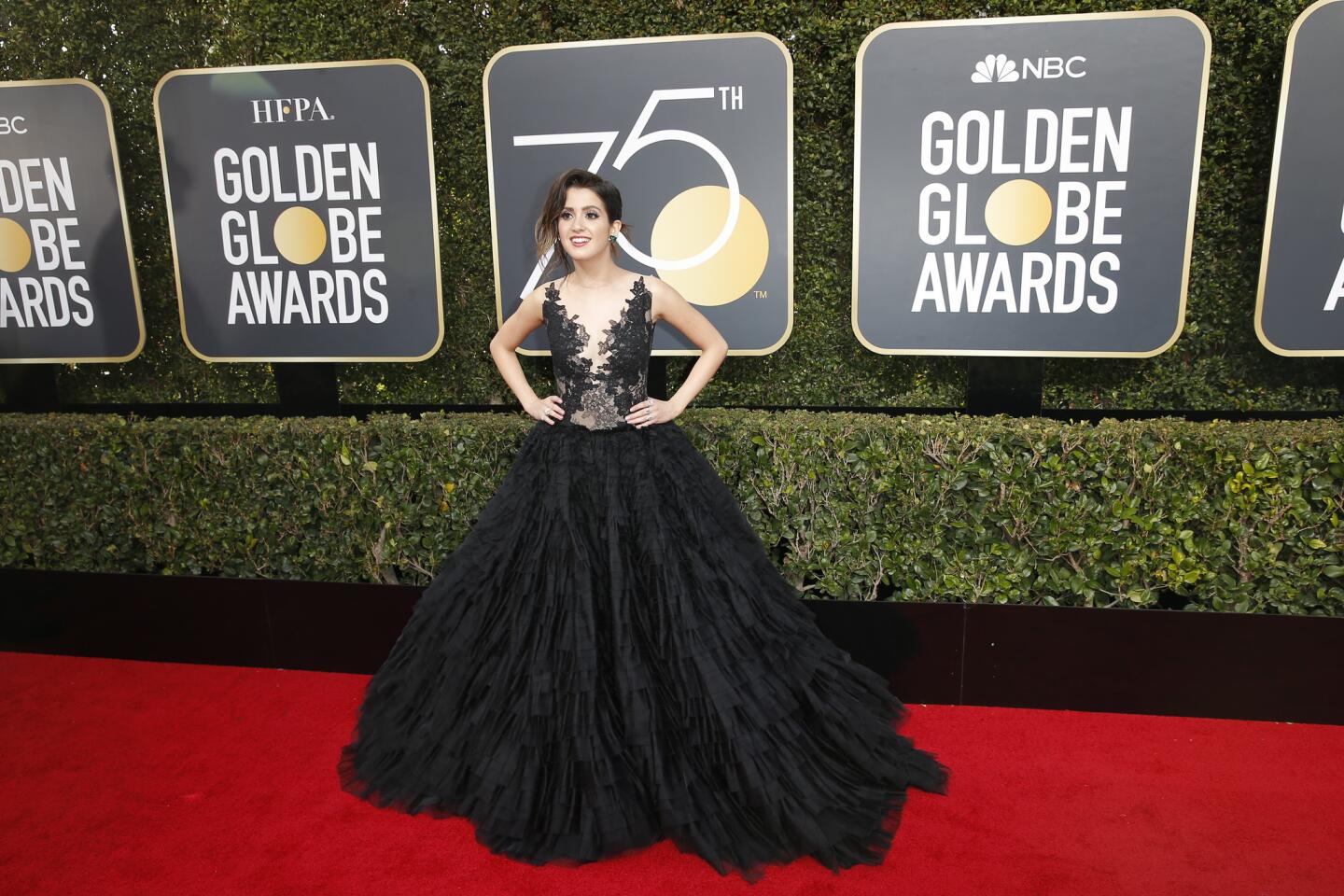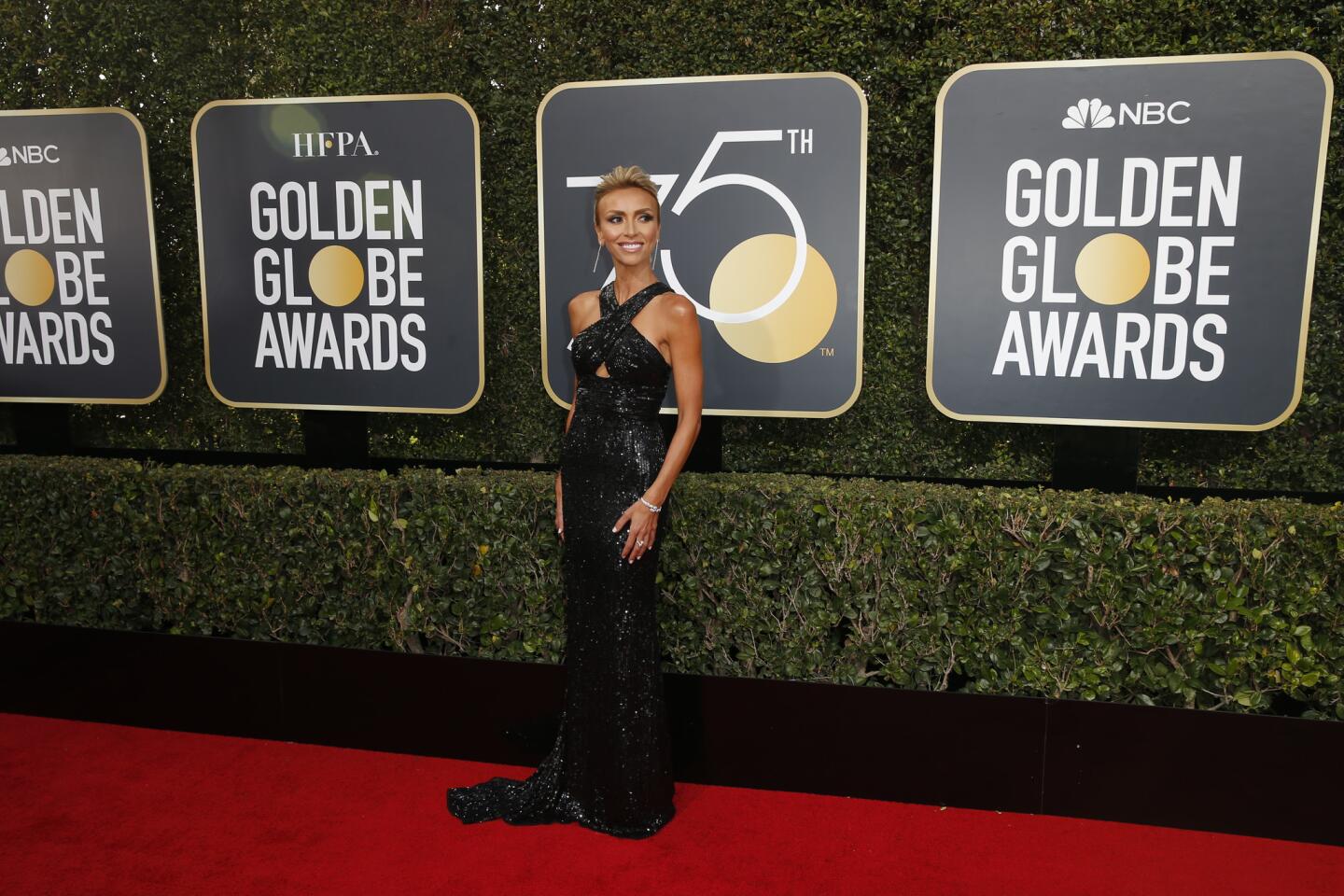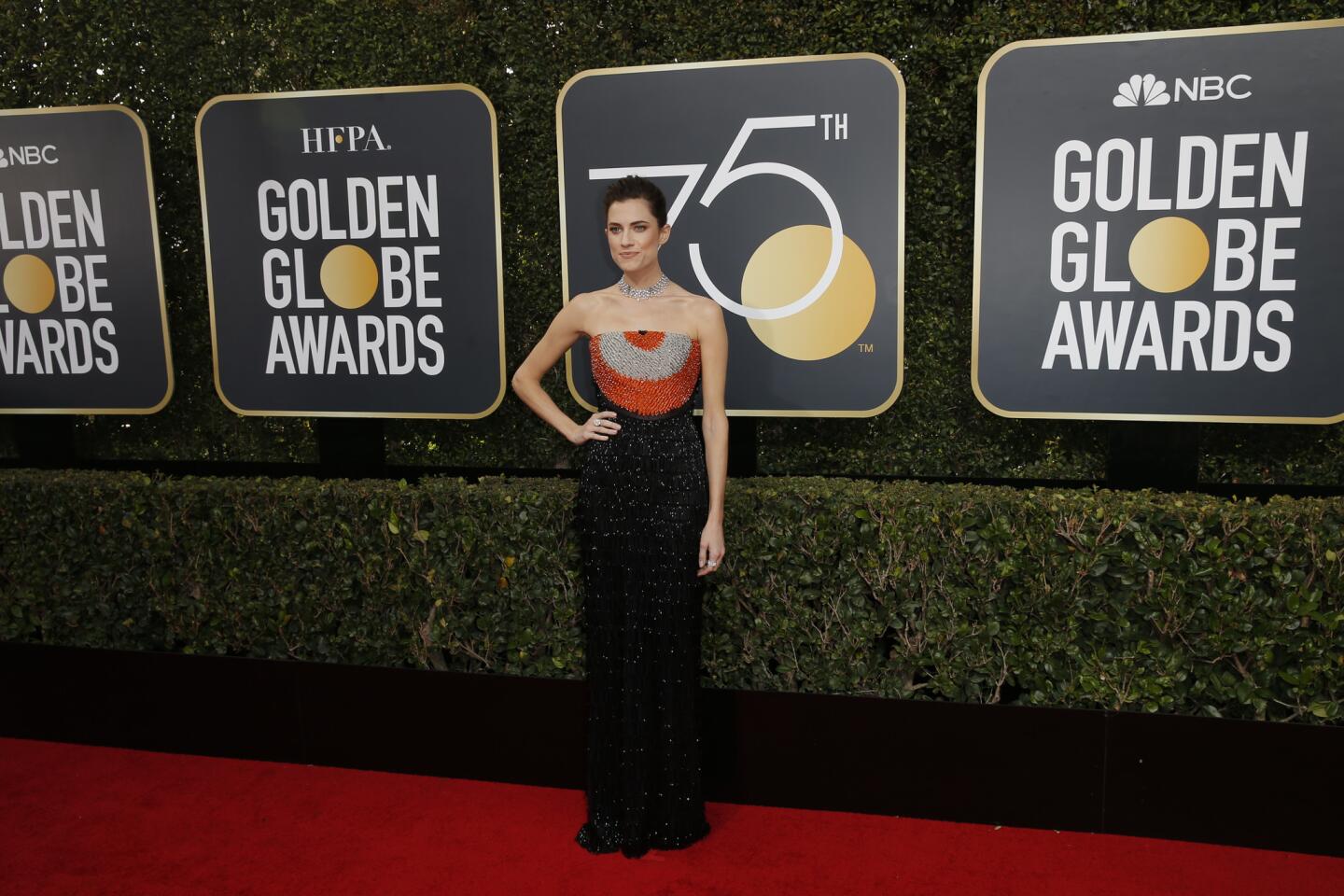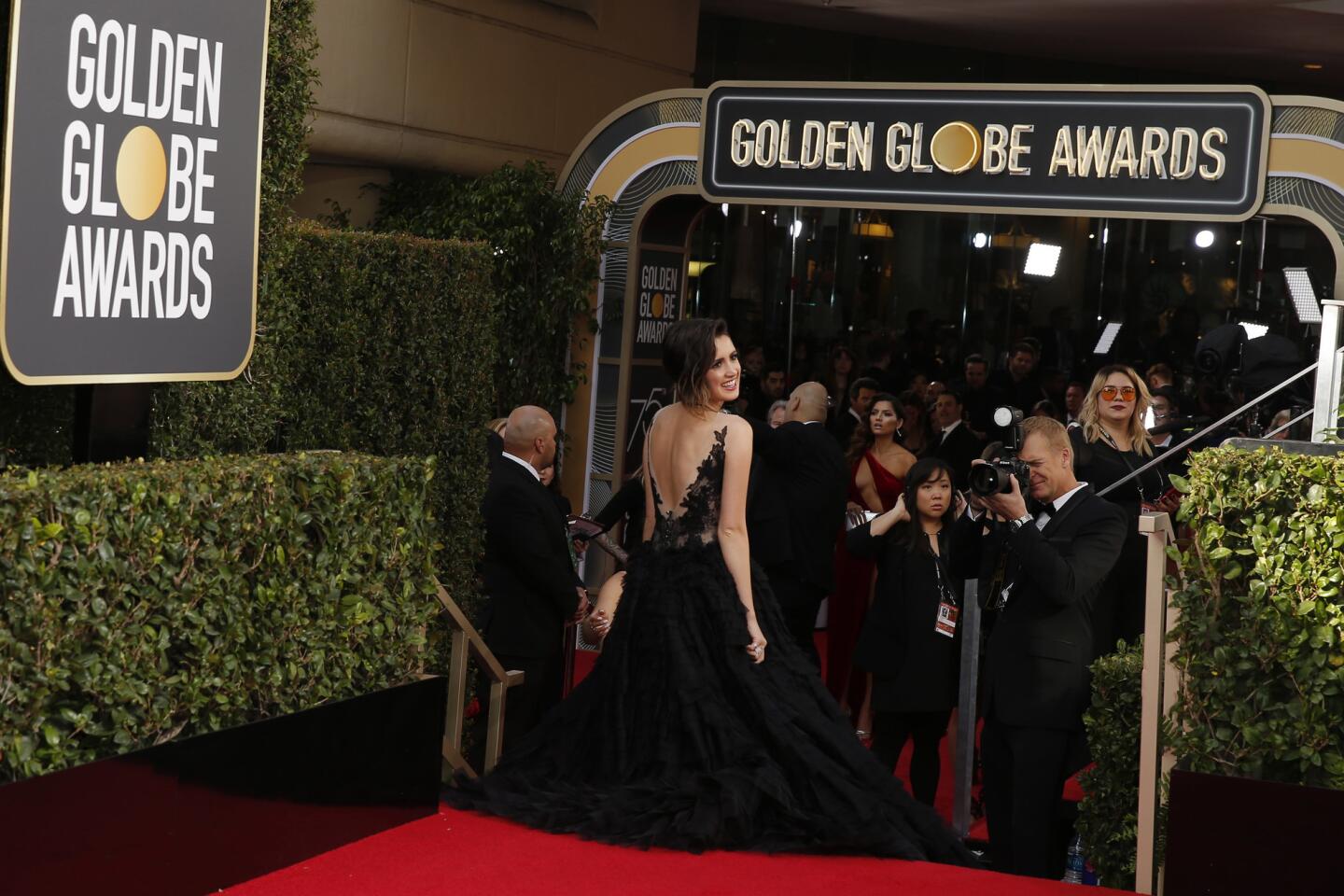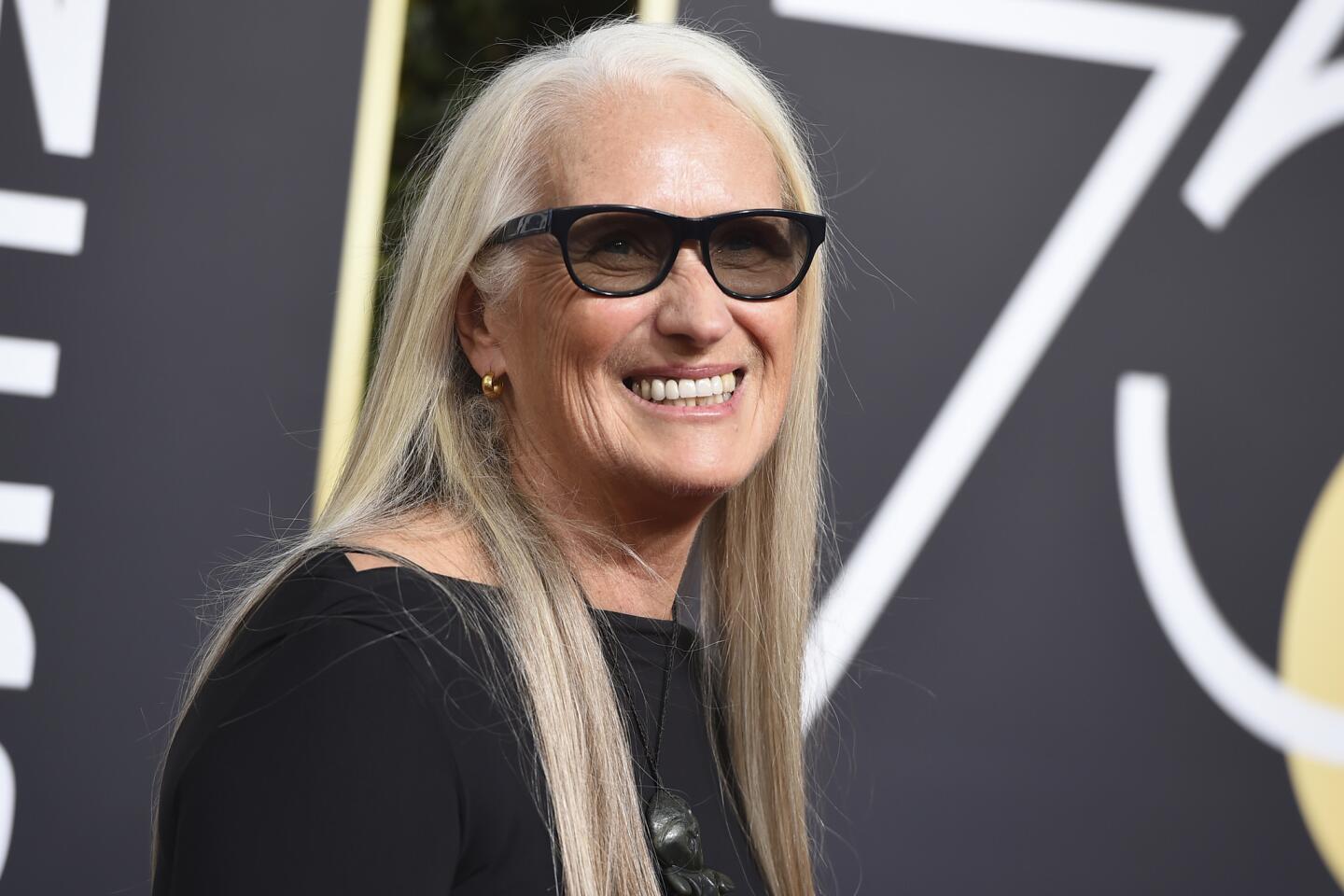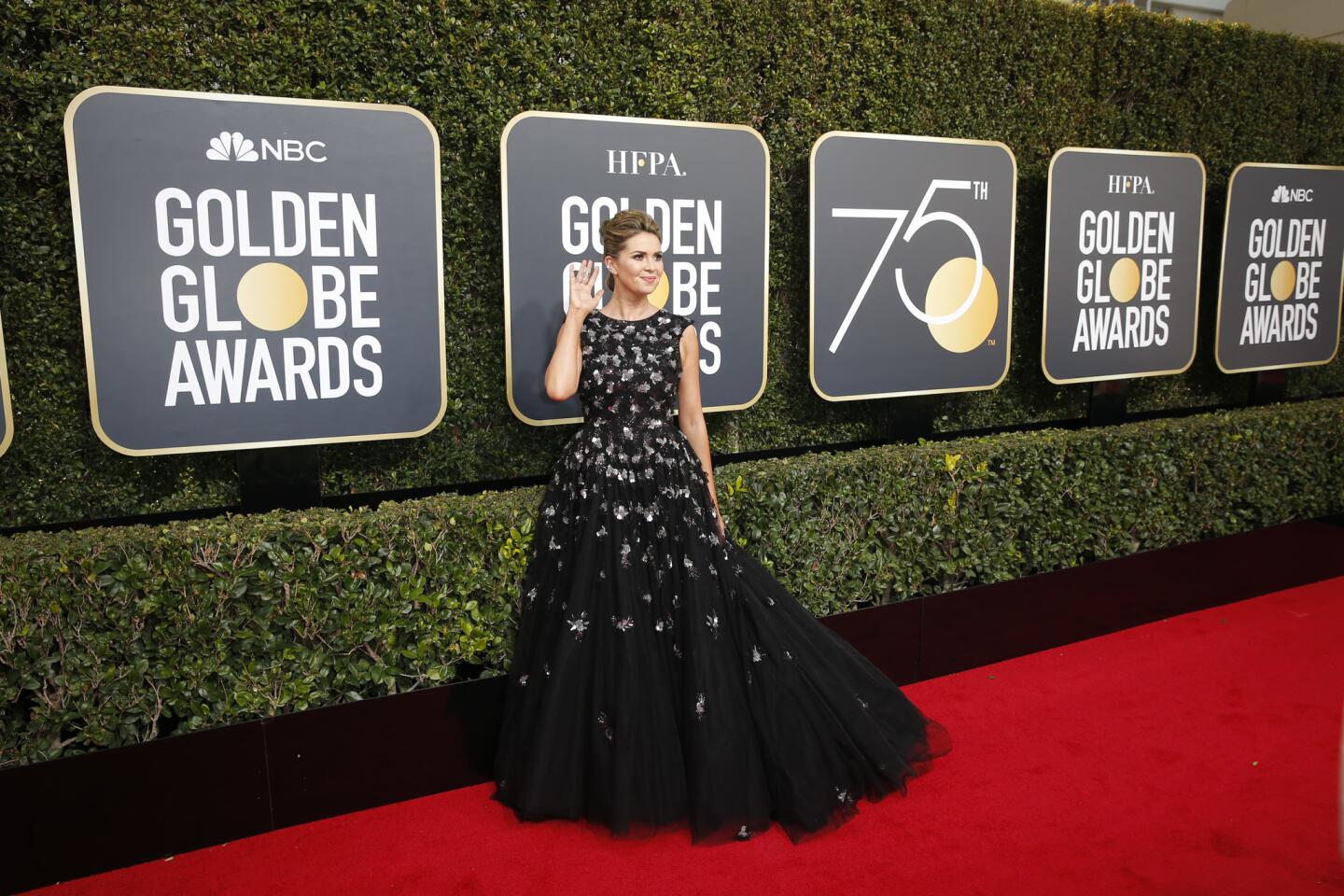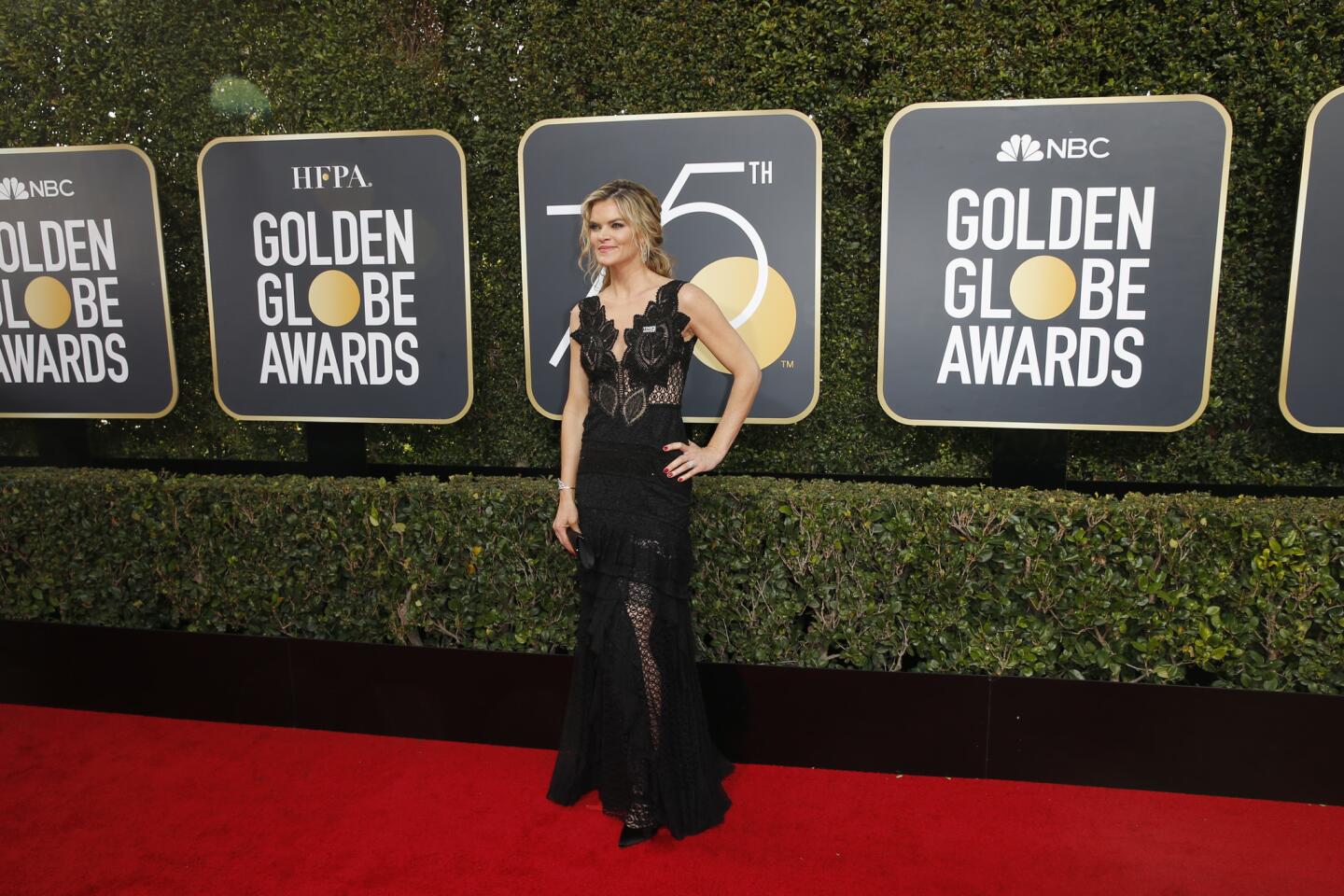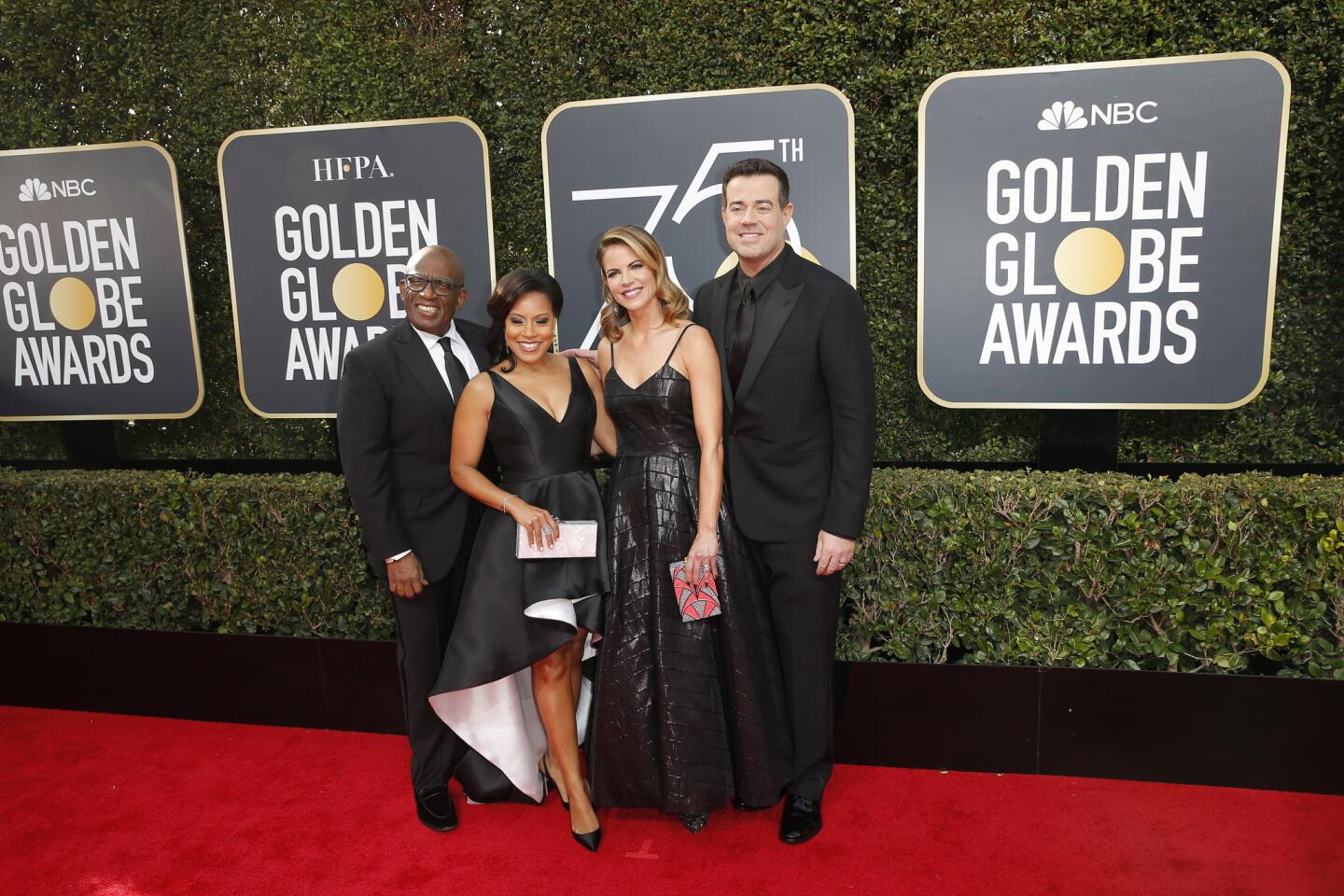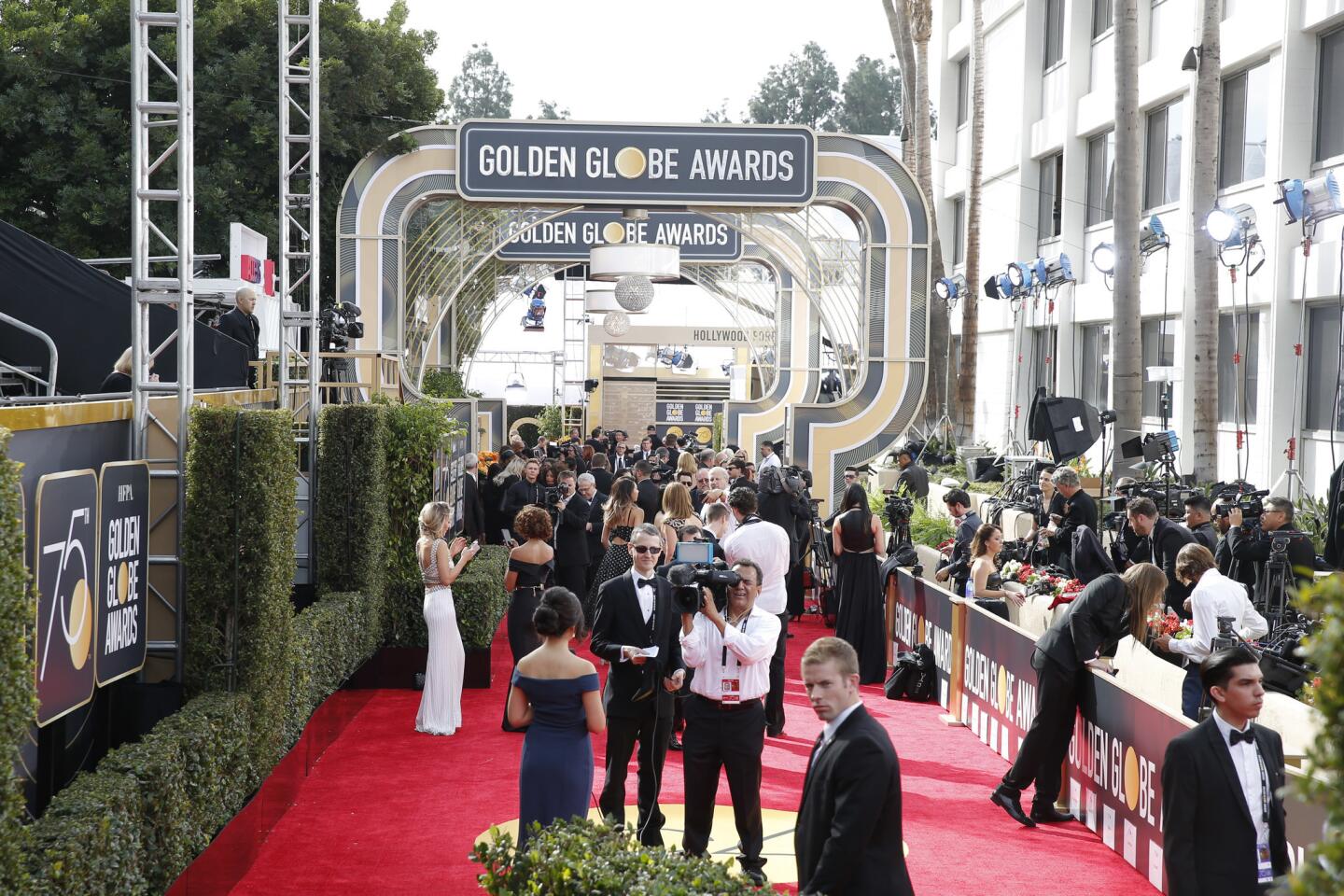Commentary: Oprah, Barbra, Elisabeth, Nicole: Women in black take over the Golden Globes
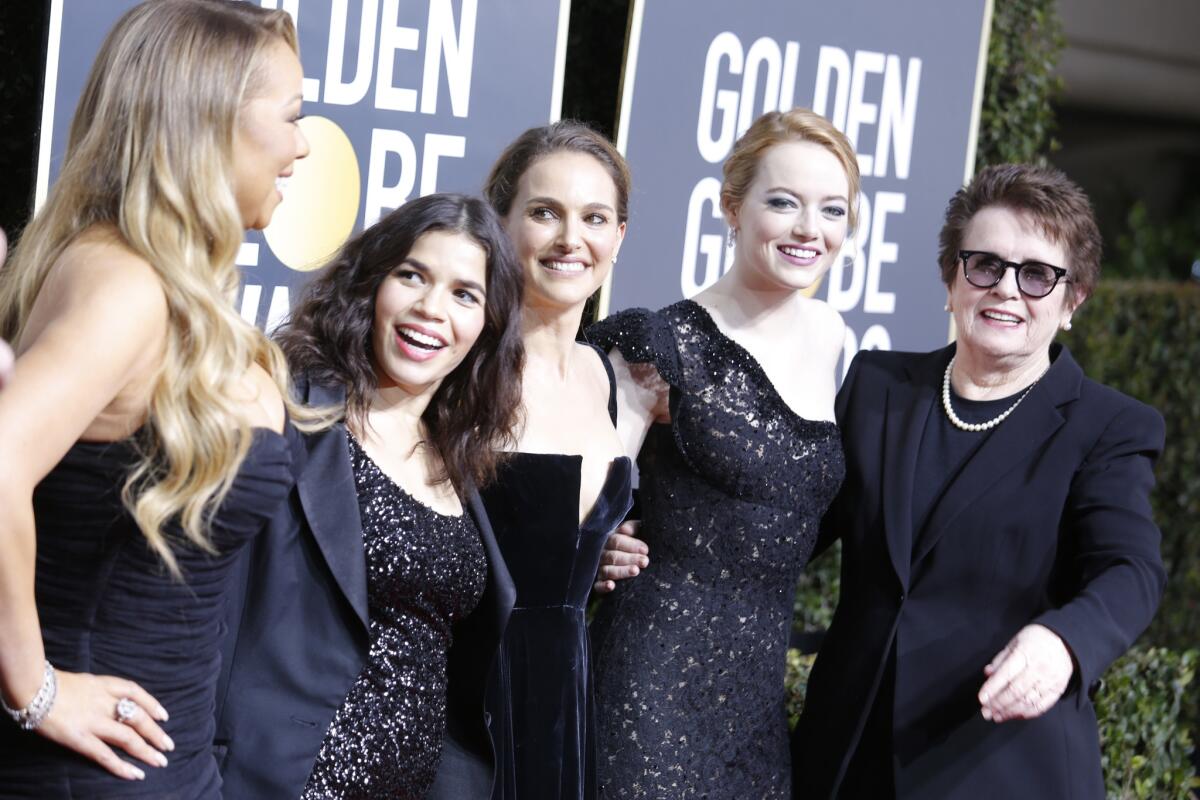
- Share via
Last January, women marched in cities across the U.S. in a show of solidarity against the patriarchy. A year later, the protest came to the red carpet. Sunday night at the 75th Golden Globe Awards, hundreds of women, and men, chose to speak about gender parity and sexual harassment instead of their designers. And instead of pink, they wore black.
Days before the ceremony, 300 powerful women in Hollywood announced the Time’s Up campaign, an initiative to draw attention to sexual harassment in the industry and beyond, and asked Globe attendees to wear black. Virtually all of them did, creating what Meryl Streep called “a thick black line” that wound its way up the red carpet and into the Beverly Hilton, where winner after winner thanked the power of women rather than the usual laundry list of power brokers.
GOLDEN GLOBES 2018: Full coverage | Winners | Red carpet photos
The evening hit a crescendo when, accepting the Cecil B. DeMille award, Oprah Winfrey brought the house down with a speech calling for the day when no woman would have to say “Me too”; Barbra Streisand expressed shock that she was the only woman to receive a Globe for best director, and even Thelma and Louise (Geena Davis and Susan Sarandon) were resurrected to announce one of the evening’s top awards, perhaps to show how far the industry has, and has not, come since they drove off that cliff 27 years ago rather than return to their limited lives.
The watershed year, however, made for some fancy footwork on stage, especially for host Seth Meyers, who attempted to preserve some of the usual self-deprecating entertainment industry roast without shattering the walls of Hollywood’s fragile glass house. Less than a year after Meryl Streep lit up social media after she railed against the crude behavior of President-elect Trump, Hollywood has seen some of its most famous power players accused of sexual harassment and worse.
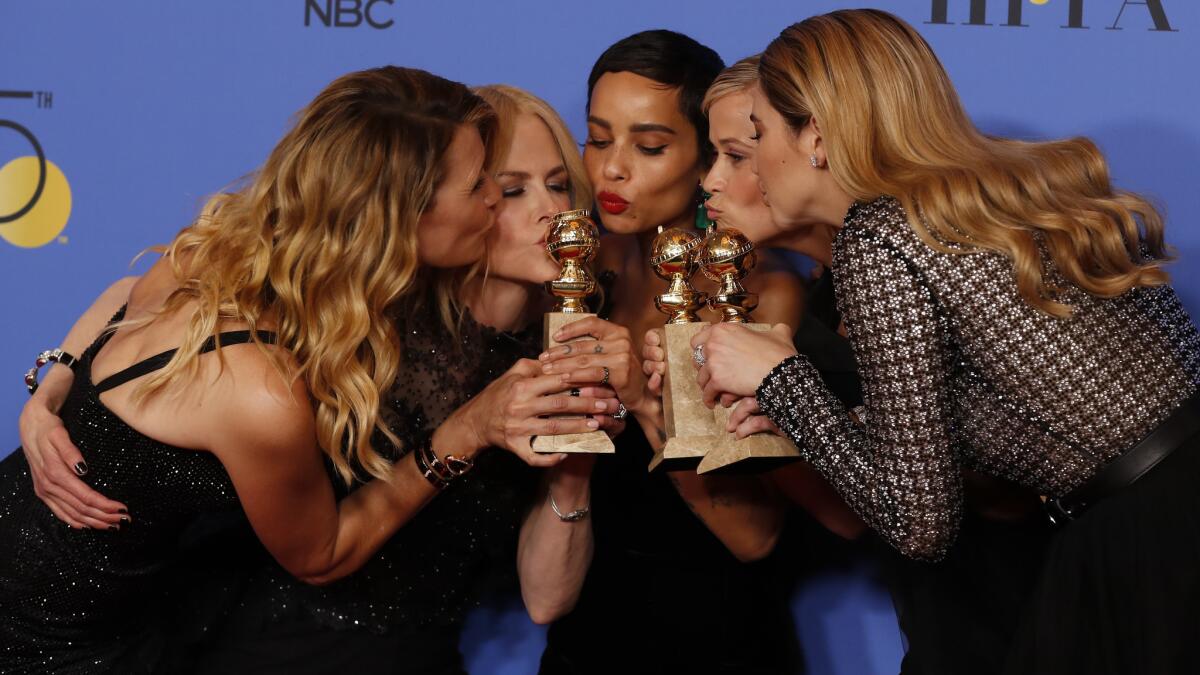
“I think it’s time to address the elephant not in the room … Harvey Weinstein,” Meyers said in his opening monologue. “He’ll be back in 20 years when he becomes the first person booed in memoriam.” The audience wasn’t willing to wait that long; there were already boos all around.
When Nicole Kidman won for her role in “Big Little Lies,” she spoke of the importance of paying heed to the physical abuse of women, portrayed by her character in the HBO series: “Let’s keep the conversation alive,” she said as if she were speaking from the stage at a rally rather than a showbiz celebration.
Elisabeth Moss, winning for “Handmaid’s Tale,” thanked Margaret Atwood and “all of the women who came before you and after you who were brave enough to speak out against intolerance and injustice and to fight for equality and freedom in this world.”
Frances McDormand referred to the moment as a “tectonic shift,” and even Streisand, who experienced the feminist revolution of the 1960s and ’70s, said she was proud to stand in a room with people who, when faced with uncomfortable truths “have vowed to change the way things are.”
But rally cries were not always a comfortable fit for the Golden Globes, also known as Hollywood’s Party of the Year.
The awards show sponsored by Hollywood’s Foreign Press Assn. is more renowned for its relaxed atmosphere and quirky offbeat choices — Guillermo del Toro won best director for his whimsical tale about a woman falling in love with a sea monster, beating Steven Spielberg’s Pentagon Papers drama, “The Post,” which starred Streep and Tom Hanks. The charm of Globes past lay in its refusal to take itself seriously and there are always limitations on what can be expressed in a three-hour-long awards show.
Expectations were high for political fireworks, or at least loaded social commentary, given that Time’s Up had announced ahead of the awards that celebrities would be bringing feminist activists as their guests. Michelle Williams brought the #MeToo hashtag creator, Tarana Burke. Emma Stone brought Billie Jean King, whom she played in the film “Battle of the Sexes.”
Though many award recipients wanted to show solidarity, not all were as comfortable or animated in speaking, and at times the stream of “Up with Women” sentiments were as monochromatic as all those black dresses. Though seemingly well intended, it felt more perfunctory than a sign of some bigger shift.
And then there were the poor, uncomfortable men who didn’t know what to do in this new world of truth-speak. When presenting the director award, Ron Howard laughed nervously as his co-host, Natalie Portman, ad-libbed her part: “And here are the all-male nominees.”
On the red carpet, Ryan Seacrest did his best. There’s been a lot of solidarity here tonight, he said to Sarah Jessica Parker. What’s your reaction? “I know you’ve spoken to a lot of my sisters who have been in the trenches,” she said. “A safe work environment shouldn’t be controversial.”
In between interviews, another E! host shilled the network’s forthcoming new series “Citizen Rose,” starring Rose McGowan. It was poignant given that the actress, activist and victim of sexual misconduct had criticized the Time’s Up movement in the weeks before the awards.
“Your silence is the problem,” she had tweeted. “You’ll accept a fake award breathlessly and affect no real change. I despise your hypocrisy” and the black dresses, she said. Guess that the E! host was wearing?
During the ceremony, Meyers half entertained, half challenged the audience to take a good hard look at their own industry: “ There’s a new era underway, and I can tell because it’s been years since a white man was this nervous in Hollywood.… For the male nominees in the room tonight, this is the first time in three months it won’t be terrifying to hear your name read out loud .”
There was little to no mention of Trump, which was in sharp contrast to the outrage of 2017’s ceremony. But after three months of reckoning , perhaps Hollywood has been forced to accept that when it came to irresponsibly wielding power, it wasn’t so different from Washington after all.
In a rare serious moment, Meyers acknowledged that the people in the room had worked very hard to get here, “but it’s clear now than ever before that the women had to work even harder.”
It was in sharp contrast to last year when the apolitical, happy-go-lucky Jimmy Fallon, who was fortunate enough to host when the previous protest, #Oscarssowhite, seemed to have made some progress.
The concern over diversity was present Sunday night as well, but it was the women who ruled. One cause at a time.
2018 Golden Globes
Twitter: @lorraineali
More to Read
The complete guide to home viewing
Get Screen Gab for everything about the TV shows and streaming movies everyone’s talking about.
You may occasionally receive promotional content from the Los Angeles Times.
